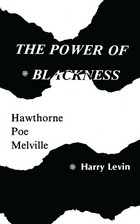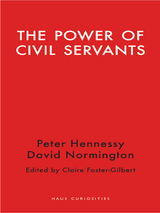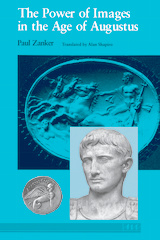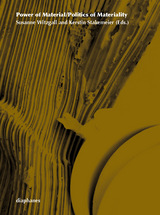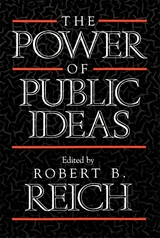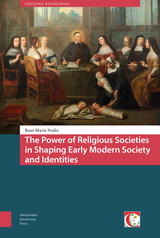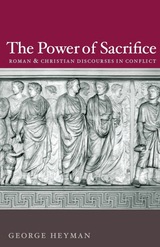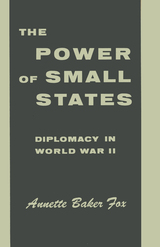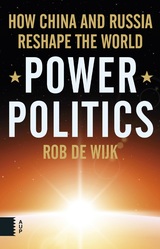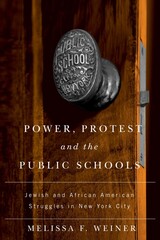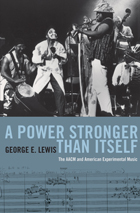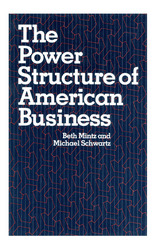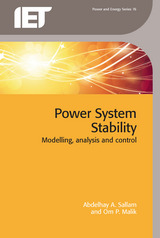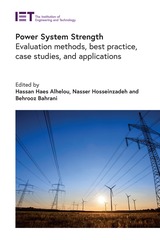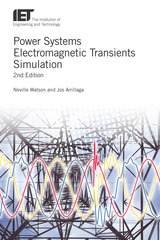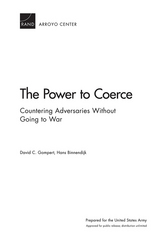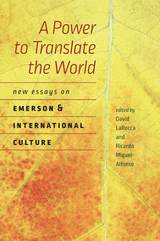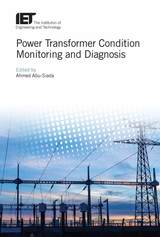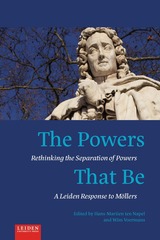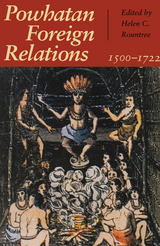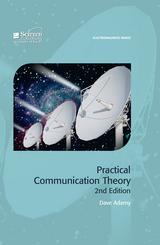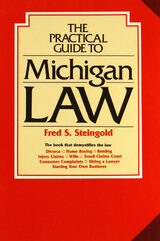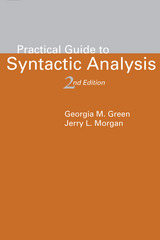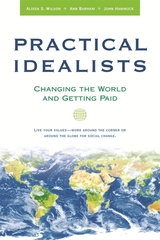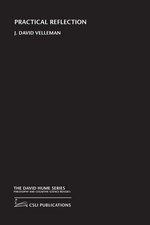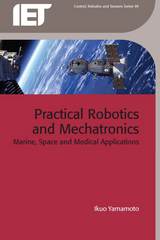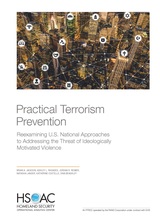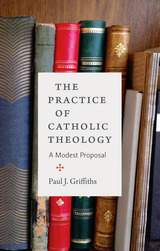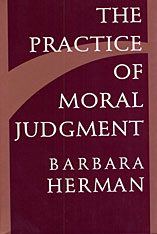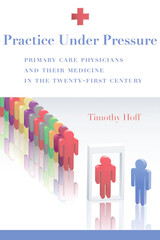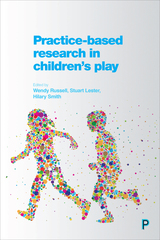Power Of Blackness: Hawthorne, Poe, Melville
Harry Levin
Ohio University Press, 1980 The Power of Blackness is a profound and searching reinterpretation of Hawthorne, Poe and Melville, the three classic American masters of fiction. It is also an experiment in critical method, an exploration of the myth-making process by way of what may come to be known as literary iconology.
The Power of Civil Servants
David Normington and Peter Hennessy
Haus Publishing, 2018
Throughout Britain, Civil Servants are exposed to public scrutiny today in unprecedented ways. What does it mean that the political neutrality of the Civil Service has only been enshrined in law since 2010, nearly 150 years after it was first proposed? Why is it so important for politicians to trust Civil Servants (and what difficulties arise when they do not)?
Coauthored by former First Civil Service Commissioner David Normington and historian Peter Hennessy, The Power of Whitehall provides answers through rich observations about the nature of the British Civil Service, its values and effectiveness, and how it should continue to adapt to a changing world.
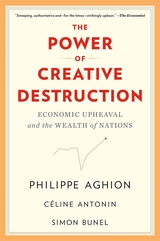 The Power of Creative Destruction: Economic Upheaval and the Wealth of Nations
Philippe Aghion, Céline Antonin, and Simon Bunel
Harvard University Press, 2021 Hayek Book Prize Finalist
An Economist Best Book of the Year
A Foreign Affairs Best Book of the Year
From one of the world’s leading economists and his coauthors, a cutting-edge analysis of what drives economic growth and a blueprint for prosperity under capitalism.
Crisis seems to follow crisis. Inequality is rising, growth is stagnant, the environment is suffering, and the COVID-19 pandemic has exposed every crack in the system. We hear more and more calls for radical change, even the overthrow of capitalism. But the answer to our problems is not revolution. The answer is to create a better capitalism by understanding and harnessing the power of creative destruction—innovation that disrupts, but that over the past two hundred years has also lifted societies to previously unimagined prosperity.
To explain, Philippe Aghion, Céline Antonin, and Simon Bunel draw on cutting-edge theory and evidence to examine today’s most fundamental economic questions, including the roots of growth and inequality, competition and globalization, the determinants of health and happiness, technological revolutions, secular stagnation, middle-income traps, climate change, and how to recover from economic shocks. They show that we owe our modern standard of living to innovations enabled by free-market capitalism. But we also need state intervention with the appropriate checks and balances to simultaneously foster ongoing economic creativity, manage the social disruption that innovation leaves in its wake, and ensure that yesterday’s superstar innovators don’t pull the ladder up after them to thwart tomorrow’s. A powerful and ambitious reappraisal of the foundations of economic success and a blueprint for change, The Power of Creative Destruction shows that a fair and prosperous future is ultimately ours to make.
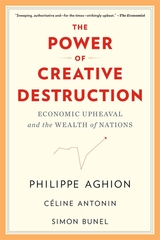 The Power of Creative Destruction: Economic Upheaval and the Wealth of Nations
Philippe Aghion, Céline Antonin, and Simon Bunel
Harvard University Press Hayek Book Prize Finalist
An Economist Best Book of the Year
A Foreign Affairs Best Book of the Year
A Financial Times Summer Reading Favorite
“Sweeping, authoritative and—for the times—strikingly upbeat…The overall argument is compelling and…it carries a trace of Schumpeterian subversion.”
—The Economist
“[An] important book…Lucid, empirically grounded, wide-ranging, and well-argued.”
—Martin Wolf, Financial Times
“Offers…much needed insight into the sources of economic growth and the kinds of policies that will promote it…All in Washington would do well to read this volume carefully.”
—Milton Ezrati, Forbes
Inequality is on the rise, growth stagnant, the environment in crisis. Covid seems to have exposed every crack in the system. We hear calls for radical change, but the answer is not to junk our economic system but to create a better form of capitalism.
An ambitious reappraisal of the foundations of economic success that shows a fair and prosperous future is ours to make, The Power of Creative Destruction draws on cutting-edge theory and hard evidence to examine today’s most fundamental economic questions: what powers growth, competition, globalization, and middle-income traps; the roots of inequality and climate change; the impact of technology; and how to recover from economic shocks. We owe our modern standard of living to innovations enabled by free-market capitalism, it argues, but we also need state intervention—with checks and balances—to foster economic creativity, manage social disruption, and ensure that yesterday’s superstar innovators don’t pull the ladder up after them.
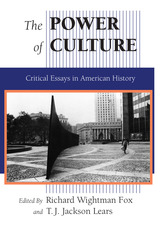 The Power of Culture: Critical Essays in American History
Edited by Richard Wightman Fox and T. J. Jackson Lears
University of Chicago Press, 1993 "We are in the midst of a dramatic shift in sensibility, and 'cultural' history is the rubric under which a massive doubting and refiguring of our most cherished historical assumptions is being conducted. Many historians are coming to suspect that the idea of culture has the power to restore order to the study of the past. Whatever its potency as an organizing theme, there is no doubt about the power of the term 'culture' to evoke and stand for the depth of the re-examination not taking place. At a time of deep intellectual disarray, 'culture' offers a provisional, nominalist version of coherence: whatever the fragmentation of knowledge, however centrifugal the spinning of the scholarly wheel, 'culture'—which (even etymologically) conveys a sense of safe nurture, warm growth, budding or ever-present wholeness—will shelter us. The PC buttons on historians' chests today stand not for 'politically correct' but 'positively cultural.'—from the Introduction
More and more scholars are turning to cultural history in order to make sense of the American past. This volume brings together nine original essays by some leading practitioners in the field. The essays aim to exhibit the promise of a cultural approach to understanding the range of American experiences from the seventeenth century to the present.
Expanding on the editors' pathbreaking The Culture of Consumption, the contributors to this volume argue for a cultural history that attends closely to language and textuality without losing sight of broad configurations of power that social and political history at its best has always stressed. The authors here freshly examine crucial topics in both private and public life. Taken together, the essays shed new light on the power of culture in the lives of Americans past and present.
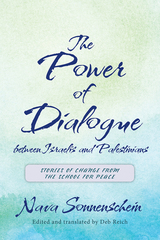 The Power of Dialogue between Israelis and Palestinians: Stories of Change from the School for Peace
Sonnenschein, Nava
Rutgers University Press, 2019 In The Power of Dialogue between Israelis and Palestinians, scholar and activist Nava Sonnenschein shares a collection of twenty-five powerful interviews she conducted with Palestinian and Jewish Israeli alumni of peacebuilding courses, a decade after their graduation. Participants with diverse personal and professional backgrounds completed a series of conflict transformation workshops using the model developed by the School for Peace at the world’s only intentional Jewish-Palestinian community, Neve Shalom-Wahat al-Salam (“Oasis of Peace” in Hebrew and Arabic). Critically, the interviews vividly demonstrate that peacebuilding does not end with the courses. Most of the graduates choose to work professionally in roles that contribute to peace-building. Sonnenschein shows the transformational potential of encounter between members of groups in conflict, sharing how ordinary Israelis and Palestinians coming together in an open and honest environment undergo life-changing experiences that provide concrete hope for a sustainable path to a peaceful shared existence as equals in Israel and Palestine.
 The Power of Existing Buildings: Save Money, Improve Health, and Reduce Environmental Impacts
Robert Sroufe, Craig Stevenson, and Beth Eckenrode
Island Press, 2019 Your building has the potential to change the world. Existing buildings consume approximately 40 percent of the energy and emit nearly half of the carbon dioxide in the US each year. In recognition of the significant contribution of buildings to climate change, the idea of building green has become increasingly popular. But is it enough? If an energy-efficient building is new construction, it may take 10 to 80 years to overcome the climate change impacts of the building process. New buildings are sexy, but few realize the value in existing buildings and how easy it is to get to “zero energy” or low-energy consumption through deep energy retrofits. Existing buildings can and should be retrofit to reduce environmental impacts that contribute to climate change, while improving human health and productivity for building occupants.
In The Power of Existing Buildings, academic sustainability expert Robert Sroufe, and construction and building experts Craig Stevenson and Beth Eckenrode, explain how to realize the potential of existing buildings and make them perform like new. This step-by-step guide will help readers to: understand where to start a project; develop financial models and realize costs savings; assemble an expert team; and align goals with numerous sustainability programs. The Power of Existing Buildings will challenge you to rethink spaces where people work and play, while determining how existing buildings can save the world.
The insights and practical experience of Sroufe, Stevenson, and Eckenrode, along with the project case study examples, provide new insights on investing in existing buildings for building owners, engineers, occupants, architects, and real estate and construction professionals. The Power of Existing Buildings helps decision-makers move beyond incremental changes to holistic, results-oriented solutions.
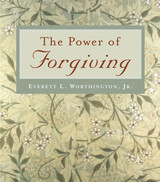 The Power of Forgiving
Everett L. Worthington Jr.
Templeton Press, 2005 Forgiveness is a virtue that author Everett L.Worthington Jr. has advocated throughout his career as a counselor and psychologist. In this book, he explains the paradoxical power of forgiveness through his personal and professional experiences andthrough the wisdom of others. The paradox is that in forgiving for the well-being of others, we actually receive tremendous benefits for ourselves in terms of physical and mental health. This book treats forgiveness as a quest to find the treasure of restored relationships, personal peace, and even health, which has often become buried in relational harms, betrayals, and injustices. Worthington shows how one begins the quest, prepares the self for the rigors of the search, and makes the journey. In the process, he describes the resources and supports needed. He also discusses how enemies can continue to betray and how unruly angry emotions can arise but can be tamed by forgiving. Worthington shows readers the map to forgiveness using methods such as his time-tested and research-supported method of REACH, a five-step process of forgiving. The Power of Forgiving will inspire people to use forgiveness. It will show how forgiving is a transforming process that will enrich relationships and empower people to improve their own lives.
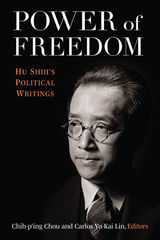 Power of Freedom: Hu Shih's Political Writings
Chih-p'ing Chou and Carlos Yu-Kai Lin, Editors
University of Michigan Press, 2022 Dr. Hu Shih (1891–1962) was one of China’s top scholars and diplomats and served as the Republic of China’s ambassador to the United States during World War II. As early as 1941, Hu Shih warned of the fundamental ideological conflict between dictatorial totalitarianism and democratic systems, a view that later became the foundation of the Cold War narrative. In the 1950s, after Mao’s authoritarian regime was established, Hu Shih started to analyze the development and nature of Communism, delivering a series of lectures and addresses to reveal what he called Stalin’s “grand strategy” for facilitating the International Communist Movement.
For decades—and today to a certain extent—Hu Shih’s political writings were considered sensitive and even dangerous. As a strident critic of the Chinese Communist Party’s oligarchical practices, he was targeted by the CCP in a concerted national campaign to smear his reputation, cast aspersions on his writings, and generally destroy any possible influence he might have in China. This volume brings together a collection of Hu Shih’s most important, mostly unpublished, English-language speeches, interviews, and commentaries on international politics, China-U.S. relations, and the International Communist Movement. Taken together, these works provide an insider’s perspective on Sino-American relations and the development of the International Communist Movement over the course of the 20th century.
 The Power of Genre
Adena Rosmarin
University of Minnesota Press, 1986
The Power of Genre was first published in 1986. Minnesota Archive Editions uses digital technology to make long-unavailable books once again accessible, and are published unaltered from the original University of Minnesota Press editions.
The Power of Genre is a radical and systematic rethinking of the relationship between literary genre and critical explanation. Adene Rosmarin shows how traditional theories of genre—whether called "historical," "intrinsic," or "theoretical"—are necessarily undone by their attempts to define genre representationally. Rather, Rosmarin argues, the opening premise of critical argument is always critical purpose or, as E. H. Gombrich has said, function, and the genre or "form" follows the reform. The goal is a relational model that works.
Rosemarin analyzes existing theories of genre — those of Hirsch, Crane, Frye, Todorov, Jauss, and Rader are given particular attention—before proposing her own. These analyses uncover the illogic that plagues even sophisticated attempts to treat genre as a preexistent entity. Rosmarin shows how defining genre pragmatically – as explicitly chosen or devised to serve explicitly critical purposes – solves this problem: a pragmatic theory of genre builds analysis of its metaphors and motives into its program, thereby eliminating theory's traditional need to deny the invented and rhetorical nature of its schemes. A pragmatic theory, however, must be tested not only by its internal cohesion but also by its power to enable practice, and Rosmarin chooses the dramatic monologue, an infamously problematic genre, and its recent relative, the mask lyric, as testing grounds. Both genres—variously exemplified by poems of Browning, Thennyson, Eliot, and Pound—are ex post facto critical constructs that, when defined as such, make closely reasoned sense not only of particular poems but also of their perplexed interpretive histories. Moreover, both genres dwell on the historicity, textuality, and redemptive imperfection of the speaking self. This generic obsession ties the poems to their reception and, finally, to the openended, processes of hermeneutic question-and-answer stressed in Rosmarin's framing theory.
The Power of God: Dynamis in Gregory of Nyssa's Trinitarian Theology
Michel René Barnes
Catholic University of America Press, 2001 This study will be useful for those who study the development of the doctrine of the Trinity, as well as those who are interested in the role of scriptural and philosophical resources in Christian theology. Fi
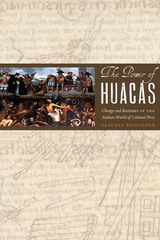 The Power of Huacas: Change and Resistance in the Andean World of Colonial Peru
By Claudia Brosseder
University of Texas Press, 2014 Based on extensive archival research, The Power of Huacas is the first book to take account of the reciprocal effects of religious colonization as they impacted Andean populations and, simultaneously, dramatically changed the culture and beliefs of Spanish Christians.
Winner, Award for Excellence in the Study of Religion in the category of Historical Studies, American Academy of Religion, 2015 The role of the religious specialist in Andean cultures of the sixteenth, seventeenth, and eighteenth centuries was a complicated one, balanced between local traditions and the culture of the Spanish. In The Power of Huacas, Claudia Brosseder reconstructs the dynamic interaction between religious specialists and the colonial world that unfolded around them, considering how the discourse about religion shifted on both sides of the Spanish and Andean relationship in complex and unexpected ways. In The Power of Huacas, Brosseder examines evidence of transcultural exchange through religious history, anthropology, and cultural studies. Taking Andean religious specialists—or hechizeros (sorcerers) in colonial Spanish terminology—as a starting point, she considers the different ways in which Andeans and Spaniards thought about key cultural and religious concepts. Unlike previous studies, this important book fully outlines both sides of the colonial relationship; Brosseder uses extensive archival research in Bolivia, Chile, Ecuador, Peru, Spain, Italy, and the United States, as well as careful analysis of archaeological and art historical objects, to present the Andean religious worldview of the period on equal footing with that of the Spanish. Throughout the colonial period, she argues, Andean religious specialists retained their own unique logic, which encompassed specific ideas about holiness, nature, sickness, and social harmony. The Power of Huacas deepens our understanding of the complexities of assimilation, showing that, within the maelstrom of transcultural exchange in the Spanish Americas, European paradigms ultimately changed more than Andean ones.
The Power of Images in the Age of Augustus
Paul Zanker; translated by Alan Shapiro
University of Michigan Press, 1990 "Art and architecture are mirrors of a society. They reflect the state of its values, especially in times of crisis or transition." Upon this premise Paul Zanker builds an interpretation of Augustan art as a visual language that both expressed and furthered the transformation of Roman society during the rule of Augustus Caesar. The Power of Images in the Age of Augustus illustrates how the establishment of monarchy under Augustus Caesar led to the creation of a new system of visual imagery that reflects the consciousness of this transitional age.
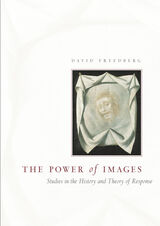 The Power of Images: Studies in the History and Theory of Response
David Freedberg
University of Chicago Press, 1989 "This learned and heavy volume should be placed on the shelves of every art historical library."—E. H. Gombrich, New York Review of Books
"This is an engaged and passionate work by a writer with powerful convictions about art, images, aesthetics, the art establishment, and especially the discipline of art history. It is animated by an extraordinary erudition."—Arthur C. Danto, The Art Bulletin
"Freedberg's ethnographic and historical range is simply stunning. . . . The Power of Images is an extraordinary critical achievement, exhilarating in its polemic against aesthetic orthodoxy, endlessly fascinating in its details. . . . This is a powerful, disturbing book."—T. J. Jackson Lears, Wilson Quarterly
"Freedberg helps us to see that one cannot do justice to the images of art unless one recognizes in them the entire range of human responses, from the lowly impulses prevailing in popular imagery to their refinement in the great visions of the ages."—Rudolf Arnheim, Times Literary Supplement
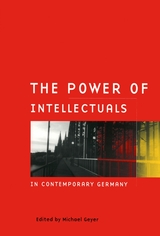 The Power of Intellectuals in Contemporary Germany
Edited by Michael Geyer
University of Chicago Press, 2001 A decade after reunification, with Germany laboring to define a new national identity, the defunct German Democratic Republic has gained a second life in the pages of history. The former GDR, and particularly the fate of its intellectuals, has become the subject of novels, memoirs, and films, and it has also become the backdrop for general debates over the power of intellectuals in contemporary media and society.
This new collection of essays considers the demise of the GDR and its impact on the place of intellectuals in Germany today. Distinguished contributors from Germany, Austria, and the United States survey aspects of high and low culture, including the current nostalgia for East German film, the demise of the GDR rock scene, the pivotal role of East German poets, the consolidation and privatization of German media, and the frightening new resurgence of right-wing violence. The result is a timely volume that charts Germany's rocky transition from one world to another.
Contributors:
Mitchell G. Ash
Simone Barck
David Bathrick
John Borneman
Dorothea Dornhof
Michael Geyer
Andreas Graf
Dietrich Hohmann
Andreas Huyssen
Konrad Jarausch
Alexander Kluge
Loren Kruger
Martina Langermann
Siegfried Lokatis
Patricia Anne Simpson
Frank Trommler
Katie Trumpener
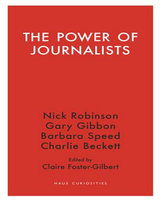 The Power of Journalists
Nick Robinson, Gary Gibbon, Barbara Speed, and Charlie Beckett
Haus Publishing, 2018 We live in a profoundly challenging era for journalists. While the profession has historically taken on the mantle of providing clear, sound information to the public, journalists now face competition from dubious sources online and smear campaigns launched by public figures. In The Power of Journalists, four of the United Kingdom’s foremost journalists—Nick Robinson, Barbara Speed, Charlie Beckett, and Gary Gibbon—give on-the-ground accounts of how they’ve weathered some of the most significant political events of the past five years, including the referendum on Scottish independence and Brexit. These monumental political decisions exposed each journalist to the dangerous vicissitudes of public opinion, and made them all the more certain of their mission. In describing the role of the journalist as truth-teller and protector of impartiality as well as interpreter of controversial facts and trusted source of public opinion, they issue a clarion call for good journalism.
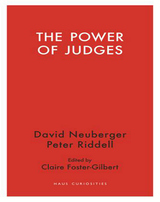 The Power of Judges
David Neuberger and Peter Riddell
Haus Publishing, 2018 To the vast majority of the English public, the role of the United Kingdom’s Supreme Court has often been distant and incomprehensible, its judges a caste apart from society. The Power of Judges ends this mystery, exploring the fundamental concept of justice and explaining the main functions of the courts, the challenges they face, and the complexity of the judicial system.
In this lucid account of the judiciary, David Neuberger and Peter Riddell lead us through an array of topics both philosophical and logistical, including the relationships between morality and law and between Parliament and the judiciary. They explain the effects of cuts in legal aid and shed light on complex and controversial subjects like assisted dying and the complexities of combating mass terrorism while protecting personal liberty. Given that many of these issues span national borders, the book also compares the United Kingdom’s legal system with its counterparts in the United States and Germany.
Full of insights, The Power of Judges is an informative and accessible account of the United Kingdom’s judicial system, its contribution to running the country, and the challenges it faces—including the many threats to its effectiveness.
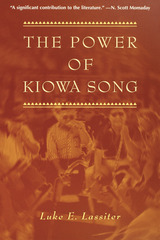 The Power of Kiowa Song: A Collaborative Ethnography
Luke E. Lassiter
University of Arizona Press, 1998 Many Kiowas believe that song is a gift from God. Its power, argues Luke E. Lassiter, rests in the many ways that community members hear, understand, and feel it: "Song has power. As I begin to understand what this means for my mentors, I am just beginning to understand what this means in my life. They are not just singers. They are vehicles for something greater than all of us. Indeed, I now understand that I am not just a singer. But . . . I will sing until I die." As a boy, Lassiter had an early fascination with pow wows. This interest eventually went from a hobby to a passion. As Lassiter made Kiowa friends who taught him to sing and traveled the pow wow circuit, serving many times as a head singer, he began to investigate and write about the pow wow as an experiential encounter with song. The Power of Kiowa Song shows how song is interpreted, created, and used by individuals, how it is negotiated through the context of an event, and how it emerges as a powerfully unique and specific public expression. The Power of Kiowa Song presents a collaborative, community-wide dialogue about the experience of song. Using conversations with Kiowa friends as a frame, Lassiter seeks to describe the entire experience of song rather than to analyze it solely from a distance. Lassiter's Kiowa consultants were extremely active in the writing of the book, re-explaining concepts that seemed difficult to grasp and discussing the organization and content of the work. In a text that is engaging and easily read, Lassiter has combined experiential narrative with ethnological theory to create a new form of collaborative ethnography that makes anthropology accessible to everyone. This book is designed for anyone interested in Native American studies or anthropology, and it also serves as a resource written by and for the Kiowa themselves. Hear the Power of Kiowa Song
The Power of Large Language Models and AI in the Digital Age: Technologies, applications, security and ethics
Neha Sharma
The Institution of Engineering and Technology, 2025 Large language models (LLMs) represent a profound breakthrough in artificial intelligence. More than just statistical tools, these vast neural networks undergo an intensive training process that unlocks unexpected, emergent abilities. Models like ChatGPT are now demonstrating a surprising grasp of reasoning, semantics, and real-world concepts, leading many researchers to ask: are we witnessing the first sparks of Artificial General Intelligence (AGI)?
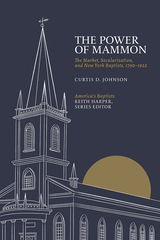 The Power of Mammon: The Market, Secularization, and New York Baptists, 1790–1922
Curtis D. Johnson
University of Tennessee Press, 2021 In The Power of Mammon, Curtis D. Johnson describes how the market economy and market-related forces, such as the media, politics, individualism, and consumerism, radically changed the nature of Baptist congregational life in New York State during three centuries. Collectively, these forces emphasized the importance of material wealth over everything else, and these values penetrated the thinking of Baptist ministers and laypeople alike. Beginning in the 1820s, the pastorate turned into a profession, the laity’s influence diminished, closeknit religious fellowships evolved into voluntary associations, and evangelism became far less effective. Men, being the most engaged in the market, secularized the more quickly and became less involved in church affairs. By the 1870s, male disengagement opened the door to increased female participation in church governance. While scientific advances and religious pluralism also played a role, the market and its related distractions were the primary forces behind the secularization of Baptist life.
The Power of Mammon is history from the ground up. Unlike many denominational histories, this book emphasizes congregational life and the importance of the laity. This focus allows the reader to hear the voices of ordinary Baptists who argued over a host of issues. Johnson deftly connects large social trends with exhaustive attention to archival material, including numerous well-chosen records preserved by forty-two New York churches. These records include details related to membership, discipline, finance, and institutional history. Utilizing statistical analysis to achieve even greater clarity, Johnson effectively bridges the gap between the particularity of church records and the broader history of New York’s Baptist churches.
Johnson’s narrative of Baptist history in New York will serve as a model for other regional studies and adds to our understanding of secularization and its impact on American religion.
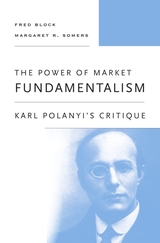 The Power of Market Fundamentalism: Karl Polanyi’s Critique
Fred Block and Margaret R. Somers
Harvard University Press, 2014 What is it about free-market ideas that give them tenacious staying power in the face of such manifest failures as persistent unemployment, widening inequality, and the severe financial crises that have stressed Western economies over the past forty years? Fred Block and Margaret Somers extend the work of the great political economist Karl Polanyi to explain why these ideas have revived from disrepute in the wake of the Great Depression and World War II, to become the dominant economic ideology of our time.
Polanyi contends that the free market championed by market liberals never actually existed. While markets are essential to enable individual choice, they cannot be self-regulating because they require ongoing state action. Furthermore, they cannot by themselves provide such necessities of social existence as education, health care, social and personal security, and the right to earn a livelihood. When these public goods are subjected to market principles, social life is threatened and major crises ensue.
Despite these theoretical flaws, market principles are powerfully seductive because they promise to diminish the role of politics in civic and social life. Because politics entails coercion and unsatisfying compromises among groups with deep conflicts, the wish to narrow its scope is understandable. But like Marx's theory that communism will lead to a "withering away of the State," the ideology that free markets can replace government is just as utopian and dangerous.
Power of Material - Politics of Materiality
Edited by Susanne Witzgall and Kerstin Stakemeier
Diaphanes, 2014 In the last years a new focus on material phenomena has become increasingly oberservable in the arts and sciences. Most diverse disciplines are stressing the momentum and the agency of matter, material and things and underline their status as agents within the web of relationships of culture and nature. The book "Power of Material / Politics of Materiality“ deepens this current discourse and for the time brings materialist tendencies within the arts, design and architecture into a direct dialogue with a range of scientific approaches from a "New Materialism“ within the humanities and social sciences. This publication is the result of the first year of program at the newly established cx centre for interdisciplinary studies at the Academy of Fine Arts Munich.
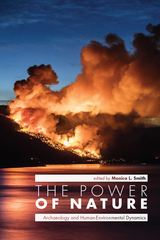 The Power of Nature: Archaeology and Human-Environmental Dynamics
edited by Monica L. Smith
University Press of Colorado, 2022 In The Power of Nature archaeologists address the force and impact of nature relative to human knowledge, action, and volition. Case studies from around the world focusing on different levels of sociopolitical complexity—ranging from early agricultural societies to states and empires—address the ways in which nature retains the upper hand in human agentive environmental discourse, providing an opportunity for an insightful perspective on the current anthropological emphasis on how humans affect the environment.
Climatic events, pathogens, and animals as nonhuman agents, ranging in size from viruses to mega-storms, have presented our species with dynamic conditions that overwhelm human capacities. In some cases, people have modified architecture to deal with a constant onslaught of storms, as in Japan or the Caribbean; in other cases, they have welcomed the occasional natural disaster as a chance to start fresh or to put into place new ideas and practices, as in the case of ancient Roman cities. Using the concept of “agency” as one in which multiple sentient and nonhuman actors interact in a landscape, and exploring locations such as the Caribbean, the Pacific, South Asia, the Andes, the Mediterranean, Mesoamerica, North America, and the Arctic, the authors provide compelling explanations of the effect of an entire realm of natural powers that beset human societies past and present—from storms, earthquakes, and fires to vegetation, domestic animals, and wild birds. Throughout, the emphasis is on the philosophical and engineering adjustments that people make to stay resilient when facing the perpetual changes of the natural world.
Using an archaeological perspective, The Power of Nature illustrates and analyzes the many
ways that people do not control their environments. It will be of interest to archaeologists, as well as scholars in science, biology, botany, forestry, urban studies, and disaster management.
Contributors: Steven Ammeran, Traci Ardren, Katelyn J. Bishop, Karen Mohr Chávez, Sergio Chávez, Stanislava Chávez, Emelie Cobb, Jago Cooper, Harper Dine, Chelsea Fisher, Jennifer Huebert, Dale L. Hutchinson, Sara L. Juengst, Kanika Kalra, François Oliva, Matthew C. Peros, Jordan Pickett, Seth Quintus, John Robb, Monica L. Smith, Jillian A. Swift, Silvia Tomášková, Kyungsoo Yoo
 The Power of News
Michael Schudson
Harvard University Press, 1995 Some say it's simply information, mirroring the world. Others believe it's propaganda, promoting a partisan view. But news, Michael Schudson tells us, is really both and neither; it is a form of culture, complete with its own literary and social conventions and powerful in ways far more subtle and complex than its many critics might suspect. A penetrating look into this culture, The Power of News offers a compelling view of the news media's emergence as a central institution of modern society, a key repository of common knowledge and cultural authority.
One of our foremost writers on journalism and mass communication, Schudson shows us the news evolving in concert with American democracy and industry, subject to the social forces that shape the culture at large. He excavates the origins of contemporary journalistic practices, including the interview, the summary lead, the preoccupation with the presidency, and the ironic and detached stance of the reporter toward the political world. His book explodes certain myths perpetuated by both journalists and critics. The press, for instance, did not bring about the Spanish-American War or bring down Richard Nixon; TV did not decide the Kennedy-Nixon debates or turn the public against the Vietnam War.
Then what does the news do? True to their calling, the media mediate, as Schudson demonstrates. He analyzes how the news, by making knowledge public, actually changes the character of knowledge and allows people to act on that knowledge in new and significant ways. He brings to bear a wealth of historical scholarship and a keen sense for the apt questions about the production, meaning, and reception of news today.
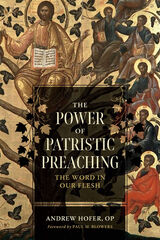 The Power of Patristic Preaching: The Word in Our Flesh
Andrew Hofer, OP
Catholic University of America Press, 2023 The Word made flesh is manifested in the lives of those dedicated to his proclamation. The Power of Patristic Preaching: The Word in Our Flesh presents seven early preachers who show, by life and speech, the divine Word’s power at work in weak human life.
The book is inspired by this question preached by Origen, “For what does it profit if I should say that Jesus has come in that flesh alone which he received from Mary and I should not show also that he has come in this flesh of mine?” In seven chapters, The Power of Patristic Preaching studies the exemplars of Origen for holiness, Ephrem for the humility of repentance, Gregory of Nazianzus for purification and faith, John Chrysostom for the hope of salvation, Augustine for love, Leo the Great for love of the poor and the weak, and Gregory the Great for accepting our own weakness.
With an emphasis on the incarnation, deification through the virtues, and proclamation, The Power of Patristic Preaching serves as a resource for those dedicated to the ministry of the Word (clerical, religious, and lay), and as a text for students of early Christian theology and practices. A Catholic work for a broad ecumenical audience, the book gives a cry from the heart in a suffering Church traveling through a world that is passing away.
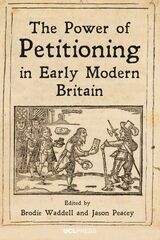 Power of Petitioning in Early Modern Britain
Edited by Brodie Waddell and Jason Peacey
University College London, 2024 Brings together historians of popular politics, the civil wars, state welfare, and criminal justice to unveil the widespread influence of petitions in shaping politics and social dynamics in Early Modern Britain.
The humble petition was ubiquitous in early modern society and featured prominently in crucial moments such as the outbreak of civil wars and in everyday local negotiations about taxation, welfare, and litigation. People at all levels of society, from noblemen to paupers, used petitions to make their voices heard, and these are valuable sources for mapping the structures of authority and agency that framed early modern society.
The Power of Petitioning in Early Modern Britain offers a holistic study of this crucial topic in early modern British history. The contributors to this volume survey a vast range of sources, showing the myriad ways people petitioned the authorities from the sixteenth to the eighteenth centuries. They cross the jurisdictional, sub-disciplinary, and chronological boundaries that have otherwise constrained the current scholarly literature on petitioning and popular political engagement. Teasing out broad conclusions from innumerable smaller interventions in public life, they not only address the aims, attitudes, and strategies of those involved but also assess the significance of the processes they used. This volume makes it possible to rethink the power of petitioning and to re-evaluate broad trends regarding political culture, institutional change, and state formation.
 Power of Place: The Religious Landscape of the Southern Sacred Peak (Nanyue 南嶽) in Medieval China
James Robson
Harvard University Press, 2009 Throughout Chinese history mountains have been integral components of the religious landscape. They have been considered divine or numinous sites, the abodes of deities, the preferred locations for temples and monasteries, and destinations for pilgrims. Early in Chinese history a set of five mountains were co-opted into the imperial cult and declared sacred peaks, yue, demarcating and protecting the boundaries of the Chinese imperium.
The Southern Sacred Peak, or Nanyue, is of interest to scholars not the least because the title has been awarded to several different mountains over the years. The dynamic nature of Nanyue raises a significant theoretical issue of the mobility of sacred space and the nature of the struggles involved in such moves. Another facet of Nanyue is the multiple meanings assigned to this place: political, religious, and cultural. Of particular interest is the negotiation of this space by Daoists and Buddhists. The history of their interaction leads to questions about the nature of the divisions between these two religious traditions. James Robson’s analysis of these topics demonstrates the value of local studies and the emerging field of Buddho–Daoist studies in research on Chinese religion.
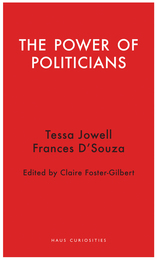 The Power of Politicians
Tessa Jowell and Frances D’Souza
Haus Publishing, 2018 The Power of Politicians takes readers inside the workings of Parliament via an autobiographical account of Tessa Jowell’s own experience of entering politics as an MP. Jowell offers fascinating insights into the workings of Parliament and sheds light on the successful pathways for developing policy into final legislation. The details of the inner workings of politics are interwoven with a powerful personal narrative, as Jowell offers a firsthand account of the role of women in contemporary political life.
With former Lord Speaker Frances D’Souza serving as Jowell’s interlocutor, this book provides a passionate and inspiring interpretation on moral duty. Ultimately, The Power of Politicians offers not just a case study of the life and everyday work of a politician, but also attends to deeper questions about what is demanded from the political class. The overall result is a nothing less than a master class in how to be a good politician.
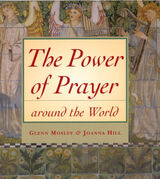 Power Of Prayer Around The World
Glenn Mosley
Templeton Press, 2005 Universally, the power of prayer has been recognized by many cultures for immeasurable time. Whether it be a part of a formal service recited with a congregation of worshipers or an individual, quiet moment, prayer is part of the lives of people from a variety of religions. There seems to be an innate urge among humanity to connect with a higher source of energy and love when we need guidance or direction, and this is called prayer. By reading the prayers from religions such as Buddhism, Hinduism, Christianity, and Islam, from cultures in Africa, India, Egypt, and China, we begin to share the sense of a common experience. The deepest inner feelings and longings are similar—concern for family, assistance in healing, a longing for peace, or a wish for greater wisdom. For some people, prayer can be thought of as a way to ask for specific goals or special favors. This type of prayer may or may not be effective. Another type of prayer exists when all selfish desire is put aside and we feel ourselves in communion with God. At this point, our greatest wish is that God's will be done. There may be pressing concerns that make us turn our sights upward, but we learn to let go of the end result. At this point, prayer becomes a way of opening up to the universal, loving, creative energy that exists and is far greater than any person could imagine. This is the source of miracles, of faith and unconditional love. Prayer then becomes more than a means to an end; it becomes a state of humility and of awe. It can exist whether we are washing the floor or composing a symphony. Prayer is communion with the Divine, a universal loving creative force that exists in a variety of ways for people around the world. This book brings together an inspirational collection of prayer suitable for all ages and traditions. In addition, it offers insight and guidance about the nature of prayer that will be useful for the serious seeker.
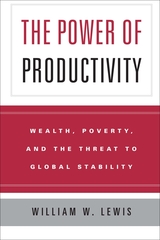 The Power of Productivity: Wealth, Poverty, and the Threat to Global Stability
William W. Lewis
University of Chicago Press, 2004 The disparity between rich and poor countries is the most serious, intractable problem facing the world today. The chronic poverty of many nations affects more than the citizens and economies of those nations; it threatens global stability as the pressures of immigration become unsustainable and rogue nations seek power and influence through extreme political and terrorist acts. To address this tenacious poverty, a vast array of international institutions has pumped billions of dollars into these nations in recent decades, yet despite this infusion of capital and attention, roughly five billion of the world's six billion people continue to live in poor countries. What isn't working? And how can we fix it?
The Power of Productivity provides powerful and controversial answers to these questions. William W. Lewis, the director emeritus of the McKinsey Global Institute, here draws on extensive microeconomic studies of thirteen nations over twelve years—conducted by the Institute itself—to counter virtually all prevailing wisdom about how best to ameliorate economic disparity. Lewis's research, which included studying everything from state-of-the-art auto makers to black-market street vendors and mom-and-pop stores, conclusively demonstrates that, contrary to popular belief, providing more capital to poor nations is not the best way to help them. Nor is improving levels of education, exchange-rate flexibility, or government solvency enough. Rather, the key to improving economic conditions in poor countries, argues Lewis, is increasing productivity through intense, fair competition and protecting consumer rights.
As The Power of Productivity explains, this sweeping solution affects the economies of poor nations at all levels—from the viability of major industries to how the average consumer thinks about his or her purchases. Policies must be enacted in developing nations that reflect a consumer rather than a producer mindset and an attendant sense of consumer rights. Only one force, Lewis claims, can stand up to producer special privileges—consumer interests.
The Institute's unprecedented research method and Lewis's years of experience with economic policy combine to make The Power of Productivity the most authoritative and compelling view of the global economy today, one that will inform political and economic debate throughout the world for years to come.
The Power of Public Ideas
Robert B. Reich
Harvard University Press, 1988 Edited and contributed to by one of America’s most respected political and economic thinkers, and containing essays by an impressive roster of experts, The Power of Public Ideas offers a controversial, timely, and incisive analysis of the impact of the public interest on governmental policy making.
The Power of Religious Societies in Shaping Early Modern Society and Identities
Rose-Marie Peake
Amsterdam University Press, 2020 The Power of Religious Societies in Shaping Early Modern Society and Identities studies the value system of the French Catholic community the Filles de la Charité, or the Daughters of Charity, in the first half of the seventeenth century. An analysis of the activities aimed at edifying morality in the different strata of society revealed a Christian anthropology with strong links to medieval traditions. The book argues that this was an important survival strategy for the Company with a disconcerting religious identity: the non-cloistered lifestyle of its members engaged in charity work had been made unlawful in the Council of Trent. Moreover, the directors Louise de Marillac and Vincent de Paul also had to find ways to curtail internal resistance as the sisters rebelled in quest of a more contemplative and enclosed vocation.
The Power of Sacrifice: Roman and Christian Discourses in Conflict
George Heyman
Catholic University of America Press, 2007 In this work, George Heyman offers a fresh perspective on the similarities between pagan Roman and Christian thinking about the public role of sacrifice in the first two and a half centuries of the Christian era.
The Power of Small States: Diplomacy in World War II
Annette Baker Fox
University of Chicago Press, 1959 An explosive study into World War II diplomacy and how smaller nations resisted the pressure of Axis and Allied Powers.
As World War II ravaged Europe and Asia, smaller nations such as Turkey, Spain, Finland, and Portugal emerged virtually unscathed. How did these smaller powers, which most wrongly viewed as mere political pawns, survive one of the bloodiest conflicts of the 20th century?
From the World War II diplomatic history of Turkey, Finland, Norway, Sweden, and Spain, Annette Baker Fox walks us through backrooms and intense negotiations to illustrate how smaller nations balanced an ever-shifting political landscape to maintain their neutrality. Heavily researched and well-wrought, this book draws upon primary material and interviews with public figures and scholars to give a new historical dimension into lesser-known nations during a time of great political upheaval.
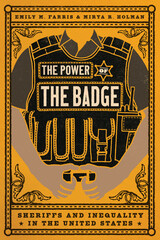 The Power of the Badge: Sheriffs and Inequality in the United States
Emily M. Farris and Mirya R. Holman
University of Chicago Press, 2024 A sobering exploration of the near unchecked power of sheriffs in the United States. Across the United States, more than 3,000 sheriffs occupy a unique position in the US political and legal systems. Elected by voters—usually in low-visibility, noncompetitive elections—sheriffs oversee more than a third of law enforcement employees and control almost all local jails. They have the power to both set and administer policies, and they can imprison, harm, and even kill members of their communities. Yet, they enjoy a degree of autonomy not seen by other political officeholders. The Power of the Badge offers an unprecedented, data-rich look into the politics of the office and its effects on local communities. Emily M. Farris and Mirya R. Holman draw on two surveys of sheriffs taken nearly a decade apart, as well as election data, case studies, and administrative data to show how a volatile combination of authority and autonomy has created an environment where sheriffs rarely change; elections seldom create meaningful accountability; employees, budgets, and jails can be used for political gains; marginalized populations can be punished; and reforms fail. Farris and Holman also track the increasingly close linkages between sheriffs and right-wing radical groups in an era of high partisanship and intra-federal conflict.
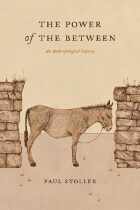 The Power of the Between: An Anthropological Odyssey
Paul Stoller
University of Chicago Press, 2008 It is the anthropologist’s fate to always be between things: countries, languages, cultures, even realities. But rather than lament this, anthropologist Paul Stoller here celebrates the creative power of the between, showing how it can transform us, changing our conceptions of who we are, what we know, and how we live in the world.
Beginning with his early days with the Peace Corps in Africa and culminating with a recent bout with cancer, The Power of the Between is an evocative account of the circuitous path Stoller’s life has taken, offering a fascinating depiction of how a career is shaped over decades of reading and research. Stoller imparts his accumulated wisdom not through grandiose pronouncements but by drawing on his gift for storytelling. Tales of his apprenticeship to a sorcerer in Niger, his studies with Claude Lévi-Strauss in Paris, and his friendships with West African street vendors in New York City accompany philosophical reflections on love, memory, power, courage, health, and illness.
Graced with Stoller’s trademark humor and narrative elegance, The Power of the Between is both the story of a distinguished career and a profound meditation on coming to terms with the impermanence of all things.
 The Power of the Buddhas: The Politics of Buddhism during the Koryo Dynasty (918 - 1392)
Sem Vermeersch
Harvard University Press, 2008 Buddhism in medieval Korea is characterized as “State Protection Buddhism,” a religion whose primary purpose was to rally support (supernatural and popular) for and legitimate the state. In this view, the state used Buddhism to engender compliance with its goals. A closer look, however, reveals that Buddhism was a canvas on which people projected many religious and secular concerns and desires.
This study is an attempt to specify Buddhism’s place in Koryo and to ascertain to what extent and in what areas Buddhism functioned as a state religion. Was state support the main reason for Buddhism’s dominance in Koryo? How actively did the state seek to promote religious ideals? What was the strength of Buddhism as an institution and the nature of its relationship to the state? What role did Confucianism, the other state ideology, play in Koryo? This study argues that Buddhism provided most of the symbols and rituals, and some of the beliefs, that constructed an aura of legitimacy, but that there was no single ideological system underlying the Koryo dynasty’s legitimating strategies.
Power of the Invisible: The Quantessence of Reality
Sander Bais
Amsterdam University Press, 2024 Quantum Physics is the solid basis of most of our understanding of nature and has been the driver of many technological advances. The trilogy Power of the Invisible: The Quantessence of Reality gives a coherent account of this huge domain of knowledge, which is linked to some fifty Nobel prizes and is one of the greatest scientific achievements of the twentieth century.
This quantum story follows three lines in parallel: a pictorial, an explanatory and a mathematical one.
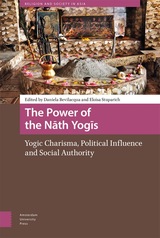 The Power of the Nath Yogis: Yogic Charisma, Political Influence and Social Authority
Daniela Bevilacqua
Amsterdam University Press, 2022 The volume collects a series of contributions that help reconstruct the recent history of the Nath tradition, highlighting important moments of self.reinterpretation in the sampradaya’s interaction with different social milieus. The leitmotif tying together the selection of articles is the authors’ explorations of the overlap between religious authority and political power. For example, in which ways do the Naths’ hagiographical claim of possessing yogic charisma (often construed as supernatural powers, siddhis) translate into mundane expressions of socio-political power? And how does it morph into the authority to reinterpret and recreate particular traditions? The articles approach different aspects of the recent history of the Nath sampradaya, spanning from stories of yogis guiding kings in the petty principalities of the eighteenth century to gurus who sought prominence in the transnational environments of the twentieth century; examining some Nath lineages and institutions under the British Raj, in the history of Nepal, and in contemporary India.
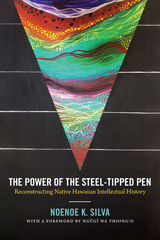 The Power of the Steel-tipped Pen: Reconstructing Native Hawaiian Intellectual History
Noenoe K. Silva
Duke University Press, 2017 In The Power of the Steel-tipped Pen Noenoe K. Silva reconstructs the indigenous intellectual history of a culture where—using Western standards—none is presumed to exist. Silva examines the work of two lesser-known Hawaiian writers—Joseph Ho‘ona‘auao Kānepu‘u (1824–ca. 1885) and Joseph Moku‘ōhai Poepoe (1852–1913)—to show how the rich intellectual history preserved in Hawaiian-language newspapers is key to understanding Native Hawaiian epistemology and ontology. In their newspaper articles, geographical surveys, biographies, historical narratives, translations, literatures, political and economic analyses, and poetic works, Kānepu‘u and Poepoe created a record of Hawaiian cultural history and thought in order to transmit ancestral knowledge to future generations. Celebrating indigenous intellectual agency in the midst of US imperialism, The Power of the Steel-tipped Pen is a call for the further restoration of native Hawaiian intellectual history to help ground contemporary Hawaiian thought, culture, and governance.
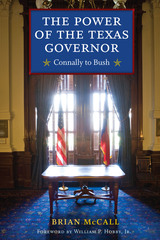 The Power of the Texas Governor: Connally to Bush
By Brian McCall
University of Texas Press, 2009 George W. Bush called it "the best job in the world," yet many would argue that the Texas governorship is a weak office. Given few enumerated powers by the Texas Constitution, the governor must build a successful relationship with the state legislature—sometimes led by a powerful lieutenant governor or speaker of the opposing party—to advance his or her policy agenda. Yet despite the limitations on the office and the power of the legislative branch, many governors have had a significant impact on major aspects of Texas's public life—government, economic development, education, and insurance reform among them. How do Texas governors gain the power to govern effectively? The Power of the Texas Governor takes a fresh look at the state's chief executives, from John Connally to George W. Bush, to discover how various governors have overcome the institutional limitations of the office. Delving into the governors' election campaigns and successes and failures in office, Brian McCall makes a convincing case that the strength of a governor's personality—in particular, his or her highly developed social skills—can translate into real political power. He shows, for example, how governors such as Ann Richards and George W. Bush forged personal relationships with individual legislators to achieve their policy goals. Filled with revealing insights and anecdotes from key players in each administration, The Power of the Texas Governor offers new perspectives on leadership and valuable lessons on the use of power.
 Power of the Weak: STUDIES ON MEDIEVAL WOMEN
Edited by Jennifer Carpenter and Sally-Beth MacLean
University of Illinois Press, 1996 Covering the eleventh through
sixteenth centuries, these essays suggest that influence and power may
have paradoxically been available to women despite, and sometimes precisely
because of, their subordinate position in society. Striking for its range
of scholarship, this collection explores the power and independence, relationships
and influence of medieval queens, holy women, mothers, widows, Jewish
conversas, and others. Latin and Anglo-Norman hagiography, confessors'
manuals, coronation rituals, responsa literature, and legal theory
are represented.
"An intriguing exploration
of a basic paradox of medieval society, and an excellent blend of theory
and gender studies with detailed work relevant for social and political
history." -- Joel Rosenthal, author of Patriarchy and Families
of Privilege in Fifteenth-Century England
JENNIFER CARPENTER
is a lecturer in history at the University of Otago, Dunedin, New Zealand.
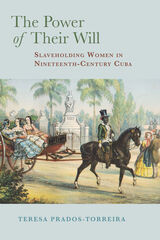 The Power of Their Will: Slaveholding Women in Nineteenth-Century Cuba
Teresa Prados-Torreira
University of Alabama Press, 2021 A Choice Outstanding Academic Title, 2022
“This fascinating book explores the unique circumstances of white slaveholding women in 19th-century Cuba and the enslaved peoples they controlled . . .This is a must read for scholars of the Caribbean and the African diaspora. Essential.” —CHOICE
In the early nineteenth century, while abolitionism was rising and the slave trade was declining in the Atlantic world, Spain used this opportunity to massively expand plantation slavery in Cuba. Between 1501 and 1866, more than 778,000 Africans were torn from their homelands and brought to work for the Cuban slaveholding class.
An understudied aspect of Cuban slaveholding society is the role of the white Cuban slave mistress (amas). The Power of Their Will: Slaveholding Women in Nineteenth-Century Cuba illuminates the interaction of female slaveholders and the enslaved during this time. Teresa Prados-Torreira shows, despite the lack of political power in a highly patriarchal society, Cuban women as property owners were instrumental in supporting the long duration of slavery, whether by enforcing the disciplining of the enslaved in the domestic sphere or helping to create the illusion of slavery as a humane institution. Thousands of Creole slaveholding women relied on slaves to lead a comfortable life. Even the subsistence of many poor women depended on the income derived from the hiring out of their enslaved.
In this accessible cultural history, culled from government documents, fiction, newspaper articles, traveler’s accounts, women’s wills, and archival research, Prados-Torreira coalesces a valuable narrative out of the often paradoxical and conflicting stories of the human bonds between the female owner and the enslaved. Narrative chapters, enlivened by vignettes, describe the daily life of slave mistresses in the main cities of Havana and Santiago and other towns, workings of sugar mills and coffee plantations, how slaveholding women coping with slave rebellions and wartime during the Ten Years’ War, and how personal relationships could occasionally affect the balance of power.
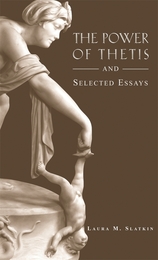 The Power of Thetis and Selected Essays
Laura M. Slatkin
Harvard University Press, 2011 Laura Slatkin's influential and widely admired book, here published in a second edition together with six additional essays, explores the superficially minor role of Thetis in the Iliad. Highly charged allusions reverberate through the narrative and establish a constellation of themes that link the poem to other traditions. Slatkin uncovers alternative traditions about the power of Thetis and shows how an awareness of those myths brings a far greater understanding of Thetis's place in the thematic structure of the Iliad. The six additional essays included in this volume—some of them classics, some never before published—cover a broad range of topics in the study of the Greek Epic: the workings of genre in Hesiod and Homer; the poetics of exchange; and the nature of enmity and friendship. The volume also includes a study of the Hesiodic Catalog of Women and reflections on particular heroes, such as Diomedes and Odysseus.
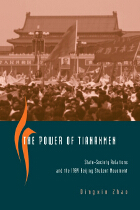 The Power of Tiananmen: State-Society Relations and the 1989 Beijing Student Movement
Dingxin Zhao
University of Chicago Press, 2001 In the spring of 1989 over 100,000 students in Beijing initiated the largest student revolt in human history. Television screens across the world filled with searing images from Tiananmen Square of protesters thronging the streets, massive hunger strikes, tanks set ablaze, and survivors tending to the dead and wounded after a swift and brutal government crackdown.
Dingxin Zhao's award-winning The Power of Tiananmen is the definitive treatment of these historic events. Along with grassroots tales and interviews with the young men and women who launched the demonstrations, Zhao carries out a penetrating analysis of the many parallel changes in China's state-society relations during the 1980s. Such changes prepared an alienated academy, gave rise to ecology-based student mobilization, restricted government policy choices, and shaped student emotions and public opinion, all of which, Zhao argues, account for the tragic events in Tiananmen.
 The Power of Two: A Twin Triumph Over Cystic Fibrosis
Isabel Byrnes and Anabel Stenzel
University of Missouri Press, 2007
For most people, a diagnosis of cystic fibrosis means the certainty of a life ended too soon. But for twin girls with the disease, what began as a family’s stubborn determination grew into a miracle.
The tragedy of CF has been touchingly recounted in such books as Frank Deford’s Alex: The Life of a Child, but The Power of Two is the first book to portray the symbiotic relationship between twins who share this life-threatening disease through adulthood. Isabel Stenzel Byrnes and Anabel Stenzel tell of their lifelong struggle to pursue normal lives with cystic fibrosis while grappling with the realization that they will die young. Their story reflects the physical and emotional challenges of a particularly aggressive form of CF and tells how the twins’ bicultural heritage—Japanese and German—influenced the way they coped with these challenges.
Born in 1972, seventeen years before scientists discovered the genetic mutation that causes CF, Isabel and Anabel endured the daily regimen of chest percussion, frequent doctor visits, and lengthy hospitalizations. But they tell how, in the face of innumerable setbacks, their deep-seated dependence on each other allowed them to survive long enough to reap the benefits of the miraculous lung transplants that marked a crossroads in their lives: “We have an old life—one of growing up with chronic illness—and a new life—one of opportunities and gifts we have never imagined before.” In this memoir, they pay tribute to the people who shaped their experience.
The Power of Two is an honest and gripping portrayal of day-to-day health care, the impact of chronic illness on marriage and family, and the importance of a support network to continuing survival. It conveys an important message to both popular and professional readers as it addresses key psychosocial issues in chronic illness throughout the sufferer’s lifespan and illuminates the human side of advances in biotechnology.
Even as gene therapy and stem cell research increase the chances for eradicating CF, this stirring account portrays its effects on one family that refused to give up. These two remarkable sisters have much to teach about the power of perseverance—and about the ultimate power of hope.
 The Power of Two: A Twin Triumph over Cystic Fibrosis, Updated and Expanded Edition
Isabel Stenzel Byrnes and Anabel Stenzel
University of Missouri Press, 2014 For most people, a diagnosis of cystic fibrosis means the certainty of a life ended too soon. But for Isabel Stenzel Byrnes and Anabel Stenzel, twin girls with the disease, what began as a family’s stubborn determination grew into a miracle. The tragedy of CF has been touchingly recounted in such books as Frank Deford’s Alex: The Life of a Child, but The Power of Two is the first book to portray the symbiotic relationship of twins who share this life-threatening disease through adulthood.Isabel and Anabel tell of their lifelong struggle to pursue normal lives with cystic fibrosis while grappling with the realization that they will die young. Their story reflects the physical and emotional challenges of a particularly aggressive form of CF and is an honest and gripping portrayal of the daily struggle associated with long-term hospitalization, the impact of chronic illness on marriage and family, and the importance of a support network to continuing survival. Born in 1972, seventeen years before scientists discovered the genetic mutation that causes CF, the Stenzel twins endured the daily regimen of chest percussion, frequent doctor visits, and lengthy hospitalizations. But in the face of innumerable setbacks, their deep-seated dependence on each other allowed them to survive long enough to reap the benefits of the miraculous lung transplants that marked a turning point in their lives: “We have an old life—one of growing up with chronic illness—and anew life—one of opportunities and gifts we have never imagined before.” In this memoir, they pay tribute to the people who shaped their experience. These two remarkable sisters have much to teach about the power of perseverance—and about the ultimate power of hope.
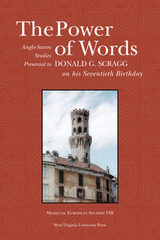 POWER OF WORDS: ANGLO-SAXON STUDIES PRESENTED TO DONALD G. SCRAGG ON HIS SEVENTIETH BIRTHDAY
Hugh Magennis
West Virginia University Press, 2006
The Power of Words: Anglo-Saxon Studies Presented to Donald G. Scragg on his Seventieth Birthday edited by Jonathan Wilcox and Hugh Magennis will find its place on the same shelf with these and other such valuable tomes in the discipline. This is a complex and carefully edited book, that showcases the work of some of Professor Scragg’s best students and most admiring professional friends. The contents range from several studies in homiletic literature, one of Professor Scragg’s own passions, to other of his pursuits, including editing theory and orthography. These are not, however, derivative essays that recommend a single adjustment in a reading or to a source study; instead, they are studies that do what Professor Scragg himself did: they observe clues to larger realities, and they point the way to a broader comprehension of our discipline and its several methodologies.
The Power of Words: Studies on Charms and Charming in Europe
James Kapalo
Central European University Press, 2013 n medieval and early modern Europe, the use of charms was a living practice in all strata of society. The essays in this latest CEU Press publication explore the rich textual tradition of archives, monasteries, and literary sources. The author also discusses texts amassed in folklore archives and ones that are still accessible through field work in many rural areas of Europe.
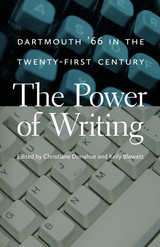 The Power of Writing: Dartmouth '66 in the Twenty-First Century
Edited by Christiane Donahue and Kelly Blewett
Dartmouth College Press, 2015 At the 1966 Dartmouth Seminar, scholars gathered to debate the direction of English Studies in the academy. This debate had far-reaching effects and arguably forever changed writing instruction in the United States. To commemorate the 45th anniversary of this gathering, Dartmouth College hosted an event both celebrating the past and looking toward the future. Then as now, there is this simple truth: writing well matters, and it matters in institutions of higher education across disciplines. Yet what it means to be a good writer in the academy and in the public sphere remains a site of controversy and discussion. The Power of Writing: Dartmouth ’66 in the Twenty-First Century argues that any discussion of why writing well matters should extend beyond composition and rhetoric scholars to capture the knowledge that outstanding teachers and writers themselves put to work every day. The editors have brought together scholars and public intellectuals (including New York Times best-selling authors David McCullough and Steve Strogatz) from the sciences, social sciences, humanities, and interdisciplinary fields to engage in a dialogue about some of the controversial questions related to writing today. Readers will engage with questions about what it means to write well and how different answers affect the teaching and learning of writing in higher education. Each anchor article—representing disciplines as varied as musicology, African studies, mathematics, and history—receives responses from Dartmouth faculty and nationally renowned faculty members in writing studies programs. This timely and wide-ranging collection will have appeal far beyond writing instructors and is specifically designed for readers across disciplines.
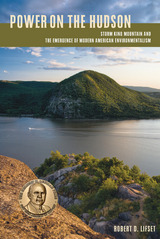 Power on the Hudson: Storm King Mountain and the Emergence of Modern American Environmentalism
Robert D. Lifset
University of Pittsburgh Press, 2014 The beauty of the Hudson River Valley was a legendary subject for artists during the nineteenth century. They portrayed its bucolic settings and humans in harmony with nature as the physical manifestation of God’s work on earth. More than a hundred years later, those sentiments would be tested as never before. In the fall of 1962, Consolidated Edison of New York, the nation’s largest utility company, announced plans for the construction of a pumped-storage hydroelectric power plant at Storm King Mountain on the Hudson River, forty miles north of New York City. Over the next eighteen years, their struggle against environmentalists would culminate in the abandonment of the project.
Robert D. Lifset offers an original case history of this monumental event in environmental history, when a small group of concerned local residents initiated a landmark case of ecology versus energy production. He follows the progress of this struggle, as Con Ed won approvals and permits early on, but later lost ground to environmentalists who were able to raise questions about the potential damage to the habitat of Hudson River striped bass.
Lifset uses the struggle over Storm King to examine how environmentalism changed during the 1960s and 1970s. He also views the financial challenges and increasingly frequent blackouts faced by Con Ed, along with the pressure to produce ever-larger quantities of energy.
As Lifset demonstrates, the environmental cause was greatly empowered by the fact that through this struggle, for the first time, environmentalists were able to gain access to the federal courts. The environmental cause was also greatly advanced by adopting scientific evidence of ecological change, combined with mounting public awareness of the environmental consequences of energy production and consumption. These became major factors supporting the case against Con Ed, spawning a range of new local, regional, and national environmental organizations and bequeathing to the Hudson River Valley a vigilant and intense environmental awareness. A new balance of power emerged, and energy companies would now be held to higher standards that protected the environment.
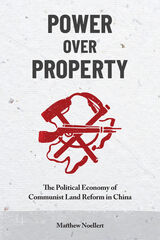 Power over Property: The Political Economy of Communist Land Reform in China
Matthew Noellert
University of Michigan Press, 2020 Following the end of World War II in 1945, the Chinese Communist Party (CCP) spent the next three decades carrying out agrarian reform among nearly one-third of the world’s peasants. This book presents a new perspective on the first step of this reform, when the CCP helped redistribute over 40 million hectares of land to over three hundred million impoverished peasants in the nationwide land reform movement. This land reform, the founding myth of the People’s Republic of China (1949–present) and one of the largest redistributions of wealth and power in history, embodies the idea that an equal distribution of property will lead to social and political equality.
Power Over Property argues that in practice, however, the opposite occurred: the redistribution of political power led to a more equal distribution of property. China’s land reform was accomplished not only through the state’s power to define the distribution of resources, but also through village communities prioritizing political entitlements above property rights. Through the systematic analysis of never-before studied micro-level data on practices of land reform in over five hundred villages, Power Over Property demonstrates how land reform primarily involved the removal of former power holders, the mobilization of mass political participation, and the creation of a new social-political hierarchy. Only after accomplishing all of this was it possible to redistribute land. This redistribution, moreover, was determined by political relations to a new structure of power, not just economic relations to the means of production.
The experience of China’s land reform complicates our understanding of the relations between economic, social, and political equality. On the one hand, social equality in China was achieved through political, not economic means. On the other hand, the fundamental solution was a more effective hierarchy of fair entitlements, not equal rights. This book ultimately suggests that focusing on economic equality alone may obscure more important social and political dynamics in the development of the modern world.
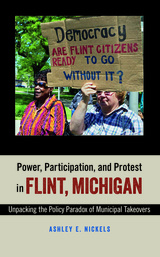 Power, Participation, and Protest in Flint, Michigan: Unpacking the Policy Paradox of Municipal Takeovers
Ashley E. Nickels
Temple University Press, 2019 When the 2011 municipal takeover in Flint, Michigan placed the city under state control, some supported the intervention while others saw it as an affront to democracy. Still others were ambivalent about what was supposed to be a temporary disruption. However, the city’s fiscal emergency soon became a public health emergency—the Flint Water Crisis—that captured international attention. But how did Flint’s municipal takeovers, which suspended local representational government, alter the local political system? In Power, Participation, and Protest in Flint, Michigan, Ashley Nickels addresses the ways residents, groups, and organizations were able to participate politically—or not—during the city’s municipal takeovers in 2002 and 2011. She explains how new politics were created as organizations developed, new coalitions emerged and evolved, and people’s understanding of municipal takeovers changed. Inwalking readers through the policy history of, implementation of, and reaction to Flint’s two municipal takeovers, Nickels highlights how the ostensibly apolitical policy is, in fact, highly political.
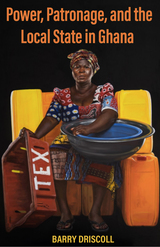 Power, Patronage, and the Local State in Ghana
Barry Driscoll
Ohio University Press, 2023 How have the waves of democracy and decentralization that swept the developing world in recent decades affected states—among the most important drivers of poverty and prosperity—at national and local levels in Ghana and beyond? State actors beneath the national level—what Barry Driscoll calls the local state—have considerable responsibility for carrying out state functions, but they are also forced to compete for these local state offices. How does a local state actually work in poor twentieth-century countries? This book offers a descriptive account, as well as a causal explanation, of how political competition affects the local state in Ghana. Driscoll shows how closely fought elections drive local state institutions to provide patronage. The source of these demands for patronage comes not from rent-seeking bureaucrats or landed elites but from the government’s own party volunteers. Driscoll explains how electoral competition affects how local state actors are insulated from such patronage demands. Moreover, these highly competitive, patronage-providing local governments actually have relatively better-qualified senior civil servants at their disposal. Driscoll makes sense of this paradox by introducing the logic of building administrative capacity in order to provide patronage. He then abstracts from the case of Ghana to generalize about how the effect of political competition is shaped by the locally salient variety of clientelism, which in turn is conditioned by the strength of the party system. The book draws on fourteen months of fieldwork in six of Ghana’s districts, far from the nation’s capital city. Ethnographic and interview data come from time spent with market traders, tax collectors, politicians, and other figures in local state offices. Quantitative data come from a survey covering almost all local governments. The result is a detailed account of Ghana’s local state power dynamics that has relevant implications for states across the developing world.
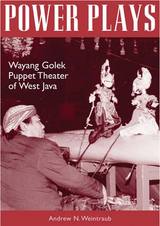 Power Plays: Wayang Golek Puppet Theater of West Java
Andrew N. Weintraub
Ohio University Press, 2004 Based on ethnographic fieldwork spanning twenty years, Power Plays is the first scholarly book in English on wayang golek, the Sundanese rod-puppet theater of West Java. It is a detailed and lively account of the ways in which performers of this major Asian theatrical form have engaged with political discourses in Indonesia. Wayang golek has shaped, as well, the technological and commercial conditions of art and performance in a modernizing society.
Using interviews with performers, musical transcriptions, translations of narrative and song texts, and archival materials, author Andrew N. Weintraub analyzes the shifting and flexible nature of a set of performance practices called Padalangan, the art of the puppeteer. He focuses on “superstar” performers and the musical troupes that dominated wayang golek during the New Order political regime of former president Suharto (1966-98) and the ensuing three years of the post-Suharto period. Studies of actual performances illuminate stylistic and formal elements and situate wayang golek as a social process in Sundanese culture and society. Power Plays includes an interactive multimedia CD-ROM of wayang golek.
Power Plays shows how meanings about identity, citizenship, and community are produced through theater, music, language, and discourse. While based in ethnographic theory and methods, this book is at the center of a new synthesis emerging among ethnomusicology, anthropology, and cultural studies. Its cross-disciplinary approach will inspire researchers studying similar struggles over cultural authority and popular representation in culture and the performing arts.
 Power, Pleasure, and Profit: Insatiable Appetites from Machiavelli to Madison
David Wootton
Harvard University Press, 2018 A provocative history of the changing values that have given rise to our present discontents.
We pursue power, pleasure, and profit. We want as much as we can get, and we deploy instrumental reasoning—cost-benefit analysis—to get it. We judge ourselves and others by how well we succeed. It is a way of life and thought that seems natural, inevitable, and inescapable. As David Wootton shows, it is anything but. In Power, Pleasure, and Profit, he traces an intellectual and cultural revolution that replaced the older systems of Aristotelian ethics and Christian morality with the iron cage of instrumental reasoning that now gives shape and purpose to our lives.
Wootton guides us through four centuries of Western thought—from Machiavelli to Madison—to show how new ideas about politics, ethics, and economics stepped into a gap opened up by religious conflict and the Scientific Revolution. As ideas about godliness and Aristotelian virtue faded, theories about the rational pursuit of power, pleasure, and profit moved to the fore in the work of writers both obscure and as famous as Hobbes, Locke, and Adam Smith. The new instrumental reasoning cut through old codes of status and rank, enabling the emergence of movements for liberty and equality. But it also helped to create a world in which virtue, honor, shame, and guilt count for almost nothing, and what matters is success.
Is our world better for the rise of instrumental reasoning? To answer that question, Wootton writes, we must first recognize that we live in its grip.
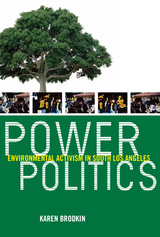 Power Politics: Environmental Activism in South Los Angeles
Brodkin, Karen
Rutgers University Press, 2009 In the late 1990s, when California's deregulation of the production and sale of electric power created massive energy shortages, a group of environmental justice activists blocked construction of a power plant in their working-class Mexican and Central American neighborhoods. Why did they choose this battle? And how did the largely high school student activists come to prevail in the face of statewide political opinion? Power Politics is a rich and readable study of a grassroots campaign where longtime labor and environmental allies found themselves on opposite sides of a conflict that pitted good jobs against good air. Karen Brodkin analyzes how those issues came to be opposed and in doing so unpacks the racial and class dynamics that shape Americans' grasp of labor and environmental issues. Power Politics' activists stood at the forefront of a movement that is building broad-based environmental coalitions and placing social justice at the heart of a new and robust vision.
Power Politics: How China and Russia Reshape the World
Rob de Wijk
Amsterdam University Press, 2015 We tend to think of ourselves as living in a time when nations, for the most part, obey the rule of law - and where they certainly don't engage in the violent grabs for territory that have characterised so much of human history. But as Rob de Wijk shows in this book, power politics very much remains a force on the international scene. Offering analyses of such actions as Putin's annexation of the Crimea and China's attempts to claim large parts of the South China Sea, de Wijk explains why power politics never truly went away-and why, as the West's position weakens, it's likely to play a bigger and bigger role on the global stage in the coming years.
 Power, Prayers, and Protection: A Cultural History of the Utah San Juan River Navajo
Robert S. McPherson
University Press of Colorado, 2022 The San Juan River Navajos—residing in the vicinity of Aneth, Montezuma Creek, Bluff, and Tódahidíkáanii—have a fascinating history shaped, in part, by the water they lived near and the land they depended on. Circumscribed by sacred narratives and traditional teachings, the Diné forged a life in this high desert landscape while facing challenges from the environment as well as their neighbors—Utes, Paiutes, Mormons, cowboys, miners, evangelists, agents, government farmers, military personnel, educators, and entrepreneurs of all kinds. Their life has been one of confrontation, change, and adaptation as they explored new paths into the future.
Navajo oral tradition is rich in stories and themes that form the basis for ceremonial performance. Everything that is physical, emotional, or spiritual has been placed in this world by the holy people at the time of creation, a process recognized in these accounts and teachings. Each chapter references sacred narratives that provide power through prayers that bring protection and a path for believers to follow. Topics include life on the river before and during the introduction of the white man, efficacy of the chantways, teachings of medicine people, childhood memories, arrival of trading posts, encounters with the automobile and other technology, livestock reduction and its aftermath, and the development of the Aneth oilfield with its ensuing protests. This is the Navajo elders’ story as seen through their eyes and told in their voice.
Power, Profit and Prestige: A History of American Imperial Expansion
Philip S. Golub
Pluto Press, 2010 Power, Profit and Prestige applies incisive historical and sociological analysis to make sense of the United States’ post-Cold War imperial behaviour.
Philip Golub studies imperial identity formation and shows how an embedded culture of force and expansion has shaped American foreign policy. He argues that the US logic of world power and deeply rooted assumptions about American primacy inhibits democratic transformation at domestic and international levels. This resistance to change may lead the US empire into a crisis of its own making.
This enlightening book will be particularly useful to students of history and international relations as they explore a world where America is no longer able to set the global agenda.
Power, Protest, and the Public Schools: Jewish and African American Struggles in New York City
Melissa F. Weiner
Rutgers University Press, 2012 Accounts of Jewish immigrants usually describe the role of education in helping youngsters earn a higher social position than their parents. Melissa F. Weiner argues that New York City schools did not serve as pathways to mobility for Jewish or African American students. Instead, at different points in the city's history, politicians and administrators erected similar racial barriers to social advancement by marginalizing and denying resources that other students enjoyed. Power, Protest, and the Public Schools explores how activists, particularly parents and children, responded to inequality; the short-term effects of their involvement; and the long-term benefits that would spearhead future activism. Weiner concludes by considering how today's Hispanic and Arab children face similar inequalities within public schools.
 Power Quality in Future Electrical Power Systems
Ahmed F. Zobaa
The Institution of Engineering and Technology, 2017 Power quality is necessary for electrical systems to operate in their intended manner without any deterioration of performance. This book highlights the new emerging challenges of power quality due to the penetration of large-scale renewable energy generation technologies, the advances in nonlinear loads, the increased electricity demands in the deregulated market, and the recent requirements of smart grids that need better hierarchical design with enhanced quality, improved controllability, higher reliability, and security. Novel research that links the past, present and future of electrical power grids from a power quality perspective is also introduced. Topics include power quality definitions; frequency-domain power theory and metering of harmonic pollution responsibility; active and passive harmonic filters; shunt flexible AC transmission; power quality improvement using series FACTS; distributed generation systems; islanding scenario generation algorithm; decentralised voltage control in smart grids; techno-economic issues of power quality; economic robust programming for energy management systems; and future trends in power quality.
 Power, Resistance, Ideology and the State: Charles Tripp and the Comparative Politics of the Middle East
Edited by Toby Dodge, Daniel Neep, and Ali M. Ansari
Gingko, 2025 A wide-ranging, innovative, and essential exploration of the politics of today’s Middle East.
Power, Resistance, Ideology and the State: Charles Tripp and the Comparative Politics of the Middle East seeks to present a new understanding of a region of unprecedented volatility, where postcolonial projects of state-driven development have now expired, old ruling elites have been delegitimized, and political Islam discredited. The work of Charles Tripp, professor at the School of Oriental and African Studies (SOAS) for over three decades, has shaped a distinct approach to the study of Middle East politics with an analytical sensibility that is empirically rich, theoretically insightful, and historically sensitive. This volume brings together contributions from ten political scientists and historians from across Europe, the United States, and the Middle East, each of which takes Tripp’s work as an intellectual point of departure for studying Middle East politics.
Against this background, the contributors explore the contemporary developments that have emerged to fill the intellectual and material shortcomings created by the systemic failures of economics and politics in the region.
The contributions focus on four themes that are central to an understanding of Middle East politics—power, resistance, ideology, and the state—to examine political trends in cases ranging from Iran and Iraq to Jordan, Lebanon, and Syria. Each chapter combines extensive field research and a knowledge of regional politics with methodological and philosophical reflexivity to produce a collection of papers at the cutting edge of contemporary Middle East Studies.
 Power Shift: Keywords for a New Politics of Energy
Imre Szeman
West Virginia University Press, 2025 Power Shift traces recent social and cultural shifts in how we understand and imagine energy, the environment, and the challenges of global warming. Across the globe, the need to transition to renewables has become the guiding reality of our energy present and future, despite continuing resistance to change. But what does this moment of energy transition look like for those struggling to make it happen in a way that benefits every individual and all communities?
Featuring brief essays on 101 key terms by scholars, artists, and activists from around the world and across disciplines, Power Shift offers an expansive, kaleidoscopic guide to the history of petromodernity, recent technological and social developments, and pathways to new energy futures. The book offers new insights into the emergent politics of energy, contrasting today’s environmental and climate movements with the geopolitical contests of the Cold War era. It explores the still unfolding story of energy transition by focusing on the ongoing struggles of communities and individuals against decisions made by corporations, governments, and international organizations.
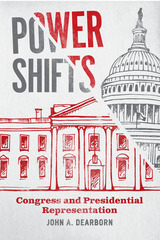 Power Shifts: Congress and Presidential Representation
John A. Dearborn
University of Chicago Press, 2021 That the president uniquely represents the national interest is a political truism, yet this idea has been transformational, shaping the efforts of Congress to remake the presidency and testing the adaptability of American constitutional government.
The emergence of the modern presidency in the first half of the twentieth century transformed the American government. But surprisingly, presidents were not the primary driving force of this change—Congress was. Through a series of statutes, lawmakers endorsed presidential leadership in the legislative process and augmented the chief executive’s organizational capacities.
But why did Congress grant presidents this power? In Power Shifts, John A. Dearborn shows that legislators acted on the idea that the president was the best representative of the national interest. Congress subordinated its own claims to stand as the nation’s primary representative institution and designed reforms that assumed the president was the superior steward of all the people. In the process, Congress recast the nation’s chief executive as its chief representative.
As Dearborn demonstrates, the full extent to which Congress’s reforms rested on the idea of presidential representation was revealed when that notion’s validity was thrown into doubt. In the 1970s, Congress sought to restore its place in a rebalanced system, but legislators also found that their earlier success at institutional reinvention constrained their efforts to reclaim authority. Chronicling the evolving relationship between the presidency and Congress across a range of policy areas, Power Shifts exposes a fundamental dilemma in an otherwise proud tradition of constitutional adaptation.
A Power Stronger Than Itself: The AACM and American Experimental Music
George E. Lewis
University of Chicago Press, 2008 Founded in 1965 and still active today, the Association for the Advancement of Creative Musicians (AACM) is an American institution with an international reputation. George E. Lewis, who joined the collective as a teenager in 1971, establishes the full importance and vitality of the AACM with this communal history, written with a symphonic sweep that draws on a cross-generational chorus of voices and a rich collection of rare images.
Moving from Chicago to New York to Paris, and from founding member Steve McCall’s kitchen table to Carnegie Hall, A Power Stronger Than Itself uncovers a vibrant, multicultural universe and brings to light a major piece of the history of avant-garde music and art.
The Power Structure of American Business
Beth A. Mintz and Michael Schwartz
University of Chicago Press, 1985 Mintz and Schwartz offer a fascinating tour of the corporate world. Through an intensive study of interlocking corporate directorates, they show that for the first time in American history the loan making and stock purchasing and selling powers are concentrated in the same hands: the leadership of major financial firms. Their detailed descriptions of corporate case histories include the forced ouster of Howard Hughes from TWA in the late fifties as a result of lenders' pressure; the collapse of Chrysler in the late seventies owing to banks' refusal to provide further capital infusions; and the very different "rescues" of Pan American Airlines and Braniff Airlines by bank intervention in the seventies.
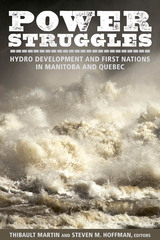 Power Struggles: Hydro Development and First Nations in Manitoba and Quebec
Thibault Martin
University of Manitoba Press, 2008 Power Struggles: Hydro Development and First Nations in Manitoba and Quebec examines the evolution of new agreements between First Nations and Inuit and the hydro corporations in Quebec and Manitoba, including the Wuskwatim Dam Project, Paix des Braves, and the Great Whale Project. In the 1970s, both provinces signed so-called “modern treaties” with First Nations for the development of large hydro projects in Aboriginal territories. In recent times, however, the two provinces have diverged in their implementation, and public opinion of these agreements has ranged from celebratory to outrage.Power Struggles brings together perspectives on these issues from both scholars and activists. In debating the relative merits and limits of these agreements, they raise a crucial question: Is Canada on the eve of a new relationship with First Nations, or do the same colonial attitudes that have long characterized Canadian-Aboriginal relations still prevail?
Power System Commissioning and Maintenance Practice
Keith Harker
The Institution of Engineering and Technology, 1997 Power system reliability and security is highly dependent on the practices employed in both the commissioning and maintenance processes. Both must be to a high standard to ensure that equipment does not enter service with latent deficiencies. This demands engineers who understand the necessary management involved as well as the technical processes. There is very little literature currently available on the subject; a situation which this book seeks to redress.
Power System Protection: Application, Volume 3
The Electricity Training Association Electricity Training Association
The Institution of Engineering and Technology, 1995 The worldwide growth in demand for electricity has forced the pace of developments in electrical power system design to meet consumer needs for reliable, secure and cheap supplies. Power system protection, as a technology essential to high quality supply, is widely recognised as a specialism of growing and often critical importance, in which power system needs and technological progress have combined to result in rapid developments in policy and practice in recent years. In the United Kingdom, the need for appropriate training in power system protection was recognised in the early 1960s with the launch of a correspondence course from which these books emerged and have since developed designed to meet the needs of protection staff throughout the world.
Power System Protection: Digital protection and signalling, Volume 4
The Electricity Training Association Electricity Training Association
The Institution of Engineering and Technology, 1995 The worldwide growth in demand for electricity has forced the pace of developments in electrical power system design to meet consumer needs for reliable, secure and cheap supplies. Power system protection, as a technology essential to high quality supply, is widely recognised as a specialism of growing and often critical importance, in which power system needs and technological progress have combined to result in rapid developments in policy and practice in recent years. In the United Kingdom, the need for appropriate training in power system protection was recognised in the early 1960s with the launch of a correspondence course from which these books emerged and have since developed designed to meet the needs of protection staff throughout the world.
Power System Protection: Principles and components, Volume 1
The Electricity Training Association Electricity Training Association
The Institution of Engineering and Technology, 1995 The worldwide growth in demand for electricity has forced the pace of developments in electrical power system design to meet consumer needs for reliable, secure and cheap supplies. Power system protection, as a technology essential to high quality supply, is widely recognised as a specialism of growing and often critical importance, in which power system needs and technological progress have combined to result in rapid developments in policy and practice in recent years. In the United Kingdom, the need for appropriate training in power system protection was recognised in the early 1960s with the launch of a correspondence course from which these books emerged and have since developed designed to meet the needs of protection staff throughout the world.
Power System Protection: Systems and methods, Volume 2
The Electricity Training Association Electricity Training Association
The Institution of Engineering and Technology, 1995 The worldwide growth in demand for electricity has forced the pace of developments in electrical power system design to meet consumer needs for reliable, secure and cheap supplies. Power system protection, as a technology essential to high quality supply, is widely recognised as a specialism of growing and often critical importance, in which power system needs and technological progress have combined to result in rapid developments in policy and practice in recent years. In the United Kingdom, the need for appropriate training in power system protection was recognised in the early 1960s with the launch of a correspondence course from which these books emerged and have since developed designed to meet the needs of protection staff throughout the world.
Power System Stability: Modelling, analysis and control
Abdelhay A. Sallam
The Institution of Engineering and Technology, 2015 To ensure stable operation of a power system, it is necessary to analyse the power system performance under various operating conditions. Analysis includes studies such as power flow and both steady-state and transient stability. To perform such studies requires knowledge about the models used to represent the various components that constitute an integrated power system. In situations where there is a risk of loss of stability, it is necessary to apply controls that can ensure stable and uninterrupted supply of electricity following a disturbance.
Power System Strength: Evaluation methods, best practice, case studies, and applications
Hassan Haes Alhelou
The Institution of Engineering and Technology, 2024 Power systems need to incorporate rising shares of intermittent renewables. The penetration levels of renewable energy sources, inverter-based resources and inverter-based loads have grown, which has negative impacts on the stability and system strength of existing power systems.
Power Systems and Smart Grids: Control, management and power quality of smart grids, Volume 2
Ali Mohamed Eltamaly
The Institution of Engineering and Technology, 2025 Power systems need to be optimised for efficient use of resources and in order to meet stringent requirements for power quality and reliability. Algorithms exist and are in development for various tasks including sizing, voltage and frequency control, demand response, fault identification, and for specific situations and systems such as hybrid energy systems and hot climates. Especially in urban areas with high population densities, researchers and experts need to be abreast of R&D trends, both for energy systems for communities as well as for smart grid developments.
Power Systems and Smart Grids: Sizing and optimization of energy systems for communities, Volume 1
Ali Mohamed Eltamaly
The Institution of Engineering and Technology, 2025 Power systems need to be optimised for efficient use of resources and in order to meet stringent requirements for power quality and reliability. Algorithms exist and are in development for various tasks including sizing, voltage and frequency control, demand response, fault identification, and for specific situations and systems such as hybrid energy systems and hot climates. Especially in urban areas with high population densities, researchers and experts need to be abreast of R&D trends, both for energy systems for communities as well as for smart grid developments.
Power Systems Electromagnetic Transients Simulation
Neville Watson
The Institution of Engineering and Technology, 2003 Accurate knowledge of electromagnetic power system transients is crucial to the operation of an economic, efficient and environmentally-friendly power system network, without compromising on the reliability and quality of the electrical power supply. Simulation has become a universal tool for the analysis of power system electromagnetic transients and yet is rarely covered in-depth in undergraduate programmes. It is likely to become core material in future courses.
Power Systems Electromagnetic Transients Simulation
Neville Watson
The Institution of Engineering and Technology, 2019 Accurate knowledge of electromagnetic power system transients is crucial to the operation of an economic, efficient and environmentally friendly power systems network without compromising on the reliability and quality of electrical power supply. Electromagnetic transient (EMT) simulation has therefore become a universal tool for the analysis of power system electromagnetic transients in the range of nanoseconds to seconds, and is the backbone for the design and planning of power systems, as well as for the investigation of problems.
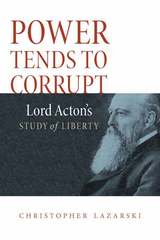 Power Tends To Corrupt: Lord Acton's Study of Liberty
Christopher Lazarski
Northern Illinois University Press, 2012
Lord Acton (1834–1902) is often called a historian of liberty. A great historian and political thinker, he had a rare talent to reach beneath the surface and reveal the hidden springs that move the world. While endeavoring to understand the components of a truly free society, Acton attempted to see how the principles of self-determination and freedom worked in practice, from antiquity to his own time. But though he penned hundreds of papers, essays, reviews, letters and ephemera, the ultimate book of his findings and views on the history of liberty remained unwritten. Reading a book a day for years he still could not keep pace with the output of his time, and finally, dejected, he gave up. Today, Acton is mainly known for a single maxim, “Power tends to corrupt, and absolute power corrupts absolutely.”
In Power Tends to Corrupt, Christopher Lazarski presents the first in-depth consideration of Acton’s thought in more than fifty years. Lazarski brings Acton’s work to light in accessible language, with a focus on his understanding of liberty and its development in Western history. A work akin to Acton’s overall account of the history of liberty, with a secondary look at his political theory, this book is an outstanding exegesis of the theories and findings of one of the nineteenth century’s keenest minds.
The Power to Coerce: Countering Adversaries Without Going to War
David C. Gompert
RAND Corporation, 2016 Mounting costs, risks, and public misgivings of waging war are raising the importance of U.S. power to coerce (P2C). The best P2C options are financial sanctions, support for nonviolent political opposition to hostile regimes, and offensive cyber operations. The state against which coercion is most difficult and risky is China, which also happens to pose the strongest challenge to U.S. military options in a vital region.
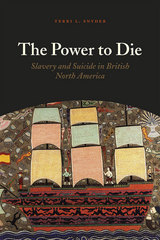 The Power to Die: Slavery and Suicide in British North America
Terri L. Snyder
University of Chicago Press, 2015 The history of slavery in early America is a history of suicide. On ships crossing the Atlantic, enslaved men and women refused to eat or leaped into the ocean. They strangled or hanged themselves. They tore open their own throats. In America, they jumped into rivers or out of windows, or even ran into burning buildings. Faced with the reality of enslavement, countless Africans chose death instead.
In The Power to Die, Terri L. Snyder excavates the history of slave suicide, returning it to its central place in early American history. How did people—traders, plantation owners, and, most importantly, enslaved men and women themselves—view and understand these deaths, and how did they affect understandings of the institution of slavery then and now? Snyder draws on ships’ logs, surgeons' journals, judicial and legislative records, newspaper accounts, abolitionist propaganda and slave narratives, and many other sources to build a grim picture of slavery’s toll and detail the ways in which suicide exposed the contradictions of slavery, serving as a powerful indictment that resonated throughout the Anglo-Atlantic world and continues to speak to historians today.
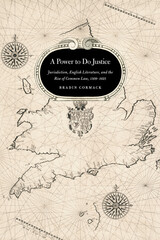 A Power to Do Justice: Jurisdiction, English Literature, and the Rise of Common Law
Bradin Cormack
University of Chicago Press, 2008 English law underwent rapid transformation in the sixteenth century, in response to the Reformation and also to heightened litigation and legal professionalization. As the common law became more comprehensive and systematic, the principle of jurisdiction came under particular strain. When the common law engaged with other court systems in England, when it encountered territories like Ireland and France, or when it confronted the ocean as a juridical space, the law revealed its qualities of ingenuity and improvisation. In other words, as Bradin Cormack argues, jurisdictional crisis made visible the law’s resemblance to the literary arts.
A Power to Do Justice shows how Renaissance writers engaged the practical and conceptual dynamics of jurisdiction, both as a subject for critical investigation and as a frame for articulating literature’s sense of itself. Reassessing the relation between English literature and law from More to Shakespeare, Cormack argues that where literary texts attend to jurisdiction, they dramatize how boundaries and limits are the very precondition of law’s power, even as they clarify the forms of intensification that make literary space a reality.
Tracking cultural responses to Renaissance jurisdictional thinking and legal centralization, A Power to Do Justice makes theoretical, literary-historical, and methodological contributions that set a new standard for law and the humanities and for the cultural history of early modern law and literature.
 The Power to Heal: Civil Rights, Medicare, and the Struggle to Transform America's Health Care System
David Barton Smith
Vanderbilt University Press, 2016 In less than four months, beginning with a staff of five, an obscure office buried deep within the federal bureaucracy transformed the nation's hospitals from our most racially and economically segregated institutions into our most integrated. These powerful private institutions, which had for a half century selectively served people on the basis of race and wealth, began equally caring for all on the basis of need.
The book draws the reader into the struggles of the unsung heroes of the transformation, black medical leaders whose stubborn courage helped shape the larger civil rights movement. They demanded an end to federal subsidization of discrimination in the form of Medicare payments to hospitals that embraced the "separate but equal" creed that shaped American life during the Jim Crow era. Faced with this pressure, the Kennedy and Johnson Administrations tried to play a cautious chess game, but that game led to perhaps the biggest gamble in the history of domestic policy. Leaders secretly recruited volunteer federal employees to serve as inspectors, and an invisible army of hospital workers and civil rights activists to work as agents, making it impossible for hospitals to get Medicare dollars with mere paper compliance. These triumphs did not come without casualties, yet the story offers lessons and hope for realizing this transformational dream.
This book is the recipient of the Norman L. and Roselea J. Goldberg Prize from Vanderbilt University Press for the best book in the area of medicine.
 Power to Hurt: THE VIRTUES OF ALIENATION
William Monroe
University of Illinois Press, 1998 William Monroe addresses what William J. Bennett ignores in The Book of Virtues: How do readers use literature as "equipment for living"? Tackling modernism and postmodernism, Monroe outlines "virtue criticism," an alternative to current theory. Focusing on works by T. S. Eliot, Vladimir Nabokov, and Donald Barthelme, he demonstrates that these alienistic texts are not just filled with belligerence but are also endowed with virtues, such as trust and the promise of solidarity with the reader. By considering these vital texts as responses to personal situations and institutional practices, Monroe brings literature back to the common reader and shows how it offers functional responses to the dysfunctional situations of modern life. Readers interested in literary criticism, American culture, and the relationship between ethics and literature will be fascinated by virtue criticism and this fresh look at the virtues and vices of alienation.
Chosen as a Choice Magazine's Outstanding Academic Book for 1999.
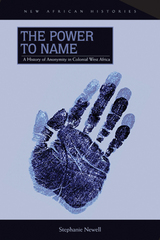 The Power to Name: A History of Anonymity in Colonial West Africa
Stephanie Newell
Ohio University Press, 2013 Between the 1880s and the 1940s, the region known as British West Africa became a dynamic zone of literary creativity and textual experimentation. African-owned newspapers offered local writers numerous opportunities to contribute material for publication, and editors repeatedly defined the press as a vehicle to host public debates rather than simply as an organ to disseminate news or editorial ideology. Literate locals responded with great zeal, and in increasing numbers as the twentieth century progressed, they sent in letters, articles, fiction, and poetry for publication in English- and African-language newspapers. The Power to Name offers a rich cultural history of this phenomenon, examining the wide array of anonymous and pseudonymous writing practices to be found in African-owned newspapers between the 1880s and the 1940s, and the rise of celebrity journalism in the period of anticolonial nationalism. Stephanie Newell has produced an account of colonial West Africa that skillfully shows the ways in which colonized subjects used pseudonyms and anonymity to alter and play with colonial power and constructions of African identity.
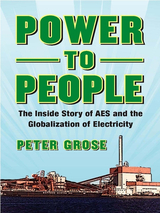 Power to People: The Inside Story of AES and the Globalization of Electricity
Peter Grose
Island Press, 2007 In the late 1990s, while Enron was flying high, a smaller power company flew under the radar. AES was founded in 1981 according to a different set of principles—fiscally conservative investment strategies paired with the belief that business can be both fun and socially responsible.
When Roger Sant arrived in Washington, D.C., in 1974, industry and government were focused on securing ever more oil, gas, coal, and nuclear energy, not on efficiency. Sant, who left a teaching position at Stanford’s business school to become assistant administrator of the Federal Energy Administration, was committed to changing the focus. With his colleague Dennis Bakke and a handful of investors, Sant founded AES, an upstart energy service company that would ultimately help transform the industry. The company was built on Sant and Bakke’s ideals: a healthy work environment, a healthy natural environment, and efficient electricity generation and delivery at an affordable price. AES seized the opportunities created by deregulation of the electricity industry, breaking free of an energy infrastructure dating back to Thomas Edison’s day. While Enron and many others stumbled, AES proved itself able to survive and often to thrive. Rapid growth would become the company’s greatest challenge, yet through exhilarating highs and disappointing lows, AES has maintained its founders’ original vision of electricity generation that sustains workers, consumers, and the environment.
Power to People is the story of electricity privatization, expanding global markets, and the transformation of an industry. It is also proof of the electrifying combination of innovation and good citizenship.
 Power to the Partners: Organizational Coalitions in Social Justice Advocacy
Maraam A. Dwidar
University of Chicago Press, 2025 A vital examination of how social and economic justice organizations overcome resource disadvantages and build political power. Why do some coalitions triumph while others fall short? In Power to the Partners, Maraam A. Dwidar documents the vital role of social and economic justice organizations in American politics and explores the process by which they strategically build partnerships to advance more effective and equitable advocacy. Using original data tracking the collaboration patterns of more than twenty thousand nationally active advocacy organizations, Dwidar evaluates the micro- and macro-level conditions surrounding these groups’ successful efforts to collectively shape public policy. Power to the Partners reveals that while organizational advocates for social and economic justice are at a disadvantage in the American lobbying landscape—financially, tactically, and politically—coalition work can help ameliorate these disparities. By building and sustaining coalitions with structures and memberships that facilitate clarity, learning, and diverse perspectives, these advocates can successfully—and uniquely—make their mark on American public policy. Dwidar’s work offers critical insights for scholars and practitioners alike, from groundbreaking academic findings to evidence-based lessons for political organizers.
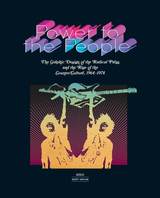 Power to the People: The Graphic Design of the Radical Press and the Rise of the Counter-Culture, 1964-1974
Geoff Kaplan
University of Chicago Press, 2013 Though we think of the 1960s and the early ‘70s as a time of radical social, cultural, and political upheaval, we tend to picture the action as happening on campuses and in the streets. Yet the rise of the underground newspaper was equally daring and original. Thanks to advances in cheap offset printing, groups involved in antiwar, civil rights, and other social liberation issues began to spread their messages through provocatively designed newspapers and broadsheets. This vibrant new media was essential to the counterculture revolution as a whole—helping to motivate the masses and proliferate ideas. Power to the People presents more than 700 full-color images and excerpts from these astonishing publications, many of which have not been seen since they were first published almost fifty years ago. From the psychedelic pages of the Oracle, Haight-Ashbury’s paper of choice, to the fiery editorials of the Black Panther Party Paper, these papers were remarkable for their editors’ fervent belief in freedom of expression and their DIY philosophy. They were also extraordinary for their graphic innovations. Experimental typography and wildly inventive layouts reflect an alternative media culture as much informed by the space age, television, and socialism as it was by the great trinity of sex, drugs, and rock ‘n’ roll. Assembled by renowned graphic designer Geoff Kaplan, Power to the People pays homage in its layout to the radical press. Beyond its unparalleled images, Power to the People includes essays by Gwen Allen, Bob Ostertag, and Fred Turner, as well as a series of recollections edited by Pamela M. Lee, all of which comment on the critical impact of the alternative press in the social and popular movements of those turbulent years. Power to the People treats the design practices of that moment as activism in its own right that offers a vehement challenge to the dominance of official media and a critical form of self-representation. No other book surveys in such variety the highly innovative graphic design of the underground press, and certainly no other book captures the era with such an unmatched eye toward its aesthetic and look. Power to the People is not just a major compendium of art from the ’60s and ’70s—it showcases how the radical media graphically fashioned the image of a countercultural revolution that still resounds to this day.
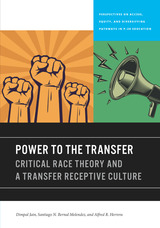 Power to the Transfer: Critical Race Theory and a Transfer Receptive Culture
Dimpal Jain
Michigan State University Press, 2020 Currently, U.S. community colleges serve nearly half of all students of color in higher education who, for a multitude of reasons, do not continue their education by transferring to a university. For those students who do transfer, often the responsibility for the application process, retention, graduation, and overall success is placed on them rather than their respective institutions. This book aims to provide direction toward the development and maintenance of a transfer receptive culture, which is defined as an institutional commitment by a university to support transfer students of color. A transfer receptive culture explicitly acknowledges the roles of race and racism in the vertical transfer process from a community college to a university and unapologetically centers transfer as a form of equity in the higher education pipeline. The framework is guided by critical race theory in education, which acknowledges the role of white supremacy and its contemporary and historical role in shaping institutions of higher learning.
A Power to Translate the World: New Essays on Emerson and International Culture
Edited by David LaRocca and Ricardo Miguel-Alfonso
Dartmouth College Press, 2016 This thought-provoking collection gathers a roster of seasoned Emerson scholars to address anew the way non-American writers and texts influenced Emerson, while also discussing the manner in which Emerson’s writings influenced a diverse array of non-American authors. This volume includes new, original, and engaging research on crucial topics that have for the most part been absent from recent critical literature. While the motivations for this project will be familiar to scholars of literary studies and the history of philosophy, its topics, themes, and texts are distinctly novel. A Power to Translate the World provides a touchstone for a new generation of scholars trying to orient themselves to Emerson’s ongoing relevance to global literature and philosophy.
Power Transformer Condition Monitoring and Diagnosis
Ahmed Abu-Siada
The Institution of Engineering and Technology, 2018 Power transformers are a key asset for electricity utilities around the globe. However, aging populations of large power transformers require reliable monitoring and diagnostics techniques to extend the asset's lifetime and minimise the possibility of catastrophic failure. This book describes the most popular power transformer condition monitoring techniques from principles to practice.
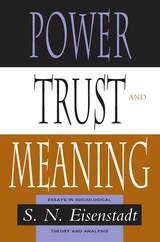 Power, Trust, and Meaning: Essays in Sociological Theory and Analysis
S. N. Eisenstadt
University of Chicago Press, 1995 S. N. Eisenstadt is well known for his wide-ranging investigations of modernization, social stratification, revolution, comparative civilization, and political development. This collection of twelve major theoretical essays spans more than forty years of research, to explore systematically the bases of human action and society.
Framed by a new introduction and an extensive epilogue, which are themselves important statements about processes of institutional formations and cultural creativity, the essays trace the major developments of contemporary sociological theory and analysis. Examining themes of trust and solidarity among immigrants, youth groups, and generations, and in friendships, kinships, and patron-client relationships, Eisenstadt explores larger questions of social structure and agency, conflict and change, and the reconstitution of the social order. He looks also at political and religious systems, paying particular attention to great historical empires and the major civilizations.
United by what they reveal about three major dimensions of social life—power, trust, and meaning—these essays offer a vision of culture as both a preserving and a transforming aspect of social life, thus providing a new perspective on the relations between culture and social structure.
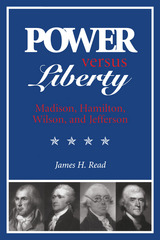 Power versus Liberty: Madison, Hamilton, Wilson, and Jefferson
James H. Read
University of Virginia Press, 2000 Does every increase in the power of government entail a loss of liberty for the people? James H. Read examines how four key Founders--James Madison, Alexander Hamilton, James Wilson, and Thomas Jefferson--wrestled with this question during the first two decades of the American Republic.
Power versus Liberty reconstructs a four-way conversation--sometimes respectful, sometimes shrill--that touched on the most important issues facing the new nation: the Constitution, the Bill of Rights, federal authority versus states' rights, freedom of the press, the controversial Bank of the United States, the relation between nationalism and democracy, and the elusive meaning of "the consent of the governed."
Each of the men whose thought Read considers differed on these key questions. Jefferson believed that every increase in the power of government came at the expense of liberty: energetic governments, he insisted, are always oppressive. Madison believed that this view was too simple, that liberty can be threatened either by too much or too little governmental power. Hamilton and Wilson likewise rejected the Jeffersonian view of power and liberty but disagreed with Madison and with each other.
The question of how to reconcile energetic government with the liberty of citizens is as timely today as it was in the first decades of the Republic. It pervades our political discourse and colors our readings of events from the confrontation at Waco to the Oklahoma City bombing to Congressional debate over how to spend the government surplus. While the rhetoric of both major political parties seems to posit a direct relationship between the size of our government and the scope of our political freedoms, the debates of Madison, Hamilton, Wilson, and Jefferson confound such simple dichotomies. As Read concludes, the relation between power and liberty is inherently complex.
Reviews
James Wilson. Portrait by Jean Pierre Henri Elouis. National Museum of American Art, Smithsonian Institution.
"Power versus Liberty provides fresh perspectives on the political thought of James Madison, Alexander Hamilton, James Wilson, and Thomas Jefferson, statesmen and theorists who played crucial roles in shaping the American experiment in republican government. Read shows how these revolutionaries struggled to reconcile tensions between liberty and power; his important book succeeds admirably in reconstructing a fascinating debate over fundamental questions that continue to command our attention. Historians and theorists alike will gain much from Read's judicious and thoughtful analysis."
--Peter S. Onuf, University of Virginia
"James Read in effect returns to the themes Bernard Bailyn put at the center of his classic study of the American Revolution and rescues them from the so-called Republican Synthesis. He extends Bailyn's analysis into the period of the early republic and shows how much insight the related themes of power and liberty can give when deployed by a deft hand."
--Michael Zuckert, University of Notre Dame
"In these deft essays, James Read offers an astute introduction to the four leading original architects of the American constitutional tradition: Madison, Jefferson, Hamilton, and James Wilson. Few writers have captured their essential ideas so concisely or appreciatively."
--Jack N. Rakove, Stanford University
Thomas Jefferson. Portrait by Rembrandt Peale. White House Collection, courtesy of White House Historical Association.
The Author
James H. Read is Associate Professor of Political Science at the College of St. Benedict and St. John's University of Minnesota.
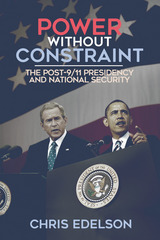 Power without Constraint: The Post-9/11 Presidency and National Security
Chris Edelson
University of Wisconsin Press, 2016 As a presidential candidate, Barack Obama criticized the George W. Bush administration for its unrestrained actions in matters of national security. In secret Justice Department memos, President Bush’s officials had claimed for the executive branch total authority to use military force in response to threats of terrorism. They set aside laws made by Congress, even criminal laws prohibiting torture and warrantless surveillance. Candidate Obama promised to restore the rule of law and make a clean break with the Bush approach. President Obama has not done so. Why?
In a thorough comparison of the Bush and Obama administrations’ national security policies, Chris Edelson demonstrates that President Obama and his officials have used softer rhetoric and toned-down legal arguments, but in key areas—military action, surveillance, and state secrets—they have simply found new ways to assert power without meaningful constitutional or statutory constraints.
Edelson contends that this legacy of the two immediately post-9/11 presidencies raises crucial questions for future presidents, Congress, the courts, and American citizens. Where is the political will to restore a balance of powers among branches of government and adherence to the rule of law? What are the limits of authority regarding presidential national security power? Have national security concerns created a permanent shift to unconstrained presidential power?
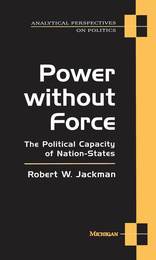 Power without Force: The Political Capacity of Nation-States
Robert W. Jackman
University of Michigan Press, 1993 Decolonization after World War II led to a significant global increase in the number of states. Each new nation was born with high expectations. But these hopes were soon eroded by the ineffectiveness and capriciousness of many of the new regimes. In many states military juntas have become the order of the day, and even where juntas have not taken power, political differences have repeatedly degenerated into violent exchanges that do not readily lend themselves to political settlement. Not only the new states have suffered from these problems; indeed, political solutions to conflict have become depressingly conspicuous by their absence. Against this background, the last decade has seen a resurgence of interest in evaluating the political capacity or strength of modern nation-states. In Power without Force, Robert Jackman argues that political capacity has two broad components: organizational age and legitimacy. Thus, it is essential to focus both on institutions conceived in organizational terms and the amount of compliance and consent that leaders are able to engender. The emphasis on each reflects the view that political life centers on the exercise of power, and that, unlike physical force, power is intrinsically relational. Although all states have he capability to inflict physical sanctions, their ability to exercise power is the key element of their political capacity. Drawing on a wide range of studies from political science, sociology, and political economy, Power without Force redirects attention to the central issues of political capacity. By stressing that effective conflict resolution must be addressed in political terms, this volume underscores perennial issues of governance and politics that form the heart of comparative politics and political sociology.
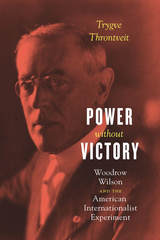 Power without Victory: Woodrow Wilson and the American Internationalist Experiment
Trygve Throntveit
University of Chicago Press, 2017 For decades, Woodrow Wilson has been remembered as either a paternalistic liberal or reactionary conservative at home and as a naïve idealist or cynical imperialist abroad. Historians’ harsh judgments of Wilson are understandable. He won two elections by promising a deliberative democratic process that would ensure justice and political empowerment for all. Yet under Wilson, Jim Crow persisted, interventions in Latin America increased, and a humiliating peace settlement was forced upon Germany. A generation after Wilson, stark inequalities and injustices still plagued the nation, myopic nationalism hindered its responsible engagement in world affairs, and a second vastly destructive global conflict threatened the survival of democracy worldwide—leaving some Americans today to wonder what, exactly, the buildings and programs bearing his name are commemorating.
In Power without Victory, Trygve Throntveit argues that there is more to the story of Wilson than these sad truths. Throntveit makes the case that Wilson was not a “Wilsonian,” as that term has come to be understood, but a principled pragmatist in the tradition of William James. He did not seek to stamp American-style democracy on other peoples, but to enable the gradual development of a genuinely global system of governance that would maintain justice and facilitate peaceful change—a goal that, contrary to historical tradition, the American people embraced. In this brilliant intellectual, cultural, and political history, Throntveit gives us a new vision of Wilson, as well as a model of how to think about the complex relationship between the world of ideas and the worlds of policy and diplomacy.
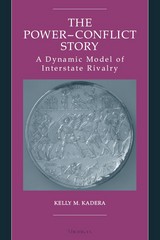 The Power-Conflict Story: A Dynamic Model of Interstate Rivalry
Kelly M. Kadera
University of Michigan Press, 2001 The Power-Conflict Story explains patterns of behavior in major world rivalries since 1816. Kelly M. Kadera carefully lays out the dynamic connections between two rival nations' power relationship and their conflictual interactions with one another. Rivals accumulate power and use conflict as a method of reducing their opponent's power level. But conflict is costly because it invites reciprocation from the opponent who has similar motives. Applying the formal model that she has developed, Kadera makes some interesting and novel predictions about which types of rivals win and what strategies they use. The empirical record on national power levels and interstate conflict convincingly support these predictions. Examples include the rise of the United States as a world power and the corresponding fall of British hegemony near the turn of the last century; Germany's unsuccessful attempt to overtake Britain during the Second World War; and Russia's rivalry with China during the early 1900s.
One of the central contributions of the book's explanation of interstate rivalry is the integration of two opposing schools of thought, balance of power theory and power transition theory. This integration is accomplished by the author's dynamic formal model that emphasizes fluctuations in conflict behavior under different power relationships as well as shifts in power levels resulting from natural growth and resource depletion. The formal model and its analysis are presented in a conversational manner, making it accessible to the reader.
ThePower-Conflict Story will appeal to students and scholars of international relations, world history, formal modeling, applied mathematics, numerical methods, and research methodology.
Kelly M. Kadera is Assistant Professor of Political Science, University of Iowa.
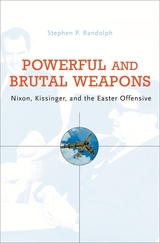 Powerful and Brutal Weapons: Nixon, Kissinger, and the Easter Offensive
Stephen P. Randolph
Harvard University Press, 2007 As America confronts an unpredictable war in Iraq, Stephen Randolph returns to an earlier conflict that severely tested our civilian and military leaders. In 1972, America sought to withdraw from Vietnam with its credibility intact. As diplomatic negotiations were pursued in Paris, President Richard Nixon and National Security Advisor Henry Kissinger hoped that gains on the battlefield would strengthen their position at the negotiating table--working against the relentless deadline of a presidential election year.
In retaliation for a major North Vietnamese offensive breaking over the Easter holidays, the President launched the all-out air campaign known as Linebacker--overriding his Secretary of Defense and clashing with the theater commander in whom he had lost all confidence. He intended to destroy the enemy with the full force of America's "powerful and brutal weapons" and thus shape the endgame of the war. Randolph's narrative, based not only on the Nixon White House tapes and newly declassified materials from the National Security Council, the Pentagon, and the White House but also on never before used North Vietnamese sources, re-creates how North Vietnam planned and fought this battle from Hanoi and how the U.S. planned and fought it from Washington.
Randolph's intimate chronicle of Nixon's performance as commander-in-chief gains us unprecedented access to how strategic assessments were made, transmitted through the field of command, and played out in combat and at the negotiating table. It is a compelling story about America's military decision-making in conflicts with nontraditional belligerents that speaks provocatively to our own time.
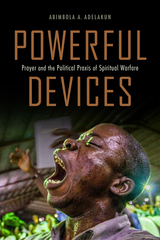 Powerful Devices: Prayer and the Political Praxis of Spiritual Warfare
Abimbola Adunni Adelakun
Rutgers University Press, 2023 Powerful Devices studies spiritual warfare performances as an apparatus for disestablishing structures of power and knowledge, and establishing righteousness in their stead. Drawing on performance studies’ emphasis on radicality and breaking of social norms as devices of social transformation, the book demonstrates how Christian groups with dominant cultural power but who perceive themselves as embattled wield the ideas of performance activism. Combining religious studies with ethnography, Powerful Devices explores Nigerian Pentecostals and US Evangelicals’ praxis of transnational spiritual warfare. By closely studying spiritual warfare prayers as a “device,” Powerful Devices shows how the rituals of prayer enable an apprehension of time, paradigms of self-enhancement, and the subversion of politics and authority. A critical intervention, Powerful Devices explores charismatic Christianity’s relationship to science and secular authority, technology and temporality, neoliberalism, and reactionary ideology.
 Powerful Frequencies: Radio, State Power, and the Cold War in Angola, 1931–2002
Marissa J. Moorman
Ohio University Press, 2019 Powerful Frequencies details the central role that radio technology and broadcasting played in the formation of colonial Portuguese Southern Africa and the postcolonial nation-state, Angola. In Intonations, Marissa J. Moorman examined the crucial relationship between music and Angolan independence during the 1960s and ’70s. Now, Moorman turns to the history of Angolan radio as an instrument for Portuguese settlers, the colonial state, African nationalists, and the postcolonial state. They all used radio to project power, while the latter employed it to challenge empire. From the 1930s introduction of radio by settlers, to the clandestine broadcasts of guerrilla groups, to radio’s use in the Portuguese counterinsurgency strategy during the Cold War era and in developing the independent state’s national and regional voice, Powerful Frequencies narrates a history of canny listeners, committed professionals, and dissenting political movements. All of these employed radio’s peculiarities—invisibility, ephemerality, and its material effects—to transgress social, political, “physical,” and intellectual borders. Powerful Frequencies follows radio’s traces in film, literature, and music to illustrate how the technology’s sonic power—even when it made some listeners anxious and frightened—created and transformed the late colonial and independent Angolan soundscape.
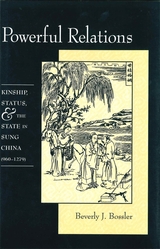 Powerful Relations: Kinship, Status, and the State in Sung China (960–1279)
Beverly J. Bossler
Harvard University Press, 1998 The realignment of the Chinese social order that took place over the course of the Sung dynasty set the pattern for Chinese society throughout most of the later imperial era. This study examines that realignment from the perspective of specific Sung families, using data on two groups of Sung elites—the grand councilors who led the bureaucracy and locally prominent gentlemen in Wu-chou (in modern Chekiang).
By analyzing kinship relationships, Beverly Bossler demonstrates the importance of family relations to the establishment and perpetuation of social status locally and in the capital. She shows how social position was measured and acted upon, how status shaped personal relationships (and vice versa), and how both status and personal relationships conditioned—and were conditioned by—political success. Finally, in a contribution to the ongoing discussion of localism in the Sung, Bossler details the varied networks that connected the local elite to the capital and elsewhere.
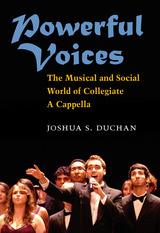 Powerful Voices: The Musical and Social World of Collegiate A Cappella
Joshua S. Duchan
University of Michigan Press, 2016 Collegiate a cappella, part of a long tradition of unaccompanied singing, is known to date back on American college campuses to at least the colonial era. Considered in the context of college glee clubs, barbershop quartets, early-twentieth-century vocal pop groups, doo-wop groups, and contemporary a cappella manifestations in pop music, collegiate a cappella is an extension of a very old tradition of close harmony singing---one that includes but also goes beyond the founding of the Yale Whiffenpoofs. Yet despite this important history, collegiate a cappella has until now never been the subject of scholarly examination. In Powerful Voices: The Musical and Social World of Collegiate A Cappella, Joshua S. Duchan offers the first thorough accounting of the music's history and reveals how the critical issues of sociability, gender, performance, and technology affect its music and experience. Just as importantly, Duchan provides a vital contribution to music scholarship more broadly, in several important ways: by expanding the small body of literature on choruses and amateur music; by addressing musical and social processes in a field where the vast majority of scholarship focuses on individuals and their products; and by highlighting a musical context long neglected by musicologists---the college campus. Ultimately, Powerful Voices is a window on a world of amateur music that has begun to expand its reach internationally, carrying this uniquely American musical form to new global audiences, while playing an important role in the social, cultural, and musical education of countless singers over the last century.
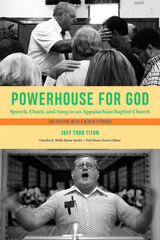 Powerhouse for God: Speech, Chant, and Song in an Appalachian Baptist Church
Jeff Todd Titon
University of Tennessee Press, 2018 The Fellowship Independent Baptist Church near Stanley, Virginia, was a group of fundamental Christian believers broadly representative of southern Appalachian belief and practice. Jeff Todd Titon worked with this Baptist community for more than ten years in his attempt to determine the nature of language in the practice of their religion. He traces specialized vocabulary and its applications through the acts of being saved, praying, preaching, teaching, and in particular singing. Titon argues that religious language is performed and the context of its occurrence is crucial to our understanding and to a holistic view of not only religious practice but of folklife and ethnomusicology. Titon’s monumental study of The Fellowship Independent Baptist Church produced not only the first edition book but also an album and documentary film.
In this second edition of Powerhouse for God, Titon revisits The Fellowship Independent Baptist Church nearly four decades later. Brother John Sherfey, the charismatic preacher steeped in Appalachian tradition has passed away and left his congregation to his son, Donnie, to lead. While Appalachian Virginia has changed markedly over the decades, the town of Stanley and the Fellowship Church have not. Titon relates this rarity in his new Afterword: a church founded on Biblical literalism and untouched by modern progressivism in an area of Appalachia that has seen an evolution in population, industry, and immigration.
Titon’s unforgettable study of folklife, musicology, and Appalachian religion is available for a new generation of scholars to build upon.
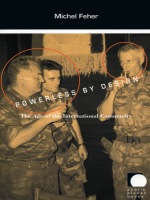 Powerless by Design: The Age of the International Community
Michel Feher
Duke University Press, 2000 In Powerless by Design Michel Feher addresses Western officials’ responses to post–Cold War conflicts and analyzes the reactions of the Left to their governments’ positions. Sometime in the early 1990s, Feher argues, U.S. and European leaders began portraying themselves as the representatives of a new international community. In that capacity, they developed a doctrine that was not only at odds with the rhetoric of the Cold War but also a far cry from the “new world order” announced at the outset of the decade. Whereas their predecessors had invested every regional conflict with an ideological stake, explains Feher, the representatives of this international community claimed that the crises they confronted did not call for partisan involvement.
Exemplary of this new approach were Western responses to ethnic cleansing in the former Yugoslavia and genocide in Rwanda. In order to avoid costly interventions, U.S. and European leaders traced these crimes to ancient tribal enmities and professed that the role of the international community should be limited to a humanitarian, impartial, and conciliatory engagement with all the warring parties. They thus managed to appear righteous but powerless, at least until NATO’s intervention in Kosovo. Faced with this doctrine, both the liberal and radical wings of the Western Left found themselves in an uneasy position. Liberals, while lured by their leaders’ humanitarianism were nonetheless disturbed by the dismal results of the policies carried out in the name of the international community. Conversely, anti-imperialist militants were quick to mock the hypocrisy of their governments’ helpless indignation, yet certainly not prepared to demand that Western powers resort to force.
Are we still in this “age of the international community”? Feher shows that with NATO’s intervention in Kosovo, both liberal and radical activists suddenly found their mark: the former welcomed the newfound resolve of their governments, while the latter condemned it as the return of the imperialist “new world order.” For Western leaders, however, the war against Serbia proved an accident rather than a turning point. Indeed, less than a year later, their indifference to the destruction of Chechnya by Russian troops suggested that the discursive strategy exposed in Powerless by Design might remain with us for quite some time.
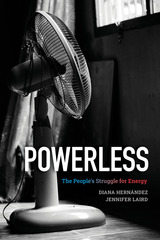 Powerless: The People's Struggle for Energy
Diana Hernández
Russell Sage Foundation, 2025 Energy serves as the lifeblood of our daily experiences. It permeates virtually every aspect of our existence, facilitating nourishment, safety, and productivity. When affordability threatens energy’s availability, a family’s living situation can become untenable—too cold, too hot, too dark, and too often, unhealthy and unsafe. In Powerless, sociologists Diana Hernández and Jennifer Laird reveal the hidden hardship of “energy insecurity” – the inability to adequately meet household energy needs.
Approximately one in ten households in the U.S. are energy insecure and four in ten are at risk for energy insecurity. These statistics alone do not convey the acute pain of utility shutoffs, or the relentless toll of chronic energy hardships marked by difficult choices and harsh living conditions. Drawing on survey data and interviews with one hundred energy-insecure individuals and families, Hernández and Laird detail the experience of energy insecurity. Individuals and families suffering from energy insecurity endure economic hardships, such as difficulty paying utility bills, utility debt, and disconnection from utility services. They also struggle with physical challenges, such as poor housing conditions and poor or dysfunctional heating and cooling systems. They are often forced to make difficult choices about what bills to pay. These decisions are sometimes referred to as “heat or eat?” choices, as families cannot afford to pay for heating and food at the same time. Energy insecure individuals and families employ a variety of strategies to keep energy costs down to avoid having to make these hard choices. This includes deliberate underconsumption of energy, enduring physical discomfort, and using dangerous alternatives such as open flames, ovens, or space heaters to try to maintain a comfortable temperature in their home. To be energy insecure is to suffer. Despite the heavy toll of energy insecurity, most people confront these difficulties behind closed doors, believing it is a private matter. Thus, the enormous social crisis of energy insecurity goes unnoticed.
Hernández and Laird argue that household energy is a basic human right and detail policies and practices that would expand access to consistent, safe, clean, and affordable energy. Their proposals include improving the current energy safety net, which is limited and often does not serve the most energy insecure due to stringent program requirements and administrative burdens. They also suggest redesigning rates to accommodate income, promoting enrollment and expansion of discount programs, reforming utility disconnection policies, improving energy literacy, and ensuring an equitable shift to renewable energy resources.
Powerless creates a comprehensive picture of the complex social and environmental issue of energy insecurity and shows how energy equity is not just an aspiration but an achievable reality.
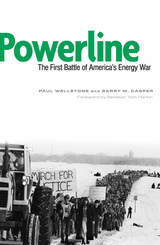 Powerline: The First Battle of America’s Energy War
Paul Wellstone
University of Minnesota Press, 2003 The inspiring story of a grassroots rebellion Powerline describes the opposition of rural Minnesotans to the building of a high voltage powerline across 430 miles of farmland from central North Dakota to the Twin Cities suburbs. Convinced that the safety of their families and the health of their land was disregarded in favor of the gluttonous energy consumption of cities, the farmer-led revolt began as questioning and escalated to rampant civil disobedience, peaking in 1978 when nearly half of Minnesota’s state highway patrol was engaged in stopping sabotage of the project. After construction was completed, the powerline proved difficult to defend and unprecedented guerrilla warfare brought many towers to the ground (due to “bolt weevils”). Through pulse-quickening personal interviews and big-picture analysis, Powerline lays bare the latent and unexpected power of the people of rural America—and resonates strongly with today’s energy debates.
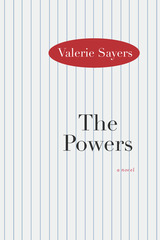 The Powers: A Novel
Valerie Sayers
Northwestern University Press, 2015 1941 is a year of drama and spectacle for Americans. Joe DiMaggio’s record-breaking hitting streak enlivens the summer, and winter begins with the shock and horror of the Japanese attack on Pearl Harbor. The news from Europe is bleak, especially for the Jewish population. Joltin’ Joe, possessing a sweet swing and range in center, also has another gift: he can see the future. And he sees dark times ahead.
In her inventive novel The Powers, Valerie Sayers, in both realistic and fantastic chapters, transports the reader to an age filled with giants: Dorothy Day and Walker Evans appear beside DiMaggio. The problems they face, from Catholic antisemitism to the challenge of pacifism in the face of overwhelming evil, play out in very public media, among them the photography of Evans and the baseball of DiMaggio. At once magical and familiar, The Powers is a story of witness and moral responsibility that will, like Joe DiMaggio, find some unlikely fans.
 Powers Of Diaspora: Two Essays On The Relevance Of Jewish Culture
Jonathan Boyarin
University of Minnesota Press, 2002 Reasserts the centrality of Jewish culture to contemporary discussions of diaspora Diaspora: the scattering of a people, often described as a condition of helplessness and a pathology to be overcome. It can also be, as Jonathan Boyarin and Daniel Boyarin assert in this provocative work, a unique source of power and strength. Focusing on Jewish experience, Powers of Diaspora forcefully argues that diasporic communities exercise a distinct form of cultural power in order to maintain themselves. With reference to rabbinic culture and contemporary Jewish ethnography, the authors evoke the cultural strategies of Jewish diaspora—of regeneration through statelessness—that should prove increasingly relevant to the dilemmas and possibilities of the "new diasporas" born in the midst and in the aftermath of the modern world-system. Their work exposes the various methods by which peoples in diaspora "legislate" distinctive ways of life and establish formal communal structures, thus creating fluid yet effective boundaries between themselves and the others who surround them, and critiques the internal power dynamics that can sometimes result. Powers of Diaspora strongly reasserts the place of Jewish culture in contemporary discussions of diaspora, where the cultural politics of postcolonialism have remarginalized Jewish experience; at the same time, it brings insights from studies of other diasporas to bear on the study of Jews. In challenging the equation of diaspora with powerlessness, the book questions the modern nation-state ideal and suggests that diasporic cultural formations offer important clues toward an alternative means of relating culture to polity.
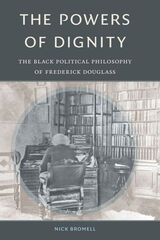 The Powers of Dignity: The Black Political Philosophy of Frederick Douglass
Nick Bromell
Duke University Press, 2021 In The Powers of Dignity Nick Bromell unpacks Frederick Douglass's 1867 claim that he had “elaborated a political philosophy” from his own “slave experience.” Bromell shows that Douglass devised his philosophy because he found that antebellum Americans' liberal-republican understanding of democracy did not provide a sufficient principled basis on which to fight anti-Black racism. To remedy this deficiency, Douglass deployed insights from his distinctively Black experience and developed a Black philosophy of democracy. He began by contesting the founders' racist assumptions about humanity and advancing instead a more robust theory of “the human” as a collection of human “powers.” He asserted further that the conscious exercise of those powers is what confirms human dignity and that human rights and democracy come into being as ways to affirm and protect that dignity. Thus, by emphasizing the powers and the dignity of all citizens, deriving democratic rights from these, and promoting a remarkably activist, power-oriented model of citizenship, Douglass's Black political philosophy aimed to rectify two major failings of US democracy in his time and ours: its complacence and its racism.
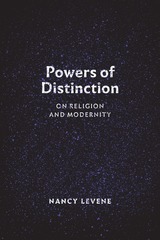 Powers of Distinction: On Religion and Modernity
Nancy Levene
University of Chicago Press, 2017 In this major new work, philosopher of religion Nancy Levene examines the elemental character of religion and modernity. Deep in their operating systems, she argues, are dualisms of opposition and identity that cannot be reconciled with the forms of life they ostensibly support. These dualisms are dead ends, but they conceal a richer position—another kind of dualism constitutive of mutual relation. This dualism is difficult to distinguish and its concept of relation difficult to commit to. It risks contention and even violence. But it is also the indispensable support for modernity’s most innovative ideals: democracy, criticism, and interpretation.
In readings from Abraham to the present, Levene recovers this richer dualism in its difference from the alternatives—other dualisms, nondualism, multiplication. From Abraham we get the biblical call to give up tribal belonging for a promised land of covenantal relation. Yet modernity, inclusive of this call, is also the principle that critiques the promise when it divides self from other, us from them.
Drawing on a long tradition of thinkers and scholars even as she breaks new ground, Levene offers here nothing less than a new way of understanding modernity as an ethical claim about our world, a philosophy of the powers of distinction to include rather than to divide.
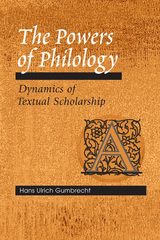 The Powers of Philology: DYNAMICS OF TEXTUAL SCHOLARSHIP
Hans Ulrich Gumbrecht
University of Illinois Press, 2003 Philology–-the discovery, editing, and presentation of historical texts–-was once a firmly established discipline that formed the core study for students across a wide range of linguistic and literary fields. Although philology departments are steadily disappearing from contemporary educational establishments, in this book Hans Ulrich Gumbrecht demonstrates that the problems, standards, and methods of philology remain as vital as ever.
For two and a half millennia philologists have viewed themselves as the modest heirs and curators of their textual past's most glorious periods, collecting and editing text fragments, historicizing them and adding commentary, and ultimately teaching them to contemporary readers.
Gumbrecht argues for a return to this tradition as an alternative to an often free-floating textual interpretation and to the more recent redefinition of literary studies as "cultural studies," which risks a loss of intellectual focus. Such a return to philological core exercises, however, can become more than yet another movement of academic nostalgia only if it takes into account the hidden desire that has inspired
philology since its Hellenistic beginnings: the desire to make the past present again by embodying it.
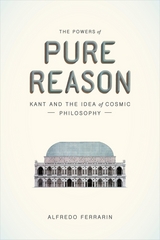 The Powers of Pure Reason: Kant and the Idea of Cosmic Philosophy
Alfredo Ferrarin
University of Chicago Press, 2015 The Critique of Pure Reason—Kant’s First Critique—is one of the most studied texts in intellectual history, but as Alfredo Ferrarin points out in this radically original book, most of that study has focused only on very select parts. Likewise, Kant’s oeuvre as a whole has been compartmentalized, the three Critiques held in rigid isolation from one another. Working against the standard reading of Kant that such compartmentalization has produced, The Powers of Pure Reason explores forgotten parts of the First Critique in order to find an exciting, new, and ultimately central set of concerns by which to read all of Kant’s works.
Ferrarin blows the dust off of two egregiously overlooked sections of the First Critique—the Transcendental Dialectic and the Doctrine of Method. There he discovers what he argues is the Critique’s greatest achievement: a conception of the unity of reason and an exploration of the powers it has to reach beyond itself and legislate over the world. With this in mind, Ferrarin dismantles the common vision of Kant as a philosopher writing separately on epistemology, ethics, and aesthetics and natural teleology, showing that the three Critiques are united by this underlying theme: the autonomy and teleology of reason, its power and ends. The result is a refreshing new view of Kant, and of reason itself.
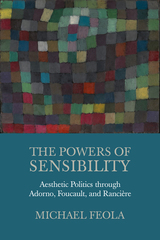 The Powers of Sensibility: Aesthetic Politics through Adorno, Foucault, and Rancière
Michael Feola
Northwestern University Press, 2018 The Powers of Sensibility: Aesthetic Politics through Adorno, Foucault, and Rancière explores the role aesthetic resources can play in an emancipatory politics. Michael Feola engages both critical theory and unruly political movements to challenge familiar anxieties about the intersection of politics and aesthetics. He shows how perception, sensibility, and feeling may contribute vital resources for conceptualizing citizenship, agency, and those spectacles that increasingly define global protest culture.
Feola provides insightful engagements with the works of Adorno, Foucault, and Rancière as well as a survey of contemporary debates on aesthetics and politics. He uses this aesthetic framework to develop a more robust account of political agency, demonstrating that politics is not reducible to the exchange of views or the building of institutions, but rather incorporates public modes of feeling, seeing, and hearing (or not-seeing and not-hearing). These sensory modes must themselves be transformed in the work of emancipatory politics.
The book explores the core question: what does the aesthetic offer that is missing from the official languages of politics, citizenship, and power? Of interest to readers in the fields of critical theory, political theory, continental philosophy, and aesthetics, The Powers of Sensibility roots itself within the classical tradition of critical theory and yet uses these resources to speak to a variety of contemporary political movements.
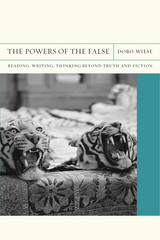 The Powers of the False: Reading, Writing, Thinking beyond Truth and Fiction
Doro Wiese
Northwestern University Press, 2014 Can literature make it possible to represent histories that are otherwise ineffable? Making use of the Deleuzian concept of “the powers of the false,” Doro Wiese offers readings of three novels that deal with the Shoah, with colonialism, and with racialized identities. She argues that Jonathan Safran Foer’s Everything Is Illuminated, Richard Flanagan’s Gould’s Book of Fish, and Richard Powers’s The Time of Our Singing are novels in which a space for unvoiced, silent, or silenced difference is created. Seen through the lens of Deleuze and his collaborators’ philosophy, literature is a means for mediating knowledge and affects about historical events. Going beyond any simple dichotomy between true and untrue accounts of what “really” happened in the past, literature’s powers of the false incite readers to long for a narrative space in which painful or shameful stories can be included.
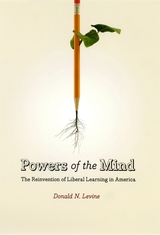 Powers of the Mind: The Reinvention of Liberal Learning in America
Donald N. Levine
University of Chicago Press, 2006 It is one thing to lament the financial pressures put on universities, quite another to face up to the poverty of resources for thinking about what universities should do when they purport to offer a liberal education. In Powers of the Mind, former University of Chicago dean Donald N. Levine enriches those resources by proposing fresh ways to think about liberal learning with ideas more suited to our times.
He does so by defining basic values of modernity and then considering curricular principles pertinent to them. The principles he favors are powers of the mind—disciplines understood as fields of study defined not by subject matter but by their embodiment of distinct intellectual capacities. To illustrate, Levine draws on his own lifetime of teaching and educational leadership, while providing a marvelous summary of exemplary educational thinkers at the University of Chicago who continue to inspire. Out of this vital tradition, Powers of the Mind constructs a paradigm for liberal arts today, inclusive of all perspectives and applicable to all settings in the modern world.
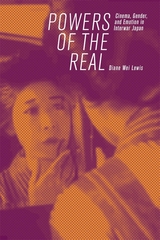 Powers of the Real: Cinema, Gender, and Emotion in Interwar Japan
Diane Wei Lewis
Harvard University Press, 2019 Powers of the Real analyzes the cultural politics of cinema's persuasive sensory realism in interwar Japan. Examining cultural criticism, art, news media, literature, and film, Diane Wei Lewis shows how representations of women and signifiers of femininity were used to characterize new forms of pleasure and fantasy enabled by consumer culture and technological media. Drawing on a rich variety of sources, she analyzes the role that images of women played in articulating the new expressions of identity, behavior, and affiliation produced by cinema and consumer capitalism. In the process, Lewis traces new discourses on the technological mediation of emotion to the 1923 Great Kanto Earthquake and postquake mass media boom. The earthquake transformed the Japanese film industry and lent urgency to debates surrounding cinema's ability to reach a mass audience and shape public sentiment, while the rise of consumer culture contributed to alarm over rampant materialism and "feminization."
Demonstrating how ideas about emotion and sexual difference played a crucial role in popular discourse on cinema’s reach and its sensory-affective powers, Powers of the Real offers new perspectives on media history, the commodification of intimacy and emotion, film realism, and gender politics in the “age of the mass society” in Japan.
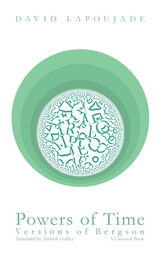 Powers of Time: Versions of Bergson
David Lapoujade
University of Minnesota Press, 2017 How is it that when we think of time, we hardly think of the role affect plays in granting us access to time: the sense of waiting, regret, mourning, melancholy? In Powers of Time, David Lapoujade returns to two central themes that continuously converge throughout the writings of the French philosopher Henri Bergson: durée (duration) and intuition. If duration is synonymous with memory, how are we then capable of thinking an authentic sense of the future? Does this mean that freedom is nothing more than a reprisal of our past? Lapoujade uncovers multiple versions of Bergson: a philosopher of sympathy, a melancholic philosopher, a perspectivist Bergson, a spiritualist Bergson. Leading us beyond simplistic anthropomorphic conceptions of temporality and intuition, Lapoujade’s multiple Bergsons guide us to encounter a rapport with time, memory, and duration that places us in direct contact with the nonhuman flows and movements of the universe.
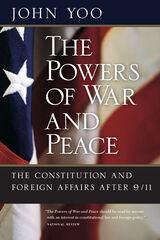 The Powers of War and Peace: The Constitution and Foreign Affairs after 9/11
John Yoo
University of Chicago Press, 2005 Since the September 11 attacks on the United States, the Bush administration has come under fire for its methods of combating terrorism. Waging war against al Qaeda has proven to be a legal quagmire, with critics claiming that the administration's response in Afghanistan and Iraq is unconstitutional. The war on terror—and, in a larger sense, the administration's decision to withdraw from the ABM Treaty and the Kyoto accords—has many wondering whether the constitutional framework for making foreign affairs decisions has been discarded by the present administration. John Yoo, formerly a lawyer in the Department of Justice, here makes the case for a completely new approach to understanding what the Constitution says about foreign affairs, particularly the powers of war and peace. Looking to American history, Yoo points out that from Truman and Korea to Clinton's intervention in Kosovo, American presidents have had to act decisively on the world stage without a declaration of war. They are able to do so, Yoo argues, because the Constitution grants the president, Congress, and the courts very different powers, requiring them to negotiate the country's foreign policy. Yoo roots his controversial analysis in a brilliant reconstruction of the original understanding of the foreign affairs power and supplements it with arguments based on constitutional text, structure, and history. Accessibly blending historical arguments with current policy debates, The Powers of War and Peace will no doubt be hotly debated. And while the questions it addresses are as old and fundamental as the Constitution itself, America's response to the September 11 attacks has renewed them with even greater force and urgency. “Can the president of the United States do whatever he likes in wartime without oversight from Congress or the courts? This year, the issue came to a head as the Bush administration struggled to maintain its aggressive approach to the detention and interrogation of suspected enemy combatants in the war on terrorism. But this was also the year that the administration’s claims about presidential supremacy received their most sustained intellectual defense [in] The Powers of War and Peace.”—Jeffrey Rosen, New York Times
“Yoo’s theory promotes frank discussion of the national interest and makes it harder for politicians to parade policy conflicts as constitutional crises. Most important, Yoo’s approach offers a way to renew our political system’s democratic vigor.”—David B. Rivkin Jr. and Carlos Ramos-Mrosovsky, National Review
 The Powers That Be
David Halberstam
University of Illinois Press, 1979 Crackling with the personalities, conflicts, and ambitions that transformed the media from something that followed the news to something that formed it, The Powers That Be is David Halberstam's forceful account of the rise of modern media as an instrument of political power, published here with a new introduction by the author.
Beginning with FDR's masterful use of radio to establish the sense of a personal, benevolently paternal relationship with the American people and culminating in the discovery and coverage of the Watergate break-in, Halberstam tracks the firm establishment of the media as a potent means of shaping both public opinion and public policy. He tells the story through vivid, intimate portraits of the men, women, and politics behind four key media organizations: CBS and its board chairman William S. Paley; Time magazine and its cofounder Henry Luce; the Washington Post and successive publishers Philip Graham and his wife, Katherine; and the Los Angeles Times and publishers Norman Chandler and his son, Otis.
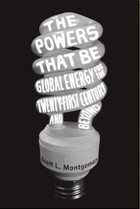 The Powers That Be: Global Energy for the Twenty-first Century and Beyond
Scott L. Montgomery
University of Chicago Press, 2010 Thirty years ago, our global energy landscape did not look remarkably different from what it does today. Three or four decades from now, it certainly will: dwindling oil reserves will clash with skyrocketing demand, as developing nations around the world lead their citizens into the modern energy economy, and all the while, the grave threat of catastrophic climate change looms ever larger. Energy worries are at an all-time high—just how will we power our future? With The Powers That Be, Scott L. Montgomery cuts through the hype, alarmism, and confusion to give us a straightforward, informed account of where we are now, and a map of where we’re going. Starting with the inescapable fact of our current dependence on fossil fuels—which supply 80% of all our energy needs today—Montgomery clearly and carefully lays out the many alternative energy options available, ranging from the familiar, like water and solar, to such nascent but promising sources as hydrogen and geothermal power. What is crucial, Montgomery explains, is understanding that our future will depend not on some single, wondrous breakthrough; instead, we should focus on developing a more diverse, adaptable energy future, one that draws on a variety of sources—and is thus less vulnerable to disruption or failure. An admirably evenhanded and always realistic guide, Montgomery enables readers to understand the implications of energy funding, research, and politics at a global scale. At the same time, he doesn’t neglect the ultimate connection between those decisions and the average citizen flipping a light switch or sliding behind the wheel of a car, making The Powers That Be indispensible for our ever-more energy conscious age.
The Powers That Be: Rethinking the Separation of Powers
Hans Martien ten Napel
Amsterdam University Press, 2016 Both democratic legitimacy and the separation of powers as concepts have very much evolved alongside the state and over the last decades the state has been giving up ground to other power holders, particularly international (and even supranational) actors. This brings up the question of whether the combination of these concepts is still viable outside a traditional state context, and if so, in what form? This is the central question the current volume seeks to answer. In 2013 Christoph Möllers published his impressive monograph, The Three Branches; A Comparative Model of Separation of Powers. This inspirational book led to the idea to pitch it against both the agenda of us as researchers of the Institute of Public Law at Leiden Law School (resulting from a 2012 conference) and our own insights, as well as that of fellow travellers in the field.
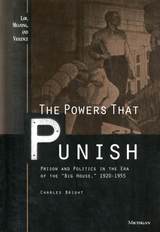 The Powers that Punish: Prison and Politics in the Era of the "Big House", 1920-1955
Charles Bright
University of Michigan Press, 1996 In a pathbreaking study of a major state prison, Michigan's Jackson State Penitentiary during the middle years of this century, Charles Bright addresses several aspects of the history and theory of punishment. The study is an institutional history of an American penitentiary, concerned with how a carceral regime was organized and maintained, how prisoners were treated and involved in the creation of a regime of order and how penal practices were explained and defended in public. In addition, it is a meditation upon punishment in modern society and a critical engagement with prevailing theories of punishment coming out of liberal, Marxist and post structuralist traditions. Deploying theory critically in a historic narrative, it applies new, relational theories of power to political institutions and practices. Finally, in studying the history of the Jackson prison, Bright provides a rich account, full of villains and a few heroes, of state politics in Michigan during a period of rapid transition between the 1920s to the 1950s. The book will be of direct relevance to criminologists and scholars of punishment, and to historians concerned with the history of punishment and prisons in the United States. It will also be useful to political scientists and historians concerned with exploring new approaches to the study of power and with the transformation of state politics in the 1930s and 1940s. Finally Bright tells a story which will fascinate students of modern Michigan history. Charles Bright is a historian and Lecturer at the Residential College of the University of Michigan.
 Power-Sharing: Institutional and Social Reform in Divided Societies
Ian O'Flynn & David Russell, Editors
Pluto Press, 2005 It is widely assumed that internal power-sharing is a viable democratic means of managing inter-communal conflict in divided societies. In principle, this form of government enables communities that have conflicting identities to remedy longstanding patterns of discrimination and to co-exist peacefully. Key arguments in support of this view can be found in the highly influential works of Arend Lijphart and Donald Horowitz.
Power-Sharing seeks to explore the unintended consequences of power-sharing for the communities themselves, their individual members, and for others in society. More specifically, it is distinctive in questioning explicitly whether power sharing: perpetuates inter-communal conflict by institutionalising difference at the political level; inhibits conflict resolution by encouraging extremism; stifles internal diversity; and fails to leave sufficient space for individual autonomy.
This book not only provides a theoretical exploration and critique of these questions, but comprehensively examines specific test cases where power-sharing institutions have been established, including in Northern Ireland, Belgium, Bosnia-Herzegovina, Macedonia and Lebanon. It also explores such issues as the role of political leaders, human rights
instruments, the position of women, and the prospects for reconciliation within such societies.
Furthermore it provides a detailed set of policy recommendations to meet the challenges of transition in deeply-divided societies.
The Powwow Coloring and Activity Book: Ojibwe Traditions Coloring Book Series
Cassie Brown
Wisconsin Historical Society Press, 2018 This series offers children and their families the opportunity to learn about Ojibwe lifeways and teachings in an engaging and accessible manner. Included in each coloring book are word scrambles, mazes, and other activities to help children and their families engage more deeply with the information and have fun at the same time. While younger children (3+) can enjoy simply coloring the images, older children (6+) can also use the stories and glossaries to start learning more about the language and traditions of the Ojibwe people. The four books in this series focus on different aspects of Ojibwe life and traditions, from the powwow to wild ricing.
 Pox, Empire, Shackles, and Hides: The Townsend Site, 1670-1715
Jon Bernard Marcoux
University of Alabama Press, 2010 Examines issues of culture contact and social identity by exploring how the late-seventeenth and early-eighteenth centuries played out in the daily lives of Cherokee households, especially those excavated at the Townsend site in eastern Tennessee
The late-seventeenth and early-eighteenth centuries were an extremely turbulent time for southeastern American Indian groups. Indeed, between the founding of the Charles Town colony along the south Atlantic coast in 1670 and the outbreak of the Yamasee War in 1715, disease, warfare, and massive population displacements dramatically altered the social, political, and economic landscape of the entire region. This volume examines issues of culture contact and social identity by exploring how this chaotic period played out in the daily lives of Cherokee households, especially those excavated at the Townsend site in eastern Tennessee. Marcoux studies the material remains of daily life in order to identify the strategies that households enacted while adapting to the social, political, and economic disruptions associated with European contact. The author focuses on households as the basic units of analysis because these represent the most fundamental and pervasive unit of economic and social production in the archaeological record. His investigations show how the daily lives of Cherokee households changed dramatically as they coped with the shifting social, political, and economic currents of the times. He demonstrates that the community excavated at the Townsend site was formed by immigrant households who came together from geographically disparate and ethnically distinct Cherokee settlements as a way to ameliorate population losses. He also explores changes in community and household patterning, showing how the spatial organization of the Townsend community became less formal and how households became more transient compared to communities predating contact with Europeans. From this evidence, Marcoux concludes that these changes reflect a broader strategic shift to a more flexible lifestyle that would have aided Cherokee households in negotiating the social, political, and economic uncertainty of the period.
 The Pox Lover: An Activist's Decade in New York and Paris
Anne-christine d'Adesky
University of Wisconsin Press, 2017 The Pox Lover is a personal history of the turbulent 1990s in New York City and Paris by a pioneering American AIDS journalist, lesbian activist, and daughter of French-Haitian elites. In an account that is by turns searing, hectic, and funny, Anne-christine d'Adesky remembers "the poxed generation" of AIDS—their lives, their battles, and their determination to find love and make art in the heartbreaking years before lifesaving protease drugs arrived.
D'Adesky takes us through a fast-changing East Village: squatter protests and civil disobedience lead to all-night drag and art-dance parties, the fun-loving Lesbian Avengers organize dyke marches, and the protest group ACT UP stages public funerals. Traveling as a journalist to Paris, an insomniac d'Adesky trolls the Seine, encountering waves of exiles fleeing violence in the Balkans, Haiti, and Rwanda. As the last of the French Nazis stand trial and the new National Front rises in the polls, d'Adesky digs into her aristocratic family's roots in Vichy France and colonial Haiti. This is a testament with a message for every generation: grab at life and love, connect with others, fight for justice, keep despair at bay, and remember.
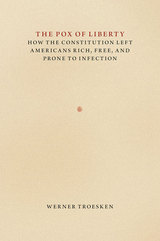 The Pox of Liberty: How the Constitution Left Americans Rich, Free, and Prone to Infection
Werner Troesken
University of Chicago Press, 2015 The United States is among the wealthiest nations in the world. But that wealth hasn't translated to a higher life expectancy, an area where the United States still ranks thirty-eighth—behind Cuba, Chile, Costa Rica, and Greece, among many others. Some fault the absence of universal health care or the persistence of social inequalities. Others blame unhealthy lifestyles. But these emphases on present-day behaviors and policies miss a much more fundamental determinant of societal health: the state.
Werner Troesken looks at the history of the United States with a focus on three diseases—smallpox, typhoid fever, and yellow fever—to show how constitutional rules and provisions that promoted individual liberty and economic prosperity also influenced, for good and for bad, the country’s ability to eradicate infectious disease. Ranging from federalism under the Commerce Clause to the Contract Clause and the Fourteenth Amendment, Troesken argues persuasively that many institutions intended to promote desirable political or economic outcomes also hindered the provision of public health. We are unhealthy, in other words, at least in part because our political and legal institutions function well. Offering a compelling new perspective, The Pox of Liberty challenges many traditional claims that infectious diseases are inexorable forces in human history, beyond the control of individual actors or the state, revealing them instead to be the result of public and private choices.
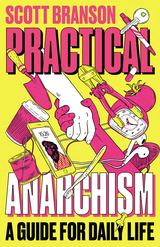 Practical Anarchism: A Guide for Daily Life
Scott Branson
Pluto Press, 2022 You may not realise it, but you are probably already practicing anarchism in your daily life. From relationships to school, work, art, even the way you organise your time, anarchism can help you find fulfilment, empathy and liberation in the everyday.
From the small questions such as 'Why should I steal?' to the big ones like 'how do I love?', Scott Branson shows that anarchism isn’t only something we do when we react to the news, protest or even riot. With practical examples enriched by history and theory, these tips will empower you to break free from the consumerist trappings of our world.
Anarchism is not just for white men, but for everyone. In reading this book, you can detach from patriarchal masculinity, norms of family, gender, sexuality, racialisation, individual responsibility and the destruction of our planet, and replace them with ideas of sustainable living, with ties of mutual aid, and the horizon of collective liberation.
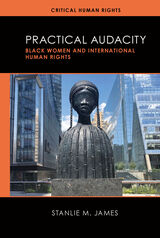 Practical Audacity: Black Women and International Human Rights
Stanlie James
University of Wisconsin Press, 2022 Goler Teal Butcher (1925–93), a towering figure in international human rights law, was a scholar and advocate who advanced an intersectional approach to human empowerment influenced by Black women’s intellectual traditions. Practical Audacity follows the stories of fourteen women whose work honors and furthers Butcher’s legacy. Their multilayered and sophisticated contributions have critically reshaped human rights scholarship and activism—including their major role in developing critical race feminism, community-based applications, and expanding the boundaries of human rights discourse.
Stanlie M. James weaves narratives by and about these women throughout the history of the field, illustrating how they conceptualize, develop, and implement human rights. By centering the courage and innovative interventions of capable and visionary Black women, she places them rightfully alongside such figures as Thurgood Marshall and Charles Hamilton Houston. This volume fundamentally shifts the frame through which human rights struggles are understood, illuminating how those who witness and experience oppression have made some of the biggest contributions to building a better world.
 Practical Botany for Gardeners: Over 3,000 Botanical Terms Explained and Explored
Geoff Hodge
University of Chicago Press, 2013 Gardening can be frustratingly shrouded in secrecy. Fickle plants make seemingly spontaneous decisions to bloom or bust, seeds sprout magically in the blink of an eye, and deep-rooted mysteries unfold underground and out of sight. Understanding basic botany is like unlocking a horticultural code; fortunately learning a little science can reveal the secrets of the botanical universe and shed some light on what’s really going on in your garden.
Practical Botany for Gardeners provides an elegant and accessible introduction to the world of botany. It presents the essentials that every gardener needs to know, connecting explanations of scientific facts with useful gardening tips. Flip to the roots section and you’ll not only learn how different types of roots support a plant but also find that adding fungi to soil aids growth. The pruning section both defines “lateral buds” and explains how far back on a shoot to cut in order to propagate them.
The book breaks down key areas and terminology with easy-to-navigate chapters arranged by theme, such as plant types, plant parts, inner workings, and external factors. “Great Botanists” and “Botany in Action” boxes delve deeper into the fascinating byways of plant science. This multifaceted book also includes two hundred botanical illustrations and basic diagrams that hearken to the classic roots of botany.
Part handbook, part reference, Practical Botany for Gardeners is a beautifully captivating read. It’s a must for garden lovers and backyard botanists who want to grow and nurture their own plant knowledge.
Practical Communication Theory
Dave Adamy
The Institution of Engineering and Technology, 2014 Practical Communication Theory, 2nd Edition enables the reader to quickly and easily generate the answers to real-world problems encountered in specifying, testing, and fielding any type of systems that involve radio propagation. It deals with free space radio propagation and propagation near the ground and over the ridge lines.
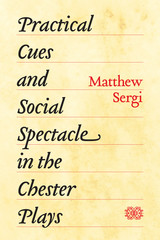 Practical Cues and Social Spectacle in the Chester Plays
Matthew Sergi
University of Chicago Press, 2020 Amid the crowded streets of Chester, guild players portraying biblical characters performed on colorful mobile stages hoping to draw the attention of fellow townspeople. In the fifteenth and sixteenth centuries, these Chester plays employed flamboyant live performance to adapt biblical narratives. But the original format of these fascinating performances remains cloudy, as surviving records of these plays are sparse, and the manuscripts were only written down a generation after they stopped. Revealing a vibrant set of social practices encoded in the Chester plays, Matthew Sergi provides a new methodology for reading them and a transformative look at medieval English drama.
Carefully combing through the plays, Sergi seeks out cues in the dialogues that reveal information about the original staging, design, and acting. These “practical cues,” as he calls them, have gone largely unnoticed by drama scholars, who have focused on the ideology and historical contexts of these plays, rather than the methods, mechanics, and structures of the actual performances. Drawing on his experience as an actor and director, he combines close readings of these texts with fragments of records, revealing a new way to understand how the Chester plays brought biblical narratives to spectators in the noisy streets. For Sergi, plays that once appeared only as dry religious dramas come to life as raucous participatory spectacles filled with humor, camp, and devotion.
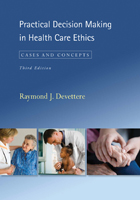 Practical Decision Making in Health Care Ethics: Cases and Concepts, Third Edition
Raymond J. Devettere
Georgetown University Press, 2010 For nearly fifteen years Practical Decision Making in Health Care Ethics has offered scholars and students a highly accessible and teachable alternative to the dominant principle-based theories in the field. Devettere’s approach is not based on an ethics of abstract obligations and duties, but, following Aristotle, on how to live a fulfilled and happy life—in short, an ethics of personal well-being grounded in prudence, the virtue of ethical decision making. This third edition is revised and updated and includes discussions of several landmark cases, including the tragic stories of Terri Schiavo and Jesse Gelsinger (the first death caused by genetic research). Devettere addresses new topics such as partial-birth abortion law, embryonic stem cell research, infant euthanasia in The Netherlands, recent Vatican statements on feeding tubes, organ donation after cardiac death, new developments in artificial hearts, clinical trials developed by pharmaceutical companies to market new drugs, ghostwritten scientific articles published in major medical journals, and controversial HIV/AIDS research in Africa. This edition also includes a new chapter on the latest social and political issues in American health care. Devettere’s engaging text relies on commonsense moral concepts and avoids academic jargon. It includes a glossary of legal, medical, and ethical terms; an index of cases; and thoroughly updated bibliographic essays at the end of each chapter that offer resources for further reading. It is a true classic, brilliantly conceived and executed, and is now even more valuable to undergraduates and graduate students, medical students, health care professionals, hospital ethics committees and institutional review boards, and general readers interested in philosophy, medicine, and the rapidly changing field of health care ethics.
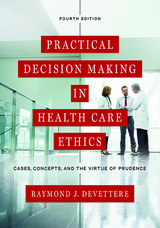 Practical Decision Making in Health Care Ethics: Cases, Concepts, and the Virtue of Prudence, Fourth Edition
Raymond J. Devettere
Georgetown University Press, 2016 For more than twenty years Practical Decision Making in Health Care Ethics has offered scholars and students a highly accessible and teachable alternative to the dominant principle-based theories in the field. Raymond J. Devettere's approach is not based on an ethics of abstract obligations and duties but, following Aristotle, on how to live a fulfilled and happy life—in short, an ethics of personal well-being grounded in prudence, the virtue of ethical decision making. New sections added in this revised fourth edition include sequencing whole genomes, even those of newborns; the new developments in genetic testing now provided by online commercial companies such as 23andMe; the genetic testing of fetuses by capturing their DNA circulating in the pregnant woman's blood; the Stanford Prison experiment and its relevance to the abuses at the Abu Graib prison; recent breakthroughs in the diagnosis of consciousness disorders such as PVS; the ongoing controversy generated by the NIH study of premature babies at many NICUs throughout the county, a study known as SUPPORT that the OHRP (Office of Human Research Protections, an office within the department of HHS) deemed unethical. Devettere updates most chapters. New cases include Marlise Munoz (dead pregnant woman's body kept on life support by a Texas hospital), Jahi McMath (teenager pronounced dead in California but treated as alive in New Jersey), Margot Bentley (nursing home feeding a woman dying of end stage Alzheimer’s despite her advance directive that said no nourishment or liquids if she was dying with dementia), Brittany Maynard (dying 29-year-old California woman who moved to Oregon to commit suicide with a physician's help), and Samantha Burton (woman with two children who suffered rupture of membranes at 25 weeks and whose physician obtained a court order to keep her at the hospital to make sure she stayed on bed rest).
Thoughtfully updated and renewed for a new generation of readers, this classic textbook will be required reading for students and scholars of philosophy and medical ethics.
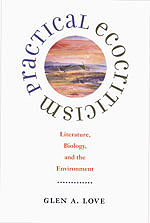 Practical Ecocriticism: Literature, Biology, and the Environment
Glen A. Love
University of Virginia Press, 2003 Practical Ecocriticism is the first book to ground environmental literature firmly in the life sciences, particularly evolutionary biology, and to attempt to bridge the ever-widening gulf between the "Two Cultures." Glen Love--himself one of the founders of ecocriticism--argues that literary studies has been diminished by a general lack of recognition for the vital role the biological foundation of human life plays in cultural imagination. Love presents with great clarity and directness an invaluable model for how to incorporate Darwinian ideas--the basis for all modern biology and ecology--into ecocriticial thinking.
Beginning with an overview of the field of literature and environment and its claim to our attention, and arguing for a biologically informed theoretical base for literary studies, Love then aims the lens of this critical perspective on the pastoral genre and works by canonical writers such as Willa Cather, Ernest Hemingway, and William Dean Howells. A markedly interdisciplinary and refreshingly accessible work, Practical Ecocriticism will interest and challenge the entire ecocritical community, as well as humanists, social scientists, and others concerned with the current rediscovery of human nature.
--------------------------------------------------------------------------------
Glen A. Love, Professor Emeritus of English at the University of Oregon, is the author or editor of many works on American literature. His ecocritical publications include New Americans and numerous periodical essays on literature and the environment. He and his biologist wife, Rhoda Love, published the groundbreaking anthology, Environmental Crisis, at the beginning of the modern environmental movement.
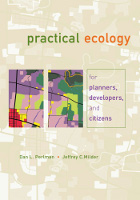 Practical Ecology for Planners, Developers, and Citizens
Dan L. Perlman and Jeffrey C. Milder; Lincoln Institute of Land Policy
Island Press, 2005 Practical Ecology for Planners, Developers, and Citizens introduces and explains key ecological concepts for planners, landscape architects, developers, and others involved in planning and building human habitats. The book is tailored to meet the needs of busy land use professionals and citizens seeking a concise yet thorough overview of ecology and its applications. It offers clear guidelines and a wealth of information on how we can protect species and ecosystems while at the same creating healthy, sustainable human communities. Throughout the book, the authors make ecological concepts accessible to readers with little or no scientific background. They present key ideas and information in simple and pragmatic terms, and provide numerous graphics to help explain important concepts. They also offer exercises for the reader to practice ecologically-based planning and design, along with a list of resources for practical information on ecology and conservation. Practical Ecology for Planners, Developers, and Citizens will raise the level of ecological understanding among land use professionals and citizens, and is an invaluable new resource for anyone concerned with human land use and its environmental impacts.
 A Practical Guide to Assessing English Language Learners
Christine Coombe, Keith Folse, and Nancy Hubley
University of Michigan Press, 2007 For many teachers of English language learners, the field of assessment is foreign territory. Assessment has its own culture, traditions, and terminology. This training guide is intended to help classroom teachers become more comfortable creating and using assessments. A Practical Guide to Assessing English Language Learners provides helpful insights into the practice and terminology of assessment. The text focuses on providing the cornerstones of good assessments—usefulness, validity, reliability, practicality, washback, authenticity, transparency, and security—and techniques for testing. It devotes a chapter to the assessment of each of the four main skill areas (reading, writing, listening, and speaking), and also covers placement testing, such as using TOEFL® and MELAB, diagnostic testing, evaluation, and instructional decision-making with regard to testing.
Tips to improve students’ test-taking strategies are offered, and each chapter ends with a helpful list of Ten Things to Remember, as well as informative case studies featuring two teachers and their assessment decisions. Incorporating its own principles, A Practical Guide to Assessing English Language Learners opens with a short quiz for the reader called Are You Testwise? that quickly determines how each teacher will benefit from this indispensable guide.
 A Practical Guide to Integrating Technology into Task-Based Language Teaching
Marta González-Lloret
Georgetown University Press, 2015 However exciting new technologies and educational tools may seem, they can become solely for entertainment unless their design, use, and evaluation are guided by principles of education and language development. Task-based Language Teaching (TBLT) provides an excellent approach for teachers who want to realize the potential of technology to engage learners and improve language learning inside and outside the classroom. This practical guide shows teachers how to successfully incorporate technology into TBLT in the classroom and to develop technology-mediated materials. Whether the goal is to conduct a needs analysis, to develop classroom or homework materials, or to implement a new approach of student assessment, A Practical Guide to Integrating Technology into Task-Based Language Teaching will be a welcome resource for language teachers at all levels. Designed for use in the classroom as well as for independent study, the book includes reflective questions, activities, and further reading at the end of each chapter. Examples of units in Chinese, Spanish, ESL, and the hospitality industry are provided. Georgetown Digital Shorts—longer than an article, shorter than a book—deliver timely works of peer-reviewed scholarship for a fast-paced world. They present new ideas and original content that are easily digestable for students, scholars, and general readers.
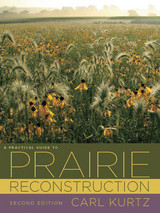 A Practical Guide to Prairie Reconstruction: Second Edition
Carl Kurtz
University of Iowa Press, 2013 Thirty-five years and many acres after planting his first patch of prairie flowers, Carl Kurtz is considered one of the deans of the great tallgrass prairie revival. The Prairie Enthusiast called the 2001 edition of his book a “readable and understandable introduction to prairie and the general steps in carrying out a reconstruction.” Now this second edition reflects his increased experience with reconstructing and restoring prairie grasslands.
Kurtz has completely revised every chapter of the first edition, from site selection and harvest to soil preparation, seeding, postplanting mowing, burning, and growth and development. He has written new chapters on establishing prairie in old pastureland and on the judicious use of herbicides, including a table that shows particular problem species, the types of herbicides that are most effective at controlling them, and the timing and method of treatment. New photographs illustrate species and steps, and Kurtz has expanded the question-and-answer section and updated the references and the section on midwestern seed sources and services.
Tallgrass prairie is critical wildlife habitat and an important element in flood control and stream water treatment. The process of reconstructing and restoring prairie grasslands has made great strides in recent decades. Carl Kurtz’s indispensable, step-by-step guide to creating a diverse and well-established prairie community provides both directions and encouragement for individual landowners as well as land managers working with government agencies and nonprofit organizations that have taken up the task of reconstructing and restoring native grasslands.
Practical Guide to Syntactic Analysis, 2nd Edition
Georgia M. Green and Jerry L. Morgan
CSLI, 2001 The Practical Guide to Syntactic Analysis is a resource for students and practitioners of syntax at all levels, addressing matters that textbooks do not explain. Relatively independent sections target issues ranging from the seductive metaphors of generative grammar and the character of linguistic argumentation to practical advice about both getting started and presenting analysis. This second edition adds a reference guide to over sixty grammatical phenomena that every syntactician should be familiar with.
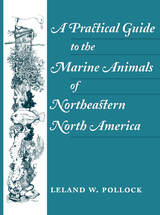 A Practical Guide to the Marine Animals of Northeastern North America
Leland W Pollock
Rutgers University Press, 1998 A Practical Guide to the Marine Animals of Northeastern North America features Leland Pollock's innovative, user-friendly keys that circumvent many of the difficulties of traditional identification systems. Pollock's keys offer choices among distinctive attributes of the specimen. Results are compared to all variations found in the region's fauna, using a neatly displayed tabular form accompanied by many line drawings. The introduction describes marine habitats, tips for conducting fieldwork, and outlines groups of organisms found in northeastern North America, from Nova Scotia to North Carolina. Although designed for the nonexpert, the manual provides coverage sufficient to meet the more demanding needs of those conducting biotic surveys and advanced studies in the region. Includes user-friendly keys for common marine animals, North Carolina to Nova Scotia, from splash zone to the edge of the continental shelf.
A Practical Guide to Usability Testing
Joseph S. Dumas and Janice C. Redish
Intellect Books, 1999 In this volume, the authors begin by defining usability, advocating and explaining the methods of usability engineering and reviewing many techniques for assessing and assuring usability throughout the development process. They then follow all the steps in planning and conducting a usability test, analyzing data, and using the results to improve both products and processes.
This book is simply written and filled with examples from many types of products and tests. It discusses the full range of testing options from quick studies with a few subjects to more formal tests with carefully designed controls. The authors discuss the place of usability laboratories in testing as well as the skills needed to conduct a test.
Included are forms to use or modify to conduct a usability test, as well as layouts of existing labs that will help the reader build his or her own.
 Practical Healthcare Epidemiology: Third Edition
Edited by Ebbing Lautenbach, Keith F. Woeltje, and Preeti N. Malani
University of Chicago Press, 2010 In recent years, issues of infection prevention and control, patient safety, and quality-of-care have become increasingly prominent in healthcare facilities. Practical Healthcare Epidemiology takes a practical, hands-on approach to these issues, addressing all aspects of infection surveillance and prevention in clear, straightforward terms. This fully revised third edition brings together the expertise of more than fifty leaders in healthcare epidemiology who provide clear, sound guidance on infection prevention and control for the full range of patients in all types of healthcare facilities, including those in settings with limited resources. A powerful resource for practitioners in any branch of medicine or public health who are involved in infection prevention and control, whether they are experienced in healthcare epidemiology or new to the field.
“A handy desk reference and an up-to-date primer for trainees and experts alike” —The Journal of the American Medical Association
“An essential for anyone in the field.”—Thomas R. Talbot, Chief Hospital Epidemiologist, Vanderbilt University Medical Center
Practical Idealists: Changing the World and Getting Paid
Alissa Wilson, Ann Barham, and John Hammock
Harvard University Press Can you work for a better world without taking a vow of poverty? The authors’ answer is a resounding, “Yes!” This book draws on interviews with over forty practical idealists whose stories will inspire the reader and provide tools for making the choices necessary to succeed as a practical idealist. Through examples and exercises, Practical Idealists: Changing the World and Getting Paid explores how to clarify your values and passions, gain relevant skills, find work, use college and graduate school effectively, manage finances, and build a community of support. Practical idealists understand that personal change and social change are connected. They know that choices matter. This book will help you make the choices that matter and live your life as a practical idealist.
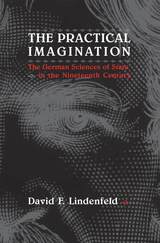 The Practical Imagination: The German Sciences of State in the Nineteenth Century
David F. Lindenfeld
University of Chicago Press, 1997 Drawing on the work of Foucault and Bourdieu, David Lindenfeld illuminates the practical imagination as it was exhibited in the transformation of the political and social sciences during the changing conditions of nineteenth-century Germany. Using a wealth of information from state and university archives, private correspondence, and a survey of lecture offerings in German universities, Lindenfeld examines the original group of learned disciplines which originated in eighteenth-century Germany as a curriculum to train state officials in the administration and reform of society and which included economics, statistics, politics, public administration, finance, and state law, as well as agriculture, forestry, and mining. He explores the ways in which some systems of knowledge became extinct, and how new ones came into existence, while other migrated to different subject areas.
Lindenfeld argues that these sciences of state developed a technique of deliberation on practical issues such as tax policy and welfare, that serves as a model for contemporary administrations.
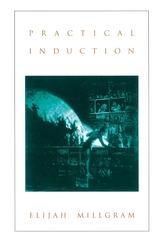 Practical Induction
Elijah Millgram
Harvard University Press, 1997 Practical reasoning is not just a matter of determining how to get what you want, but of working out what to want in the first place. In Practical Induction Elijah Millgram argues that experience plays a central role in this process of deciding what is or is not important or worth pursuing. He takes aim at instrumentalism, a view predominant among philosophers today, which holds that the goals of practical reasoning are basic in the sense that they are given by desires that are not themselves the product of practical reasoning. The view Millgram defends is "practical induction," a method of reasoning from experience similar to theoretical induction.
What are the practical observations that teach us what to want? Millgram suggests they are pleasant and unpleasant experiences on the basis of which we form practical judgments about particular cases. By generalizing from these judgments--that is, by practical induction--we rationally arrive at our views about what matters. Learning new priorities from experience is necessary if we are to function in a world of ever-changing circumstances. And we need to be able to learn both from our own and from others' experience. It is this, Millgram contends, that explains the cognitive importance of both our capacity for pain and pleasure and our capacity for love. Pleasure's role in cognition is not that of a goal but that of a guide. Love's role in cognition derives from its relation to our trusting the testimony of others about what does and does not matter and about what merits our desire.
Itself a pleasure to read, this book is full of inventive arguments and conveys Millgram's bold thesis with elegance and force. It will alter the direction of current debates on practical reasoning.
 Practical Matter: Newton’s Science in the Service of Industry and Empire, 1687–1851
Margaret C. Jacob and Larry Stewart
Harvard University Press, 2006 Margaret Jacob and Larry Stewart examine the profound transformation that began in 1687. From the year when Newton published his Principia to the Crystal Palace Exhibition of 1851, science gradually became central to Western thought and economic development. The book aims at a general audience and examines how, despite powerful opposition on the Continent, a Newtonian understanding gained acceptance and practical application. By the mid-eighteenth century the new science had achieved ascendancy, and the race was on to apply Newtonian mechanics to industry and manufacturing. They end the story with the temple to scientific and technological progress that was the Crystal Palace exhibition. Choosing their examples carefully, Jacob and Stewart show that there was nothing preordained or inevitable about the centrality awarded to science. "It is easy to forget that science might have been stillborn, or remained the esoteric knowledge of court elites. Instead, for better and for worse, science became a centerpiece of Western culture."
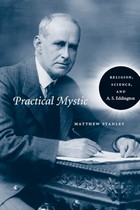 Practical Mystic: Religion, Science, and A. S. Eddington
Matthew Stanley
University of Chicago Press, 2007 Science and religion have long been thought incompatible. But nowhere has this apparent contradiction been more fully resolved than in the figure of A. S. Eddington (1882–1944), a pioneer in astrophysics, relativity, and the popularization of science, and a devout Quaker. Practical Mystic uses the figure of Eddington to shows how religious and scientific values can interact and overlap without compromising the integrity of either.
Eddington was a world-class scientist who not only maintained his religious belief throughout his scientific career but also defended the interrelation of science and religion while drawing inspiration from both for his practices. For instance, at a time when a strict adherence to deductive principles of physics had proved fruitless for understanding the nature of stars, insights from Quaker mysticism led Eddington to argue that an outlook less concerned with certainty and more concerned with further exploration was necessary to overcome the obstacles of incomplete and uncertain knowledge.
By examining this intersection between liberal religion and astrophysics, Practical Mystic questions many common assumptions about the relationship between science and spirituality. Matthew Stanley’s analysis of Eddington’s personal convictions also reveals much about the practice, production, and dissemination of scientific knowledge at the beginning of the twentieth century.
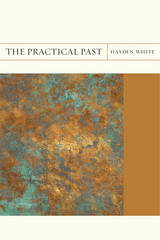 The Practical Past
Hayden White
Northwestern University Press, 2014 Hayden White borrows the title for The Practical Past from philosopher Michael Oakeshott, who used the term to describe the accessible material and literary-artistic artifacts that individuals and institutions draw on for guidance in quotidian affairs. The Practical Past, then, forms both a summa of White’s work to be drawn upon and a new direction in his thinking about the writing of history. White’s monumental Metahistory: The Historical Imagination in Nineteenth-Century Europe (1973) challenged many of the commonplaces of professional historical writing and wider assumptions about the ontology of history itself. It formed the basis of his argument that we can never recover “what actually happened”in the past and cannot really access even material culture in context. Forty years on, White sees “professional history" as falling prey to narrow specialization, and he calls upon historians to take seriously the practical past of explicitly “artistic” works, such as novels and dramas, and literary theorists likewise to engage historians.
Practical Politics: Five Principles for a Community That Works
Michael K. Briand
University of Illinois Press, 1999 This wise and sensible guide to practicing democracy will be invaluable to members of community and neighborhood organizations, parent-teacher associations, local government, citizens groups, and other grass-roots organizations. It will also be of interest to anyone wanting a deeper understanding of how democracy should work--and why it often fails to do just that.
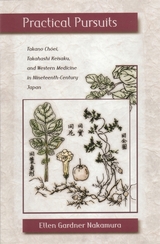 Practical Pursuits: Takano Choei, Takahashi Keisaku, and Western Medicine in Nineteenth-Century Japan
Ellen Gardner Nakamura
Harvard University Press, 2005 The history of Western medicine in the late Tokugawa period is usually depicted as a prelude to modern medicine. By comparison to the Western medical science that was systematically introduced in the Meiji period, the Tokugawa study of Western learning is often seen as a hopelessly backward exercise in which inadequately equipped Japanese doctors valiantly struggled to make sense of outdated Dutch knowledge. In contrast, this book argues that the study of Western medicine was a dynamic activity that brought together doctors from all over the country in efforts to effect social change. Western knowledge was not simply the property of elite samurai doctors working for the Bakufu or domains but was shared even by commoner doctors working in local practices in rural backwaters. Through the examples of the doctors Takano Choei (1804-1850) and Takahashi Keisaku (1799-1875), this book explores the context into which local Japanese doctors incorporated Western ideas, the social networks through which they communicated them, and the geographical spaces that supported these activities. By examining the social impact of Western learning at the level of everyday life rather than simply its impact at the theoretical level, the book offers a broad picture of the way in which Western medicine, and Western knowledge, was absorbed and adapted in Japan.
 Practical Realism and Moral Psychology
Jonathan Jacobs
Georgetown University Press, 1995 In this original study, Jonathan Jacobs provides a new account of ethical realism that combines both abstract meta-ethical issues defining the debate on realism and concrete topics in moral psychology. Jacobs argues that practical reasoners can both understand the ethical significance of facts and be motivated to act by that understanding. In that sense, objective considerations are prescriptive. In his discussion of the theory of practical realism, he extends themes and claims originating in Aristotelian ethics while engaging with the most important contemporary literature. Arguing that desire and reason can agree on what is good, Jacobs explains how good action is naturally pleasing to the agent. In acting well, the agent affirms certain values and enjoys doing so. Jacobs grounds his explanation of ethical value in detailed explorations of the moral psychology of self-love, friendship, and respect. Students and scholars of philosophy will be intrigued by this integrated account of meta-ethics, practical reason, and moral psychology.
 Practical Reason, Aristotle, and Weakness of the Will
Norman O. Dahl
University of Minnesota Press, 1984
Practical Reason, Aristotle, and Weakness of the Will was first published in 1984. Minnesota Archive Editions uses digital technology to make long-unavailable books once again accessible, and are published unaltered from the original University of Minnesota Press editions.
One of the central problems in recent moral philosophy is the apparent tension between the "practical" or "action-guiding" side of moral judgments and their objectivity. That tension would not exist if practical reason existed (if reason played a substantial role in producing motivation) and if recognition of obligation were one of the areas in which practical reason operated. In Practical Reason, Aristotle, and the Weakness of the Will,Norman Dahl argies that, despite widespread opinion to the contrary, Aristotle held a position on practical reason that both provides an objective basis for ethics and satisfies an important criterion of adequacy—that it acknowledges genuine cases of weakness of the will. In arguing for this, Dahl distinguishes Aristotle's position from that of David Hume, who denied the existence of practical reason. An important part of his argument is an account of the role that Aristotle allowed the faculty nous to play in the acquisition of general ends. Relying both on this argument and on an examination of passages from Aristotle's ethics and psychology, Dahl argues that Aristotle recognized that a genuine conflict of motives can occur in weakness of the will. This provides him with the basis for an interpretation that finds Aristotle acknowledging genuine cases of weakness of the will.
Dahl's arguments have both a philosophical and a historical point. He argues that Aristotle's position on practical reason deserves to be taken seriously, a conclusion he reinforces by comparing that position with more recent attempts, by Kant, Nagel, and Rawls, to base ethics on practical reason.
Practical Reflection
J. David Velleman
CSLI, 2013 “What do you see when you look at your face in the mirror?” asks J. David Velleman in introducing his philosophical theory of action. He takes this simple act of self-scrutiny as a model for the reflective reasoning of rational agents: our efforts to understand our existence and conduct are aided by our efforts to make it intelligible. Reflective reasoning, Velleman argues, constitutes practical reasoning. By applying this conception, Practical Reflection develops philosophical accounts of intention, free will, and the foundation of morals. This new edition of Practical Reflection contains the original 1989 text along with a new introduction and is the latest entry in The David Hume Series of Philosophy and Cognitive Science Reissues, which keeps in print previously published indispensable works in the area of cognitive science.
Practical Robotics and Mechatronics: Marine, space and medical applications
Ikuo Yamamoto
The Institution of Engineering and Technology, 2016 The world is experiencing the beginning of a revolution in robotics and mechatronics. A key part of this revolution is integration with the Internet of Things and machine-to-machine interfaces. This networking of robotics and mechatronics promises significant market opportunities for a new generation of robots.
 The Practical Shakespeare: The Plays in Practice and on the Page
Colin Butler
Ohio University Press, 2005 A comprehensive treatment of Shakespeare’s plays, The Practical Shakespeare: The Plays in Practice and on the Page illuminates for a general audience how and why the plays work so well. Noting in detail the practical and physical limitations the Bard faced as he worked out the logistics of his plays, Colin Butler demonstrates how Shakespeare incorporated those limitations and turned them to his advantage: his management of entrances and exits; his characterization techniques; his handling of scenes off-stage; his control of audience responses; his organization of major scenes; and his use of prologues and choruses. A different aspect of the plays is covered in each chapter. Butler draws most of his examples from mainstream plays, such as Macbeth, Othello, and Much Ado about Nothing. He brings special focus to A Midsummer Night’s Dream, which is treated as one of Shakespeare’s most important plays. Butler supports his major points with quotations, so readers can understand an issue even if they are unfamiliar with the particular play being discussed. The author also cross-references the use of dramatic devices in the plays, increasing the reader’s enjoyment and understanding of Shakespeare’s achievements. Clear, jargon-free, easy-to-use, and comprehensive, The Practical Shakespeare looks at stagecraft and playwriting as conduits for students, teachers, and general audiences to engage with, understand, and appreciate the genius of Shakespeare.
The Practical Visions of Ya'qub Sanu
Irene L. Gendzier
Harvard University Press This study deals with one of the small group of unorthodox pioneers active in the early nationalist movement of the 1870's in Egypt. Sanu' was dedicated to the cause of Egyptian freedom, and used his considerable talents as playwright, clandestine organizer, and journalist to achieve his goals.
 Practically Invisible: Coastal Ecuador, Tourism, and the Politics of Authenticity
Kimbra Smith
Vanderbilt University Press, 2015 The community of Agua Blanca, deep within the Machalilla National Park on the coast of Ecuador, found itself facing the twenty-first century with a choice: embrace a booming tourist industry eager to experience a preconceived notion of indigeneity, or risk losing a battle against the encroaching forces of capitalism and development. The facts spoke for themselves, however, as tourism dollars became the most significant source of income in the community.
Thus came a nearly inevitable shock, as the daily rhythms of life--rising before dawn to prepare for a long day of maintaining livestock and crops; returning for a late lunch and siesta; joining in a game of soccer followed by dinner in the evening--transformed forever in favor of a new tourist industry and the compromises required to support it. As Practically Invisible demonstrates, for Agua Blancans, becoming a supposedly "authentic" version of their own indigenous selves required performing their culture for outsiders, thus becoming these performances within the minds of these visitors. At the heart of this story, then, is a delicate balancing act between tradition and survival, a performance experienced by countless indigenous groups.
 Practically Joking
Moira Marsh
Utah State University Press, 2015 In Practically Joking, the first full-length study of the practical joke, Moira Marsh examines the value, artistry, and social significance of this ancient and pervasive form of vernacular expression.
Though they are sometimes dismissed as the lowest form of humor, practical jokes come from a lively tradition of expressive play. They can reveal both sophistication and intellectual satisfaction, with the best demanding significant skill and talent not only to conceive but also to execute. Practically Joking establishes the practical joke as a folk art form subject to critical evaluation by both practitioners and audiences, operating under the guidance of local aesthetic and ethical canons.
Marsh studies the range of genres that pranks comprise; offers a theoretical look at the reception of practical jokes based on “benign transgression”—a theory that sees humor as playful violation—and uses real-life examples of practical jokes in context to establish the form’s varieties and meanings as an independent genre, as well as its inextricable relationship with a range of folklore forms. Scholars of folklore, humor, and popular culture will find much of interest in Practically Joking.
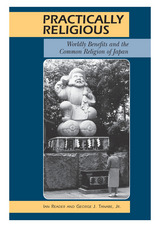 Practically Religious: Worldly Benefits and the Common Religion of Japan
Ian Reader and George J. Tanabe, Jr.
University of Hawaii Press, 1998 Praying for practical benefits (genze riyaku) is a common religious activity in Japan. Despite its widespread nature and the vast numbers of people who pray and purchase amulets and talismans for everything from traffic safety and education success to business prosperity and protection from disease, the practice has been virtually ignored in academic studies or relegated to the margins as a uh_product of superstition or an aberration from the true dynamics of religion. Basing their work on a fusion of textual, ethnographic, historical, and contemporary studies, the authors of this volume demonstrate the fallacy of such views, showing that, far from being marginal, the concepts and practices surrounding genze riyaku lie at the very heart of the Japanese religious world. They thrive not only as popular religious expression but are supported by the doctrinal structures of most Buddhist sects, are ordained in religious scriptures, and are promoted by monastic training centers, shrines, and temples.
Benefits are both sought and bought, and the authors discuss the economic and commercial aspects of how and why institutions promote practical benefits. They draw attention to the dynamism and flexibility in the religious marketplace, where new products are offered in response to changing needs. Intertwined in these economic activities and motivations are the truth claims that underpin and justify the promotion and practice of benefits. The authors also examine the business of guidebooks, which combine travel information with religious advice, including humorous and distinctive forms of prayer for the protection against embarrassing physical problems and sexual diseases. Written in a direct and engaging style, Practically Religious will appeal to a wide range of readers and will be especially valuable to those interested in religion, anthropology, Buddhist studies, sociology, and Japanese studies.
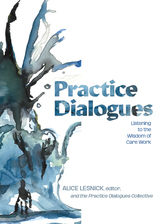 Practice Dialogues: Listening to the Wisdom of Care Work
Edited by Alice Lesnick
Lever Press, 2026 Attending to the wisdom that emerges through care work, Practice Dialogues uplifts the complexity, creativity, and interconnection of care across fields of endeavor. Written by a collective of practitioners, Practice Dialogues calls readers to learn from, not simply about, care work and those dedicated to it. Recognizing the need to understand care work as practice that furthers people’s survival and thriving, this volume advances a method of research rooted in radical presence, mutual listening, and collaborative writing. Centering care work as and through co-authorship, the essays spotlight fields including medicine, somatic practice, teaching and school leadership, martial arts, organizing, the arts, and family caregiving. In the framing chapters, Practice Dialogues draws on scholarship from education, postcolonial cultural studies, Black studies, Indigenous studies, social work, trauma studies, and critical feminist studies. The volume creates an exchange among scholarship, questions of research methodology, and the ecosystems of care work, pushing the limits of what is possible within and beyond conventional boundaries.
 Practice for Life: Making Decisions in College
Lee Cuba, Nancy Jennings, Suzanne Lovett, and Joseph Swingle
Harvard University Press, 2016 From the day they arrive on campus, college students spend four years—or sometimes more—making decisions that shape every aspect of their academic and social lives. Whether choosing a major or a roommate, some students embrace decision-making as an opportunity for growth, while others seek to minimize challenges and avoid risk. Practice for Life builds a compelling case that a liberal arts education offers students a complex, valuable process of self-creation, one that begins in college but continues far beyond graduation.
Sifting data from a five-year study that followed over two hundred students at seven New England liberal arts colleges, the authors uncover what drives undergraduates to become engaged with their education. They found that students do not experience college as having a clear beginning and end but as a continuous series of new beginnings. They start and restart college many times, owing to the rhythms of the academic calendar, the vagaries of student housing allocation, and other factors. This dynamic has drawbacks as well as advantages. Not only students but also parents and faculty place enormous weight on some decisions, such as declaring a major, while overlooking the small but significant choices that shape students' daily experience.
For most undergraduates, deep engagement with their college education is at best episodic rather than sustained. Yet these disruptions in engagement provide students with abundant opportunities for reflection and course-correction as they learn to navigate the future uncertainties of adult life.
The Practice of Catholic Theology
Paul J. Griffiths
Catholic University of America Press, 2016 In The Practice of Catholic Theology: A Modest Proposal, Paul J. Griffiths has written a how-to book for Catholic theologians that will both instruct beginners and challenge long-time practitioners to sharpen their understanding of their craft. He defines Catholic theology as the practice of thinking, speaking, and writing about the God of Christian confession; so understood, it's something that anyone can learn to do. Personal sanctity is not required, but as with any other practice, practitioners of this beautiful and elevated thought-performance need to know some things and to develop some skills in order to be able to perform it.
The Practice of Chinese Buddhism, 1900–1950
Holmes Welch
Harvard University Press Based partly on unpublished documents and oral information obtained from monks who headed major monasteries on mainland China, Holmes Welch presents a detailed description of the modern practice of Chinese Buddhism. Focusing on the actual rather than the theoretical observances of the religion, he gives an exhaustive account of the monastic system and the style of life of both monk and layman. His study makes new information available for the Western reader and calls into question the whole concept of the moribund state of Chinese Buddhism.
 The Practice of Diaspora: Literature, Translation, and the Rise of Black Internationalism
Brent Hayes Edwards
Harvard University Press, 2003 A pathbreaking work of scholarship that will reshape our understanding of the Harlem Renaissance, The Practice of Diaspora revisits black transnational culture in the 1920s and 1930s, paying particular attention to links between intellectuals in New York and their Francophone counterparts in Paris. Brent Edwards suggests that diaspora is less a historical condition than a set of practices: the claims, correspondences, and collaborations through which black intellectuals pursue a variety of international alliances.
Edwards elucidates the workings of diaspora by tracking the wealth of black transnational print culture between the world wars, exploring the connections and exchanges among New York–based publications (such as Opportunity, The Negro World, and The Crisis) and newspapers in Paris (such as Les Continents, La Voix des Nègres, and L'Etudiant noir). In reading a remarkably diverse archive--the works of writers and editors from Langston Hughes, René Maran, and Claude McKay to Paulette Nardal, Alain Locke, W. E. B. Du Bois, George Padmore, and Tiemoko Garan Kouyaté--The Practice of Diaspora takes account of the highly divergent ways of imagining race beyond the barriers of nation and language. In doing so, it reveals the importance of translation, arguing that the politics of diaspora are legible above all in efforts at negotiating difference among populations of African descent throughout the world.
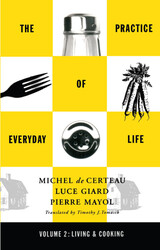 Practice of Everyday Life: Volume 2: Living and Cooking
Michel De Certeau
University of Minnesota Press, 1998 To remain unconsumed by consumer society—this was the goal, pursued through a world of subtle and practical means, that beckoned throughout the first volume of The Practice of Everyday Life. The second volume of the work delves even deeper than did the first into the subtle tactics of resistance and private practices that make living a subversive art. Michel de Certeau, Luce Giard, and Pierre Mayol develop a social history of “making do” based on microhistories that move from the private sphere (of dwelling, cooking, and homemaking) to the public (the experience of living in a neighborhood). A series of interviews—mostly with women—allows us to follow the subjects’ individual routines, composed of the habits, constraints, and inventive strategies by which the speakers negotiate daily life. Through these accounts the speakers, “ordinary” people all, are revealed to be anything but passive consumers. Amid these experiences and voices, the ephemeral inventions of the “obscure heroes” of the everyday, we watch the art of making do become the art of living.This long-awaited second volume of de Certeau’s masterwork, updated and revised in this first English edition, completes the picture begun in volume 1, drawing to the last detail the collective practices that define the texture, substance, and importance of the everyday.Michel de Certeau (1925-1986) wrote numerous books that have been translated into English, including Heterologies (1986), The Capture of Speech (1998), and Culture in the Plural (1998), all published by Minnesota. Luce Giard is senior researcher at the Centre National de la Recherche Scientifique and is affiliated with the Ecole des Hautes Etudes en Sciences Sociales, Paris. She is visiting professor of history and history of science at the University of California, San Diego. Pierre Mayol is a researcher in the French Ministry of Culture in Paris.Timothy J. Tomasik is a freelance translator pursuing a Ph.D. in French literature at Harvard University.
 The Practice of Justice: A Theory of Lawyers’ Ethics
William H. Simon
Harvard University Press, 1998 Should a lawyer keep a client's secrets even when disclosure would exculpate a person wrongly accused of a crime? To what extent should a lawyer exploit loopholes in ways that enable clients to gain unintended advantages? When can lawyers justifiably make procedural maneuvers that defeat substantive rights? The Practice of Justice is a fresh look at these and other traditional questions about the ethics of lawyering. William Simon, a legal theorist with extensive experience in practice, charges that the profession's standard approach to these questions is incoherent and implausible.
At the same time, Simon rejects the ethical approaches most frequently proposed by the profession's critics. The problem, he insists, does not lie in the profession's commitment to legal values over those of ordinary morality. Nor does it arise from the adversary system. Rather, Simon shows that the critical weakness of the standard approach is its reliance on a distinctive style of judgment--categorical, rule-bound, rigid--that is both ethically unattractive and rejected by most modern legal thought outside the realm of legal ethics. He develops an alternative approach based on a different, more contextual, style of judgment widely accepted in other areas of legal thought.
The author enlivens his argument with discussions of actual cases, including the Lincoln Savings and Loan scandal and the Leo Frank murder trial, as well as fictional accounts of lawyering, including Kafka's The Trial and the movie The Verdict.
The Practice of Moral Judgment
Barbara Herman
Harvard University Press, 1993 Barbara Herman argues for a radical shift in the way we perceive Kant's ethics. She convincingly reinterprets the key texts, at once allowing Kant to mean what he says while showing that what Kant says makes good moral sense. She urges us to abandon the tradition that describes Kantian ethics as a deontology, a moral system of rules of duty. She finds the central idea of Kantian ethics not in duty but in practical rationality as a norm of unconditioned goodness. This book both clarifies Kant's own theory and adds programmatic vitality to modern moral philosophy.
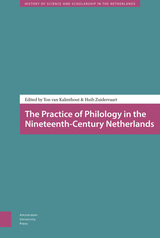 The Practice of Philology in the Nineteenth-Century Netherlands
Edited by Ton van Kalmthout and Huib Zuidervaart
Amsterdam University Press, 2015 The Netherlands have a long and important tradition in scholarly philology. For instance in the early days of Leiden University 'philology', or the critical examination of classical texts, was regarded as a 'cutting-edge science'. This field of scholarship had far reaching implications on disciplines such as theology, chronology, astronomy, history, law and other demarcated bodies of knowledge identified as a separate science. Regardless of the exact field of inquiry, philologists as protectors and teachers of the written heritage always played a pivotal role in the formation of the cultural repertoire of the educated public. As men of learning and high esteem, philologists also exerted influence outside the cultural sphere, especially in politics and religion. The ever-changing composition of the philological frame of reference made no difference in this respect.
But in the nineteenth century, the practice of philology was passing a crucial phase of change. In both its object of study and in its methods, several fundamental modifications occurred. Texts in the vernacular and national philologies attracted more and more attention of the public, and 'neo-philology' succeeded in taking over the central position traditionally occupied by classical philology. Subfields such as 'linguistics', 'edition technique' and 'history' grew into new, more-or-less independent (sub-)disciplines, whereas scientific methods such as stemmatology and comparative approaches were introduced in the humanities. This redesigned the landscape of philology radically. New boundaries became apparent and existing ones were questioned or drawn sharper. At the time, philology underwent an accelerated process of differentiation and professionalization. Philology demarcated its own more or less independent sphere, with a specific authority. The establishment of a branch of 'national philology' can be regarded as an example of discipline formation in the humanities.
This fascinating process of change and the search for new boundaries in Dutch philology is highlighted in this book The Practice of Philology in the Netherlands in the Nineteenth Century, the first book on this topic in the English language.
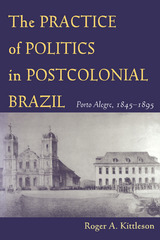 The Practice of Politics in Postcolonial Brazil: Porto Alegre, 1845-1895
Roger A. Kittleson
University of Pittsburgh Press, 2005
The Practice of Politics in Postcolonial Brazil traces the history of high and low politics in nineteenth-century Brazil from the vantage point of the provincial capital of Porto Alegre. In the immediate postcolonial period, new ideas about citizenship and freedom were developing, and elites struggled for control of the state as the lower classes sought inclusion in political life. In a shift from the Liberal Party to Positivist or Conservative rule during the bloody Federalist Revolt of 1893–1895, new leaders sought to bring about a more balanced structure of government where the capitalist was sympathetic to the worker, and the worker more passive toward the elite. This represented a complete change of opinions—a new regime of ideas. Termed a “scientific” approach by its proponents, the movement was based on historical process and would be brought about through civic education.
Against the backdrop of the abolition of slavery and subsequent assimilation, the rise of European immigration, and industrialization, Kittleson investigates how “the people” shaped changing political ideologies and practices, and how through local struggles and changes in elite ideology, the lower classes in Porto Alegre won limited political inclusion that was denied elsewhere.
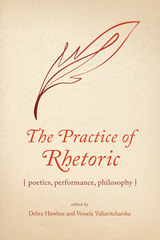 The Practice of Rhetoric: Poetics, Performance, Philosophy
Edited by Debra Hawhee and Vessela Valiavitcharska
University of Alabama Press, 2022 Essays that show what a broad conception of rhetoric means and does in relation to practice
Rhetoric is the art of emphasis, in the ancient sense of bringing to light or obscuring in shadow, and it is both a practice and a theory about that practice. In recent decades, scholars of rhetoric have turned to approaches that braid together poetics, performance, and philosophy into a “practical art.” The Practice of Rhetoric: Poetics, Performance, Philosophy presents just such an account of rhetoric that presumes and incorporates theoretical approaches, offering a collection of principles assembled in the heat and trials of public practice. The essays gathered in this volume are inspired by the capacious conception of rhetoric put forth by historian of rhetoric Jeffrey Walker, who is perhaps best known for stressing rhetoric’s educational mission and its investments in both theory and practice.
The book extends that vision through the prisms of poetics, performance, and philosophy of argument. Poetics shows rhetoric’s meaning making in all its verbal possibilities and material manifestations, in contexts ranging from mouse-infested medieval fields to the threat of toxin-ridden streams in the twentieth century. Performance puts what is created into the heat of public life, tapping out the rhythms of Byzantine prose or using collage to visually depict the beliefs and convictions of Martin Luther King Jr. Philosophy of argument enacts the mutually constitutive relationship between rhetoric and dialectic, offering new insights on and contexts for old tools like stasis and disputation, while keeping the focus on usefulness and teachability.
Ranging across centuries and contexts, the essays collected here demonstrate the continued need to attend carefully to the cooperation of descriptive language and normative reality, conceptual vocabulary and material practice, public speech and moral self-shaping. This volume will rekindle long-standing conversations about the public, world-making practice of rhetoric, thereby enlivening anew its civic mission.
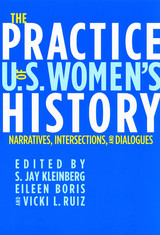 The Practice of U.S. Women's History: Narratives, Intersections, and Dialogues
Edited by S. Jay Kleinberg, Eileen Boris, and Vicki L. Ruiz
Rutgers University Press, 2008 In the last several decades, U.S. women’s history has come of age. Not only have historians challenged the national narrative on the basis of their rich explorations of the personal, the social, the economic, and the political, but they have also entered into dialogues with each other over the meaning of women’s history itself. In this collection of seventeen original essays on women’s lives from the colonial period to the present, contributors take the competing forces of race, gender, class, sexuality, religion, and region into account. Among many other examples, they examine how conceptions of gender shaped government officials’ attitudes towards East Asian immigrants; how race and gender inequality pervaded the welfare state; and how color and class shaped Mexican American women’s mobilization for civil and labor rights.
 Practice, Power, and Forms of Life: Sartre’s Appropriation of Hegel and Marx
Terry Pinkard
University of Chicago Press, 2022 Philosopher Terry Pinkard revisits Sartre’s later work, illuminating a pivotal stance in Sartre’s understanding of freedom and communal action.
Jean-Paul Sartre’s Critique of Dialectical Reason, released to great fanfare in 1960, has since then receded in philosophical visibility. As Sartre’s reputation is now making a comeback, it is time for a reappraisal of his later work. In Practice, Power, and Forms of Life, philosopher Terry Pinkard interprets Sartre’s late work as a fundamental reworking of his earlier ideas, especially in terms of his understanding of the possibility of communal action as genuinely free, which the French philosopher had previously argued was impossible.
Pinkard reveals how Sartre was drawn back to Hegel, a move that was itself incited by Sartre’s newfound interest in Marxism. Pinkard argues that Sartre constructed a novel position on freedom that has yet to be adequately taken up and analyzed within philosophy and political theory. Through Sartre, Pinkard advances an argument that contributes to the history of philosophy as well as key debates on action and freedom.
Practice Under Pressure: Primary Care Physicians and Their Medicine in the Twenty-first Century
Hoff, Timothy
Rutgers University Press, 2009 Through ninety-five in-depth interviews with primary care physicians (PCPs) working in different settings, as well as medical students and residents, Practice Under Pressure provides rich insight into the everyday lives of generalist physicians in the early twenty-first centuryùtheir work, stresses, hopes, expectations, and values. Timothy Hoff supports this dialogue with secondary data, statistics, and in-depth comparisons that capture the changing face of primary care medicineùlarger numbers of younger, female, and foreign-born physicians.
Practice-Based Research in Children's Play
Edited by Wendy Russell, Stuart Lester, and Hilary Smith
Bristol University Press, 2018 There has been a growing awareness in recent years of the importance of play in children’s learning and development—but that awareness has not been accompanied by sufficient scholarly attention, outside of conceptual studies and how-to textbooks. This collection fills that gap by bringing together scholars from a range of fields and methodological approaches to look at play from a practice-based perspective. Moving beyond the dominant voice of developmental psychology, the book offers a number of new ways of approaching children’s play and the roles of adults in supporting it; as a result, it will be valuable to anyone working with or studying children at play.
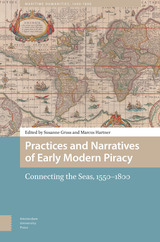 Practices and Narratives of Early Modern Piracy: Connecting the Seas, 1550–1800
Susanne Gruss
Amsterdam University Press, 2025 Rather than looking at different manifestations of early modern piracy as geographically and temporally isolated cultural phenomena, Practices and Narratives of Early Modern Piracy: Connecting the Seas (1550–1800) pursues a comprehensive approach to this field of study. This volume investigates the spatial, temporal, and economic connections between pirates and other seafarers who navigated the North Sea, the Mediterranean Sea, the Atlantic, and the Indian Oceans in the early modern period, and the cultural products they inspired. With a specific focus on historical practices and cultural narratives it addresses issues such as the appearance of pirates and piratical protagonists in diverse geographical locations, changing negotiations of pirate identity, the fluid boundary between illegal piracy and state-sanctioned privateering, and the (trans)national economic entanglements of different forms of maritime predation. By bringing together the discussion of literary, cultural, and historical aspects of piracy and seafaring, the volume explores the cultural as well as the ideological impact and function of the pirate figure in early modern historiography, literature, and popular culture.
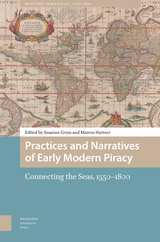 Practices and Narratives of Early Modern Piracy: Connecting the Seas, 1550–1800
Susanne Gruss
Amsterdam University Press, 2025 Rather than looking at different manifestations of early modern piracy as geographically and temporally isolated cultural phenomena, Practices and Narratives of Early Modern Piracy: Connecting the Seas (1550–1800) pursues a comprehensive approach to this field of study. This volume investigates the spatial, temporal, and economic connections between pirates and other seafarers who navigated the North Sea, the Mediterranean Sea, the Atlantic, and the Indian Oceans in the early modern period, and the cultural products they inspired. With a specific focus on historical practices and cultural narratives it addresses issues such as the appearance of pirates and piratical protagonists in diverse geographical locations, changing negotiations of pirate identity, the fluid boundary between illegal piracy and state-sanctioned privateering, and the (trans)national economic entanglements of different forms of maritime predation. By bringing together the discussion of literary, cultural, and historical aspects of piracy and seafaring, the volume explores the cultural as well as the ideological impact and function of the pirate figure in early modern historiography, literature, and popular culture.
 Practices of Coexistence: Constructions of the Other in Early Modern Perceptions
Marianna D. Birnbaum
Central European University Press, 2017 The essays in this book provide interesting contributions to the ongoing debate concerning the representation of differing cultures, i.e., the “image of the Other” in the early modern period . They deal with images, projections, and perceptions, based on various experiences of coexistence. Although the individual contributions contain sources and references of iconography, this is not just another volume of art history or visual studies. As examples of practices in diverse historical contexts, the book includes a variety of textual material, such as literary productions, rhetorical exercises, dramatic applications, chronicles, epistles, and diary-like historical accounts that express ethnographic sensitivities. Thus, supported by a thorough research apparatus, these studies propose a new cultural history of the early modern coexistence of various communities, as identified in current research by young scholars. Another novel feature of the volume is the deliberate digression of traditional scholars’ focus and the investigation of rarely examined regions and practices. This approach allows the contributors to spotlight their special areas of research and to share a fresh new look at “the Renaissance.”
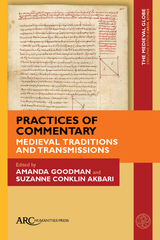 Practices of Commentary: Medieval Traditions and Transmissions
Amanda Goodman
Arc Humanities Press, 2023
The comparative or connected study of localized intellectual traditions poses special challenges to the global turn in medieval studies. How can we enable conversations across language groups and intricate cultural formations, as well as disciplines? Practices of commentary offer a compelling opportunity: their visual layouts reveal assumptions about the relative status of text and gloss, while interpretive interlinear or marginal prompts capture the dynamic relationships among generations of teachers, students, and readers. The material traces of manuscript usage—from hastily scrawled marginal notes to vivid rubrication—illuminate the shared didactic and communicative practices developed within scholarly communities. By bringing together researchers working on specific cultures and discourses across Eurasia, this volume moves toward a global account of premodern commentary traditions.
 Practices of Freedom: Selected Writings on HIV/AIDS
Simon Watney
Duke University Press, 1994 Since the mid-1980s, Simon Watney has been one of the leading voices in the international field of HIV/AIDS education. His monthly column on AIDS in Britain’s Gay Times is the longest-running column of its kind in Europe, and he is actively involved in HIV/AIDS issues in the United States. His work constitutes a unique dialogue between European and American perspectives on the epidemic. Practices of Freedom brings together for the first time Watney’s pioneering writings on topics ranging from gay men’s Safer Sex education to racist coverage of AIDS in Africa in the international media, from the ethics of clinical drug trials to governmental policies concerning AIDS.
Watney’s voice—neither neutral nor detached—is that of an active and influential participant in the fight against AIDS. He offers a unique view of the ways in which gay men working in community-based organizations have attempted to provide reliable and up-to-date services and information regarding AIDS treatment and health. A leader in insisting on gay men’s entitlements to education, care, and services, Watney was among the first to challenge the "de-gaying" of AIDS service organizations in the late eighties. He also devotes his attention to HIV/AIDS prevention work, research and treatment issues, and the wider cultural politics of the disease, including the role of language, television, and cinema. His analysis of the epidemic as it has unfolded provides a history of many of the major medical and political debates that have defined the course and extent of the crisis.
Practices of Freedom demonstrates the failure of national institutions, from the government to the press, to understand and effectively fight this epidemic, and directs attention to the most urgent needs in American and international AIDS work. It will be an important primary resource, particularly in the United States, where effective community-based HIV/AIDS education tragically has often been neglected.
|
|





